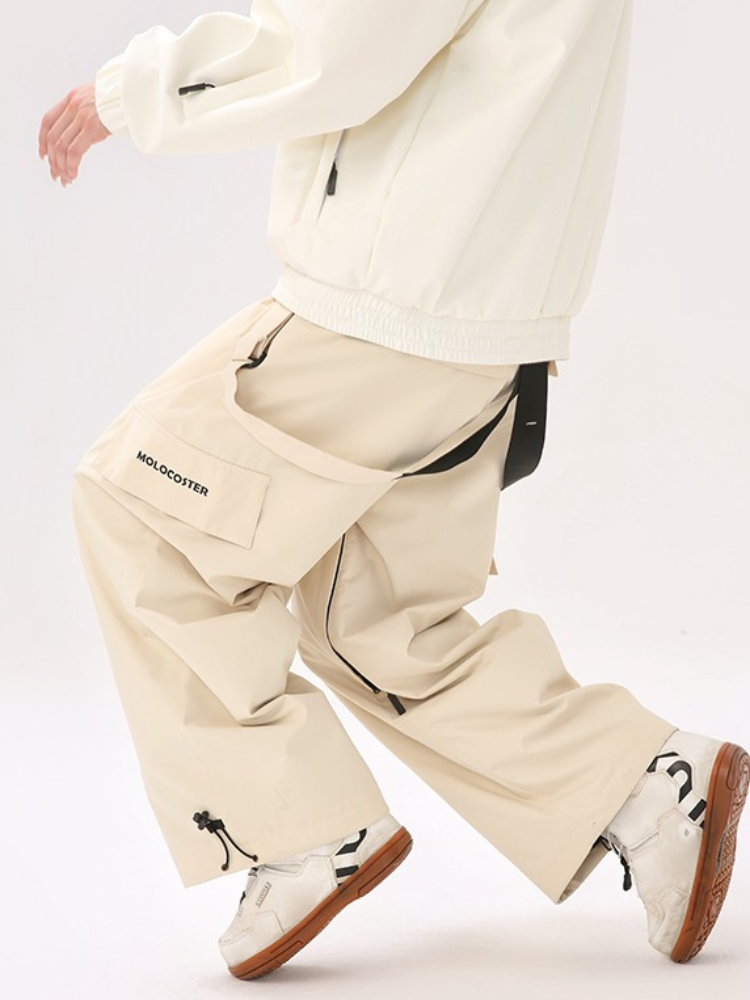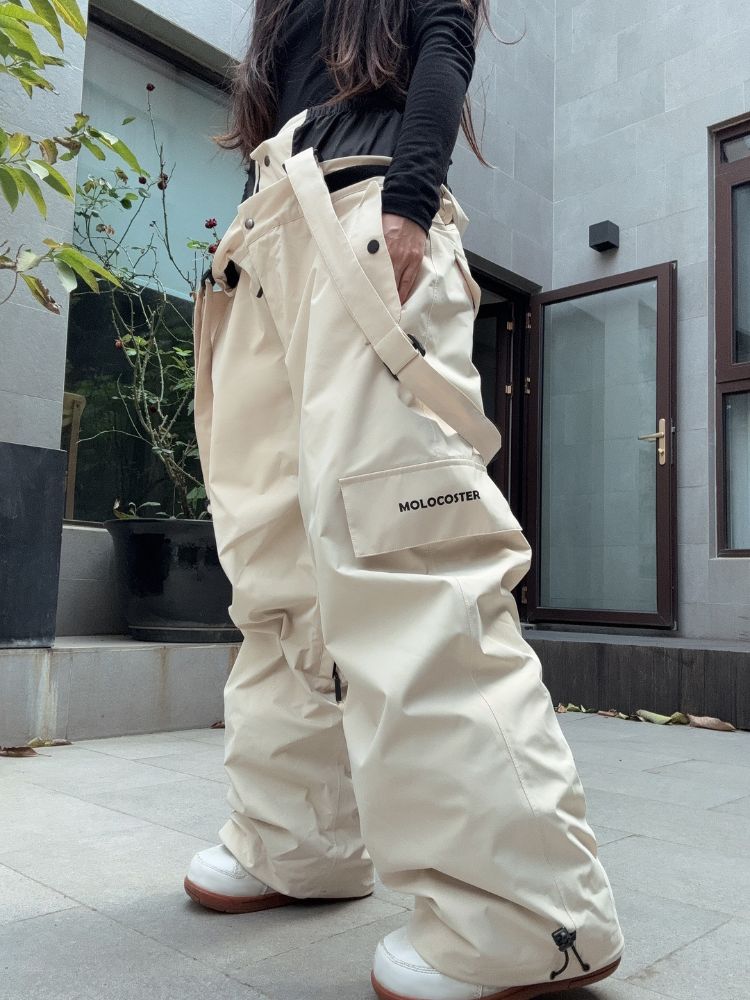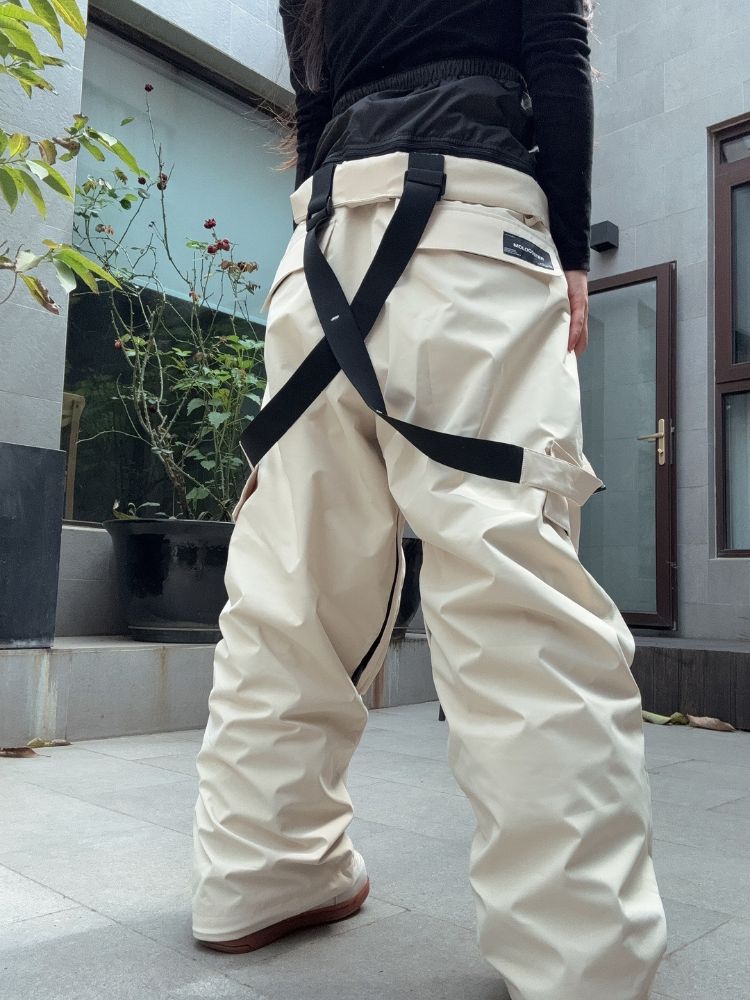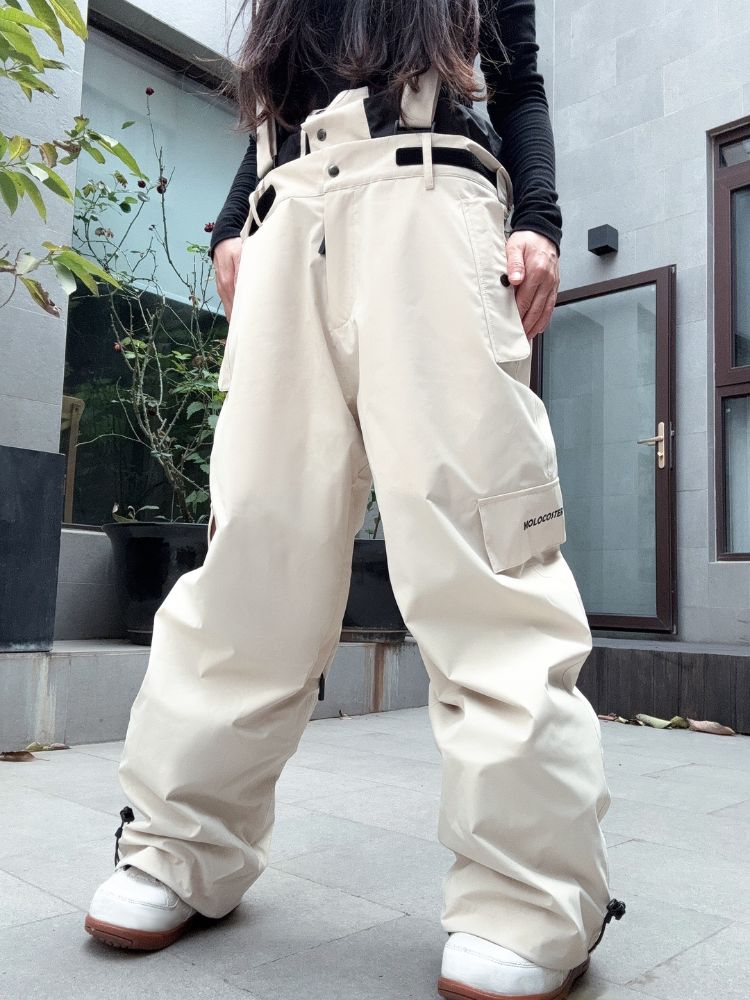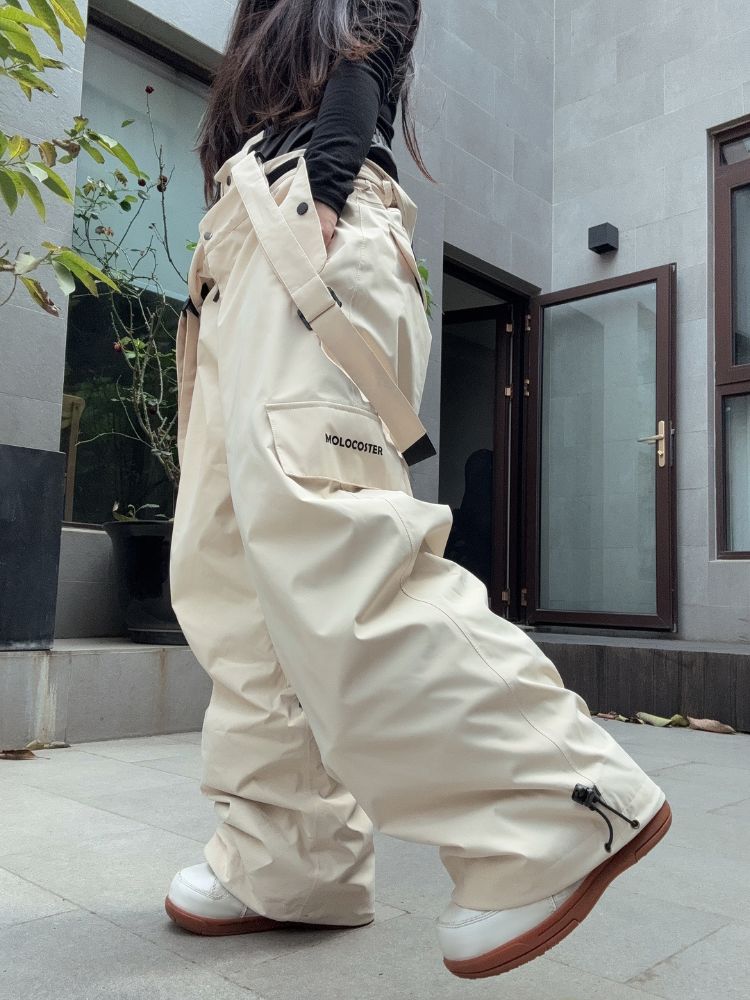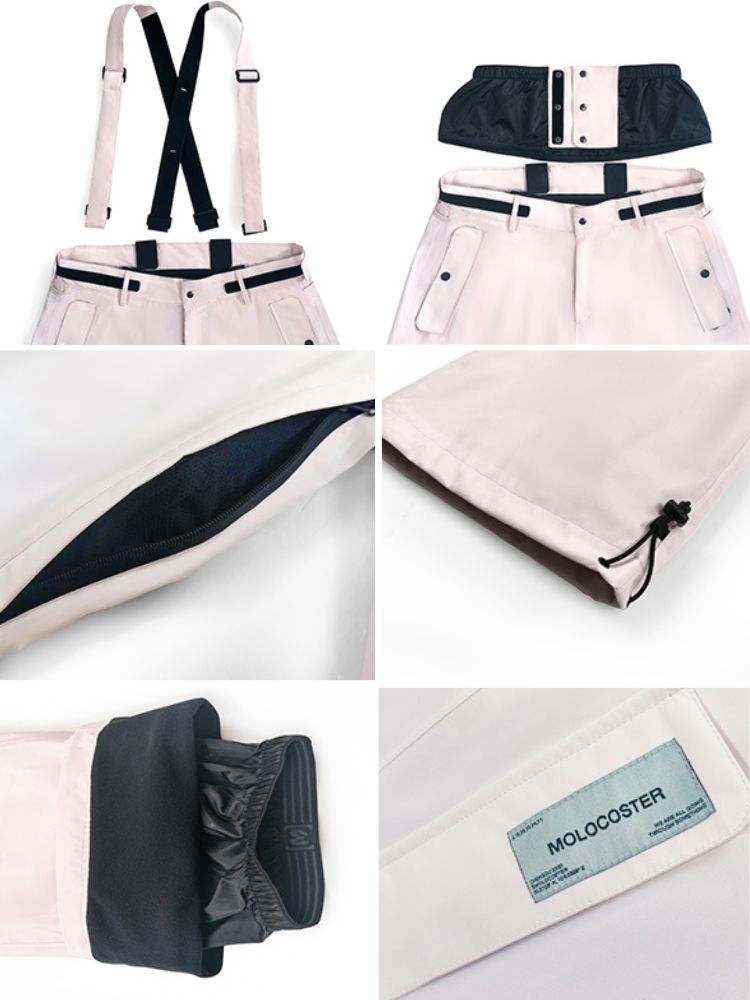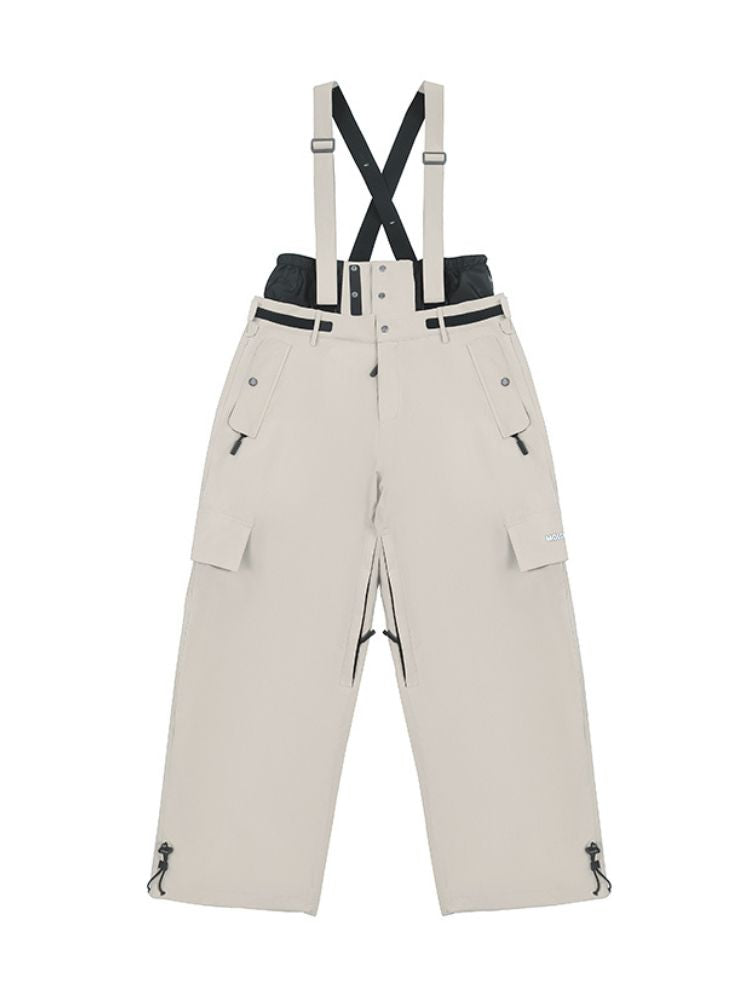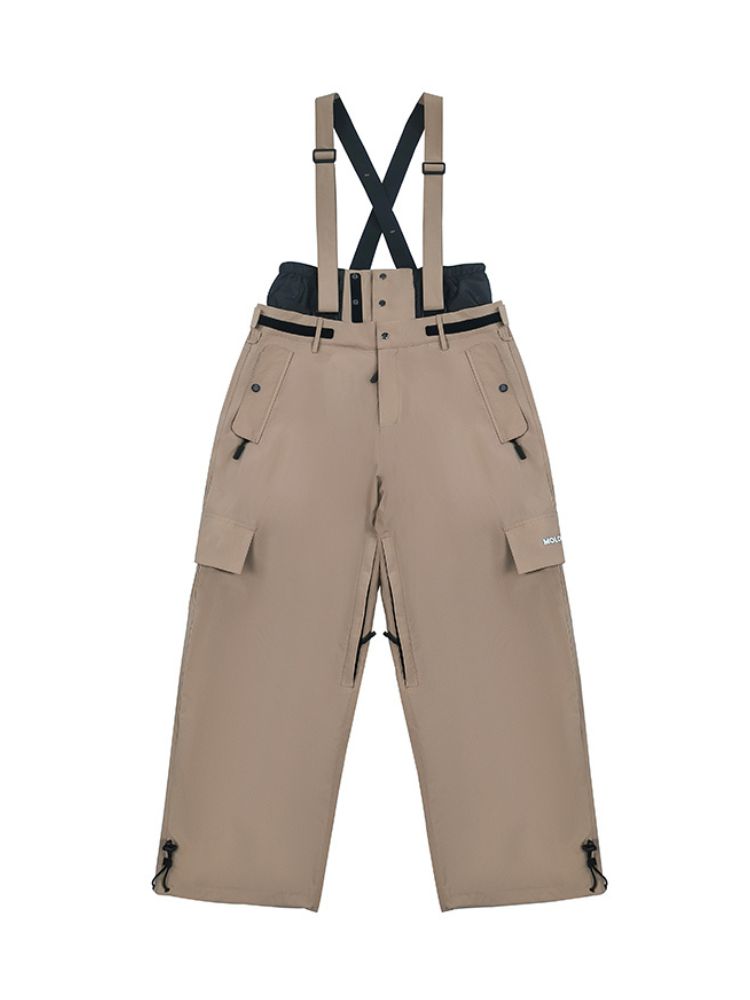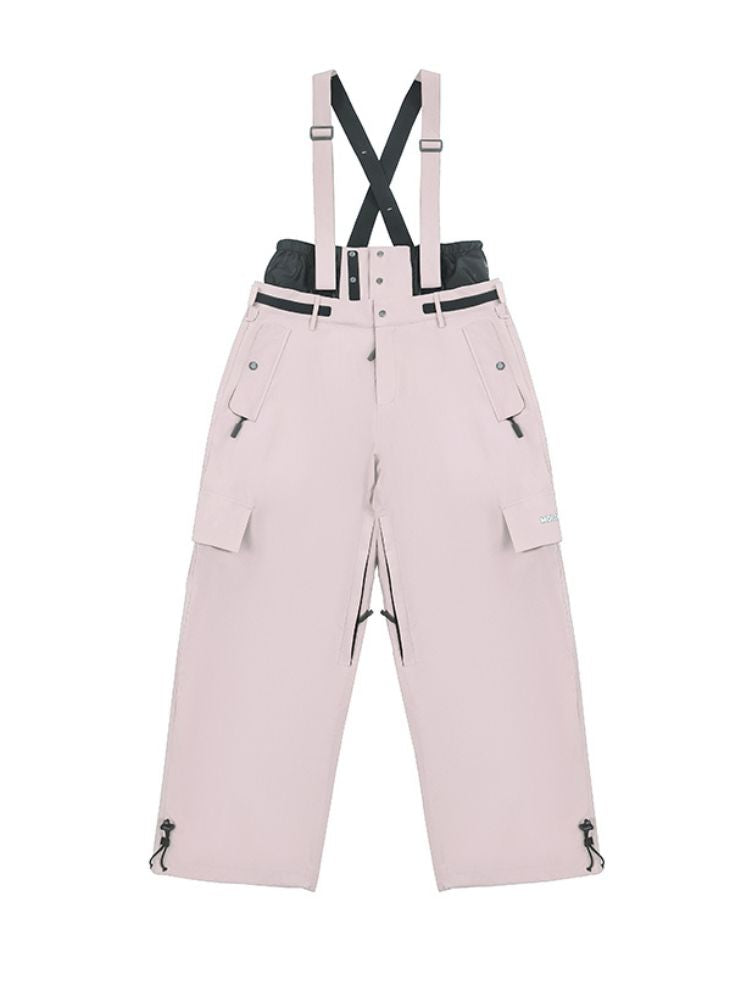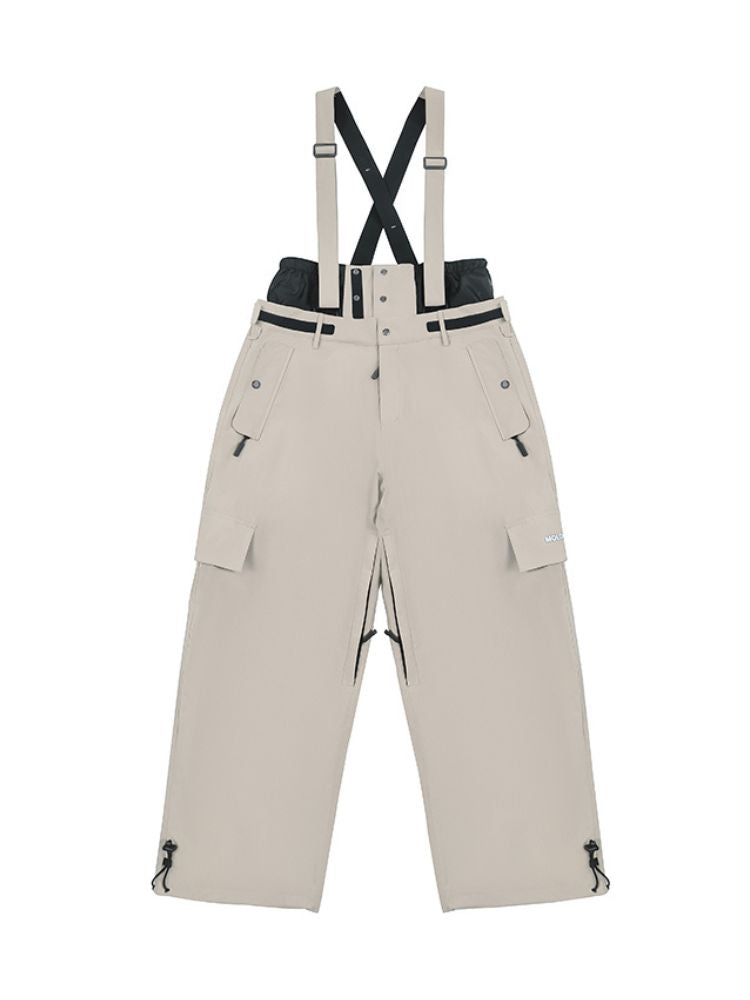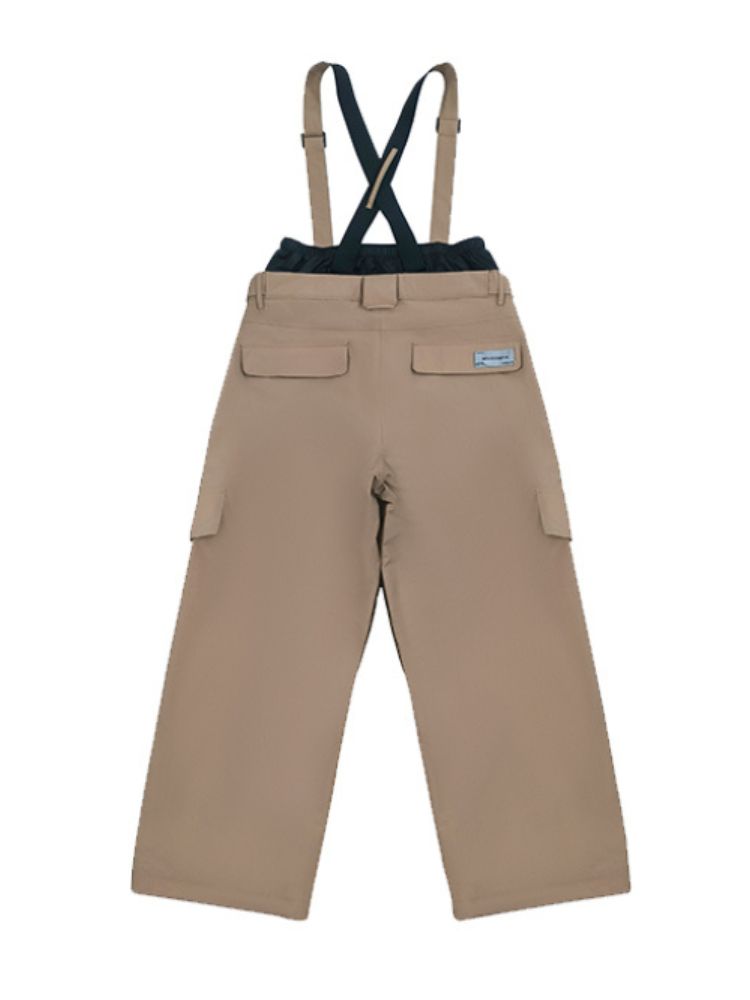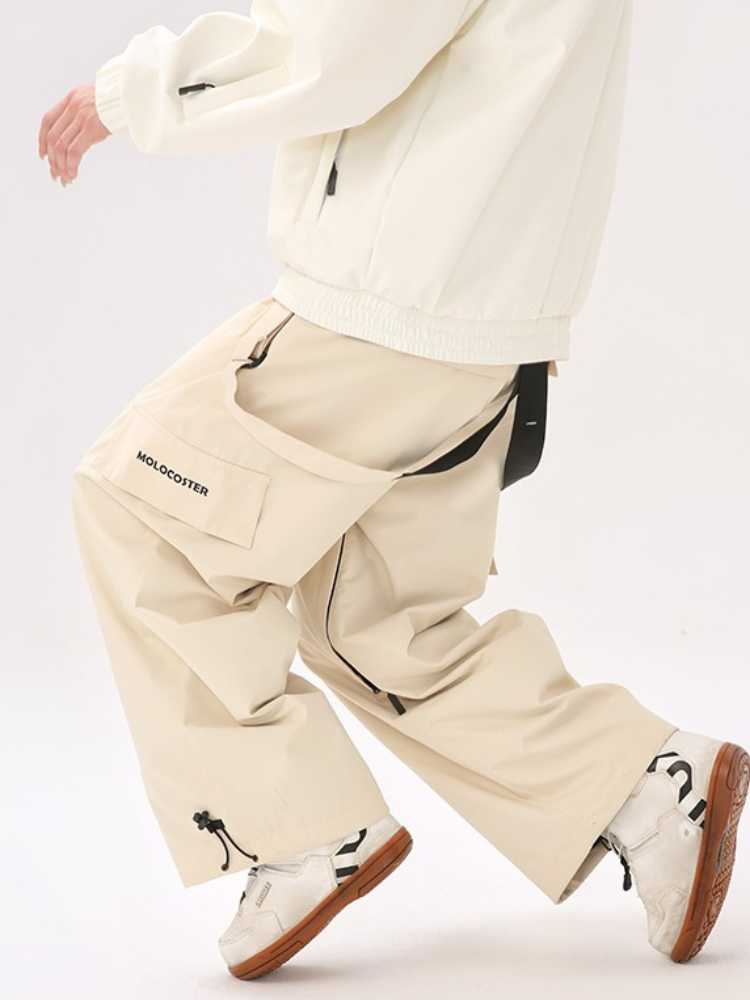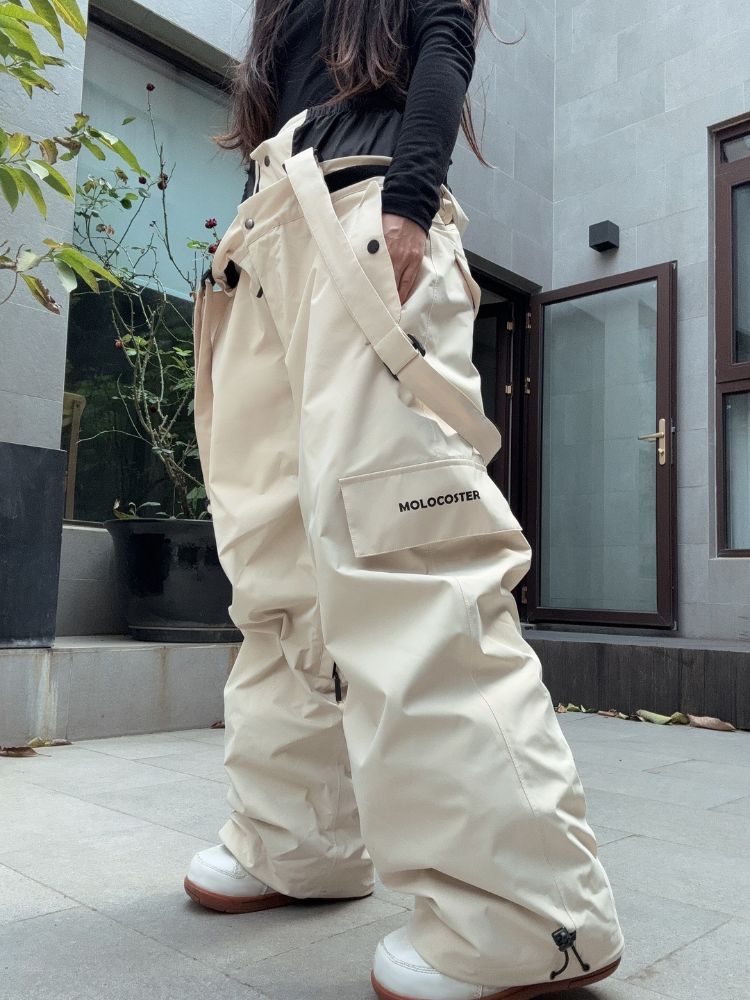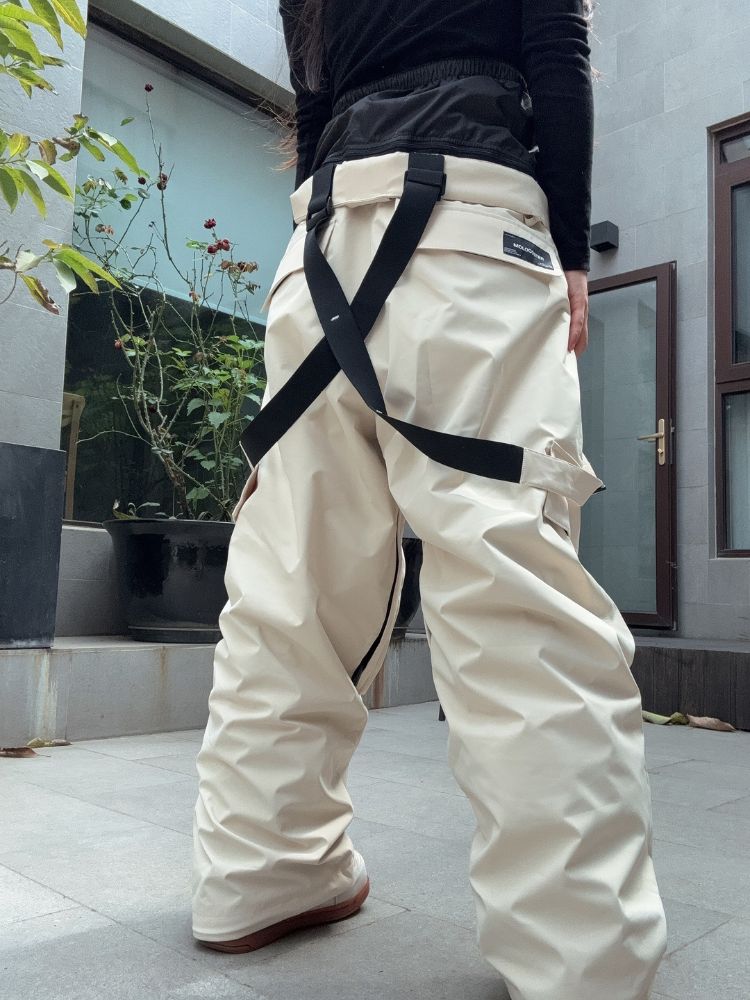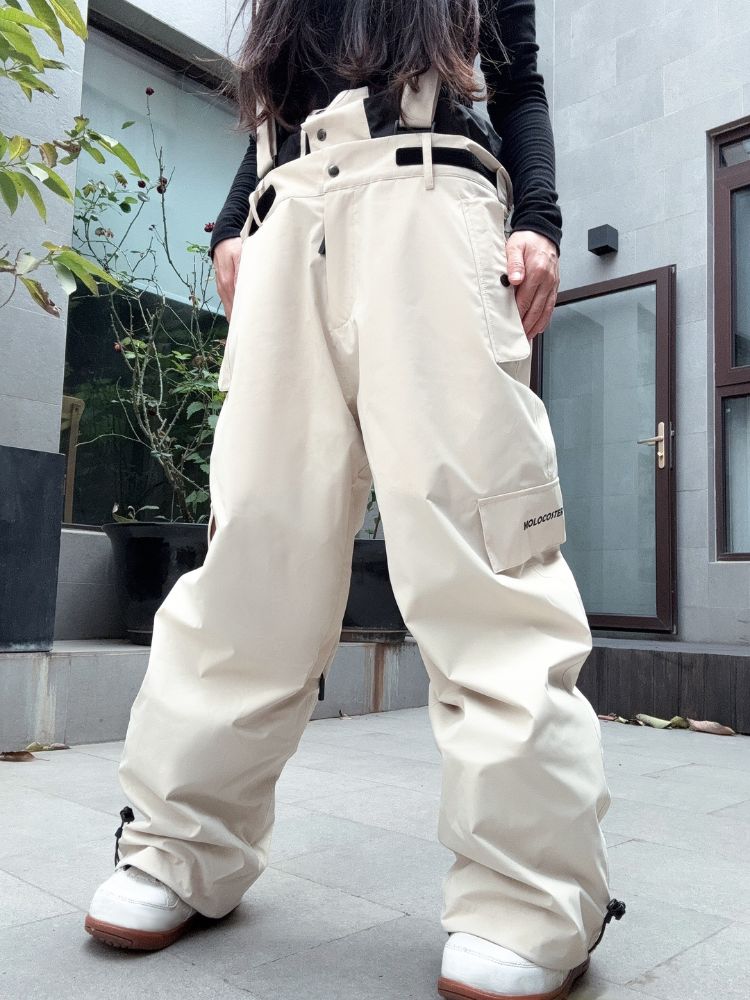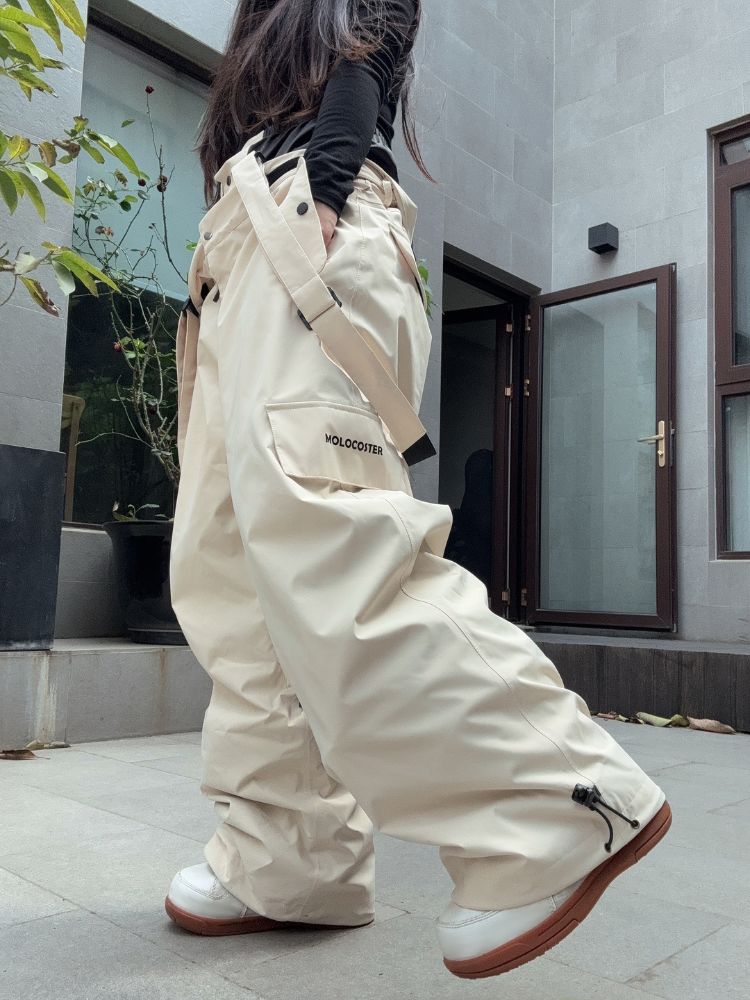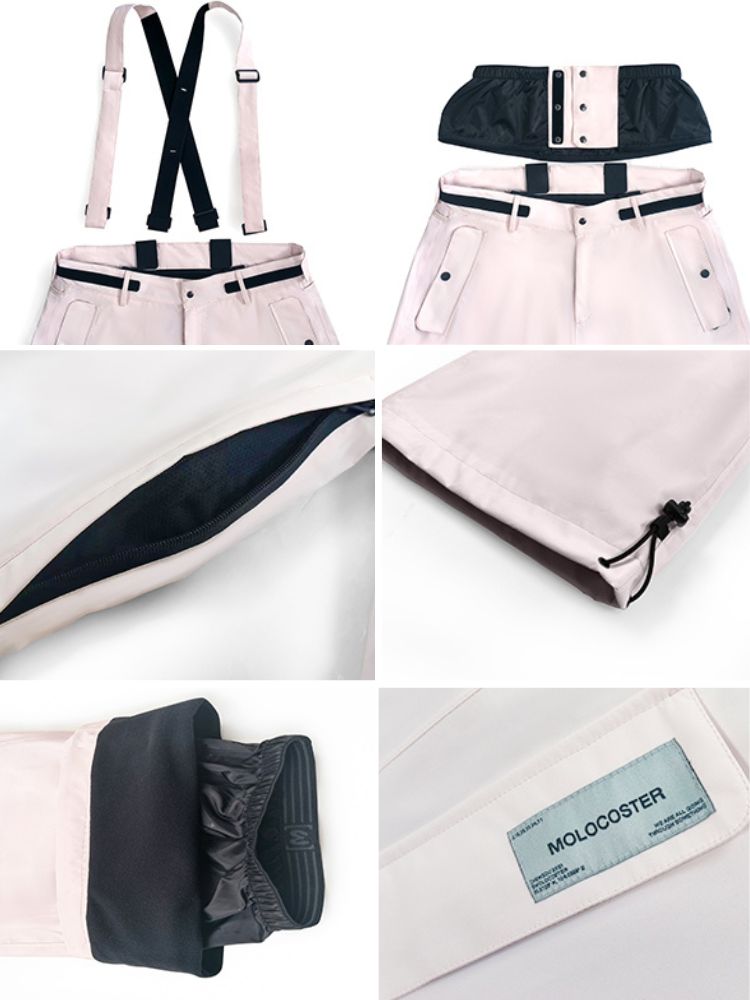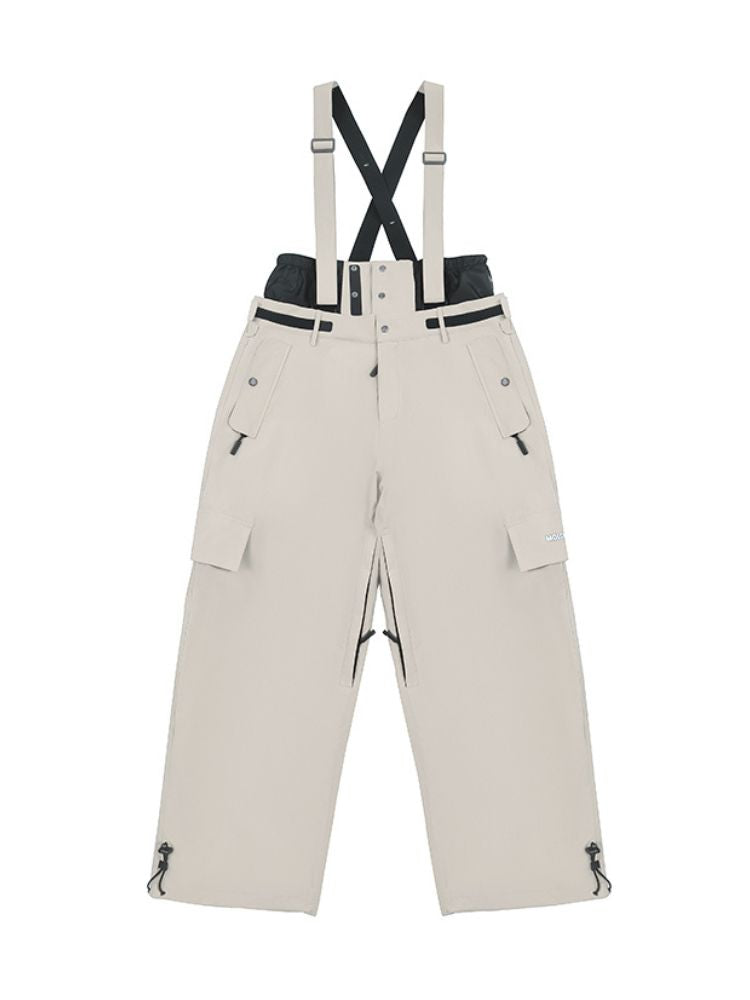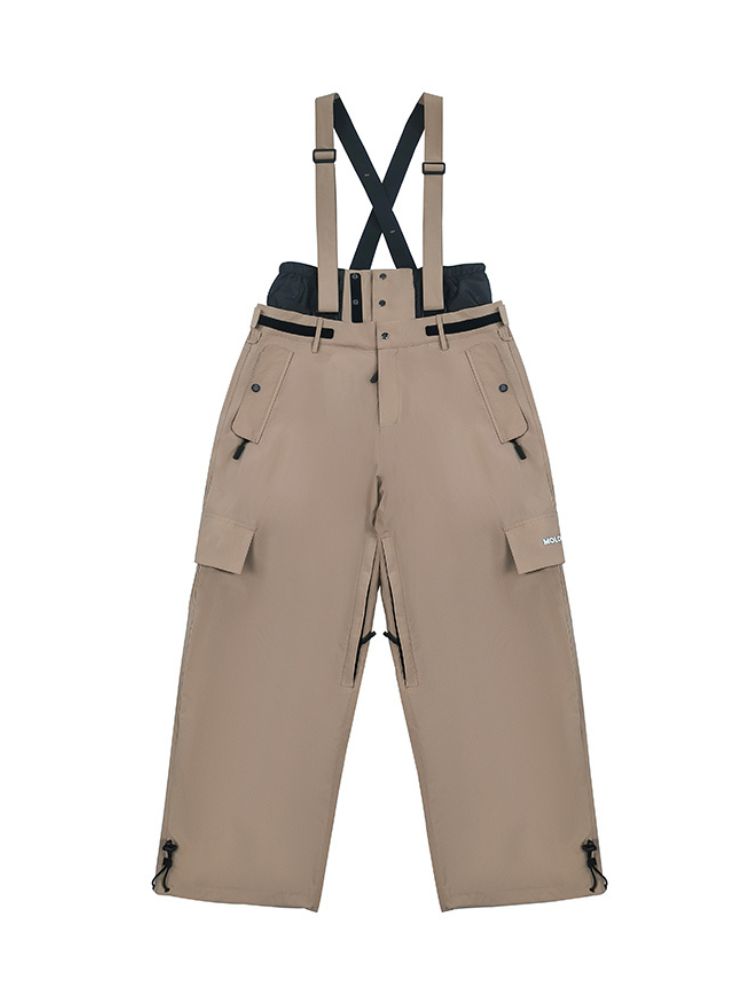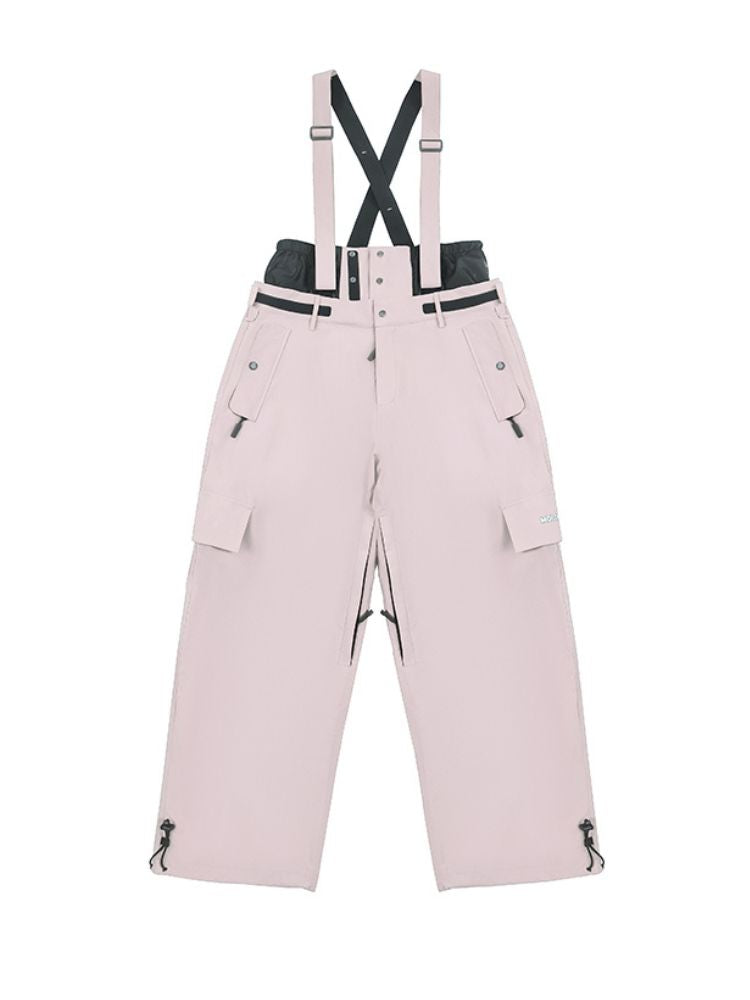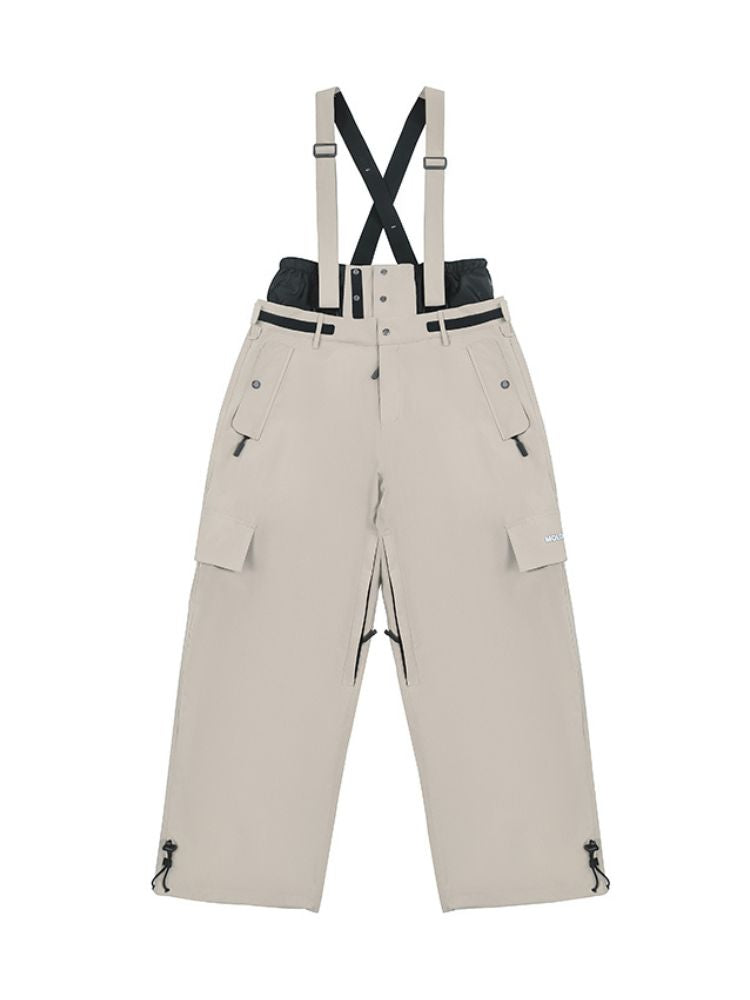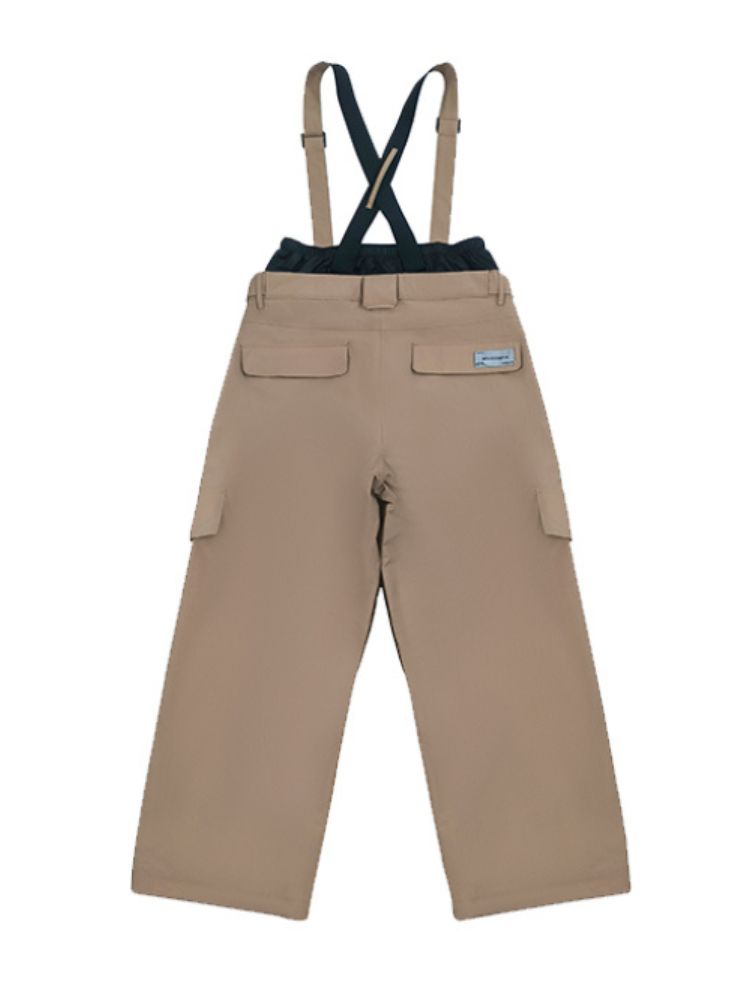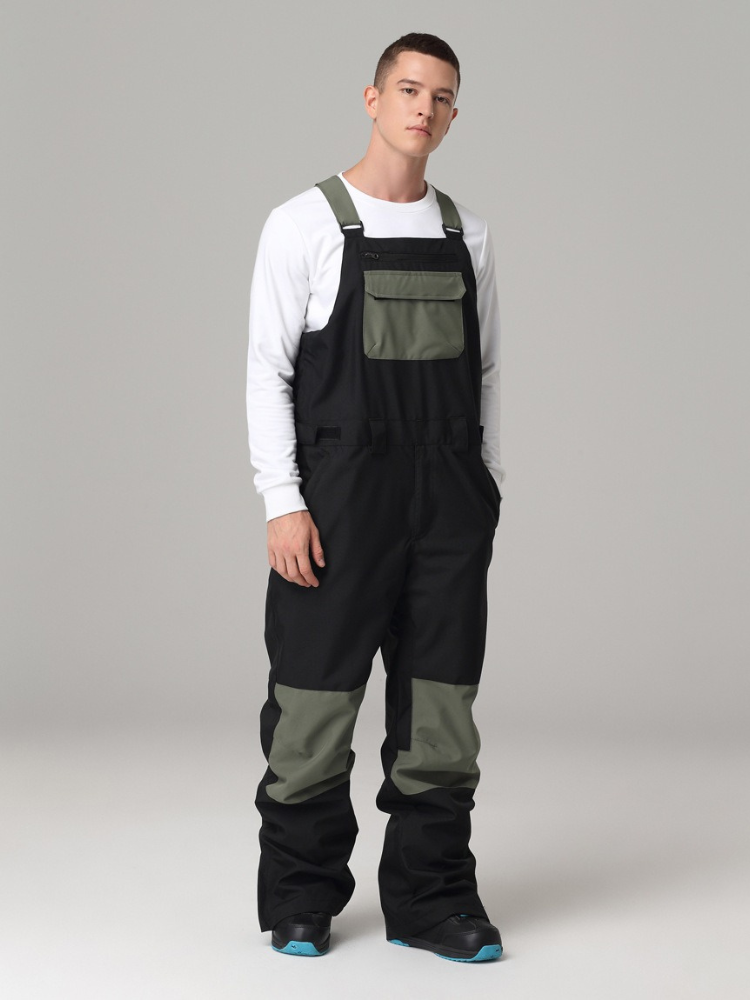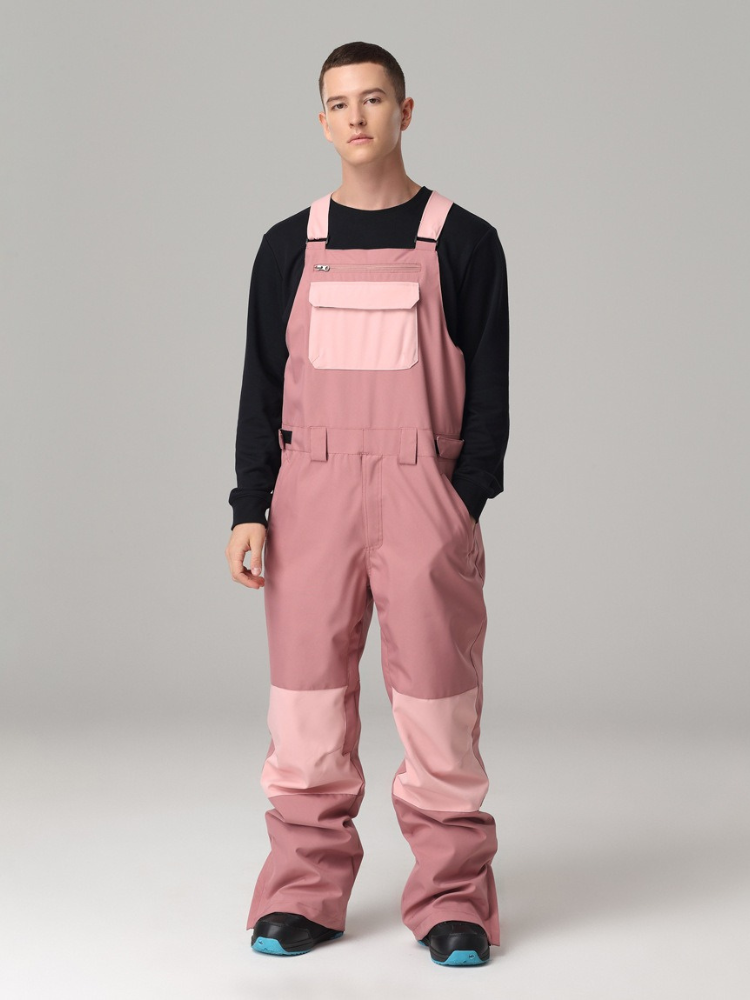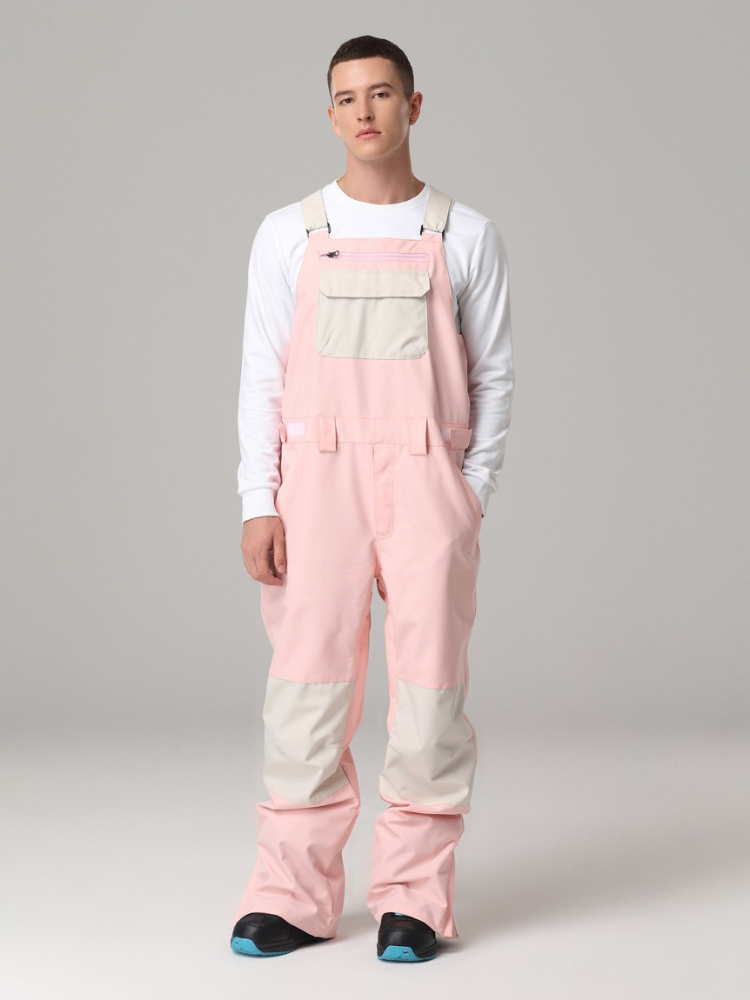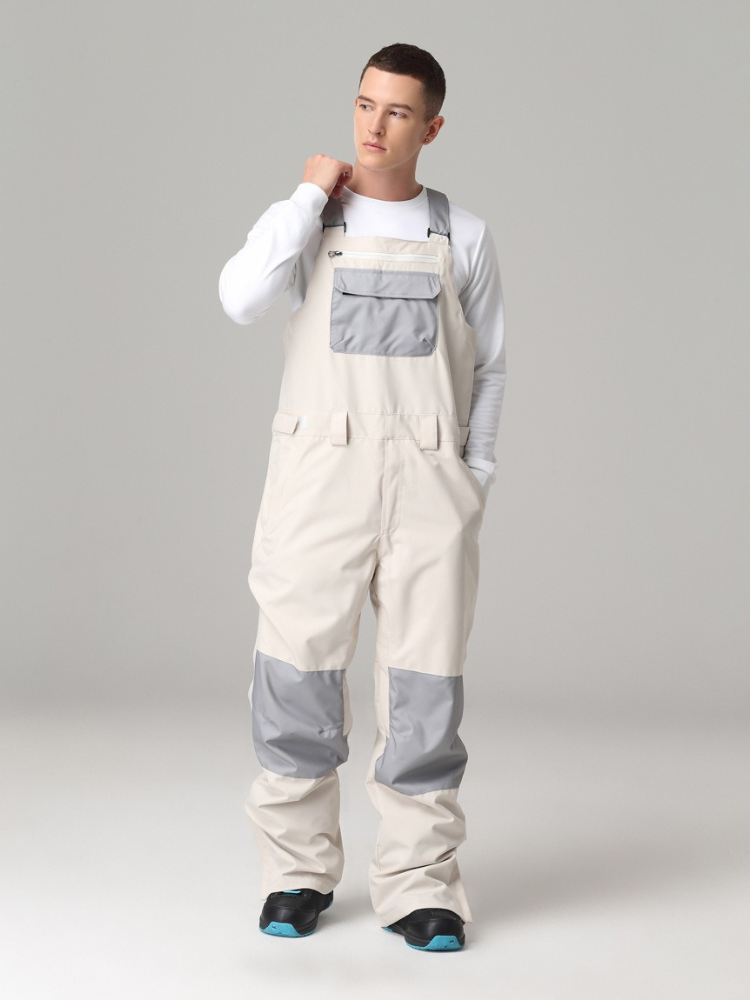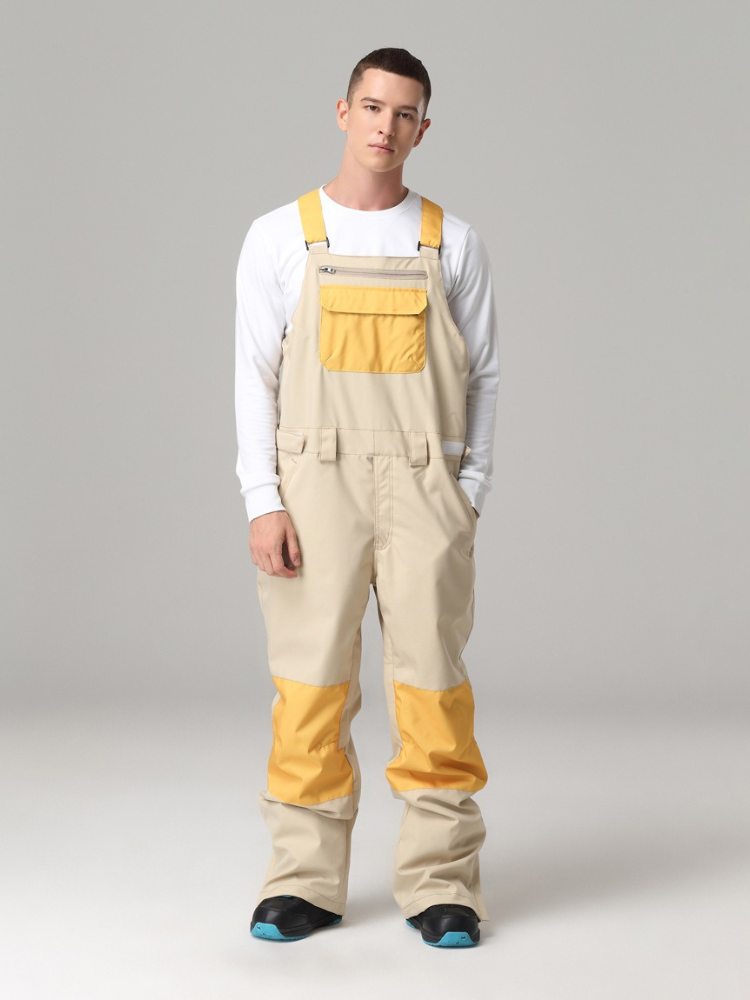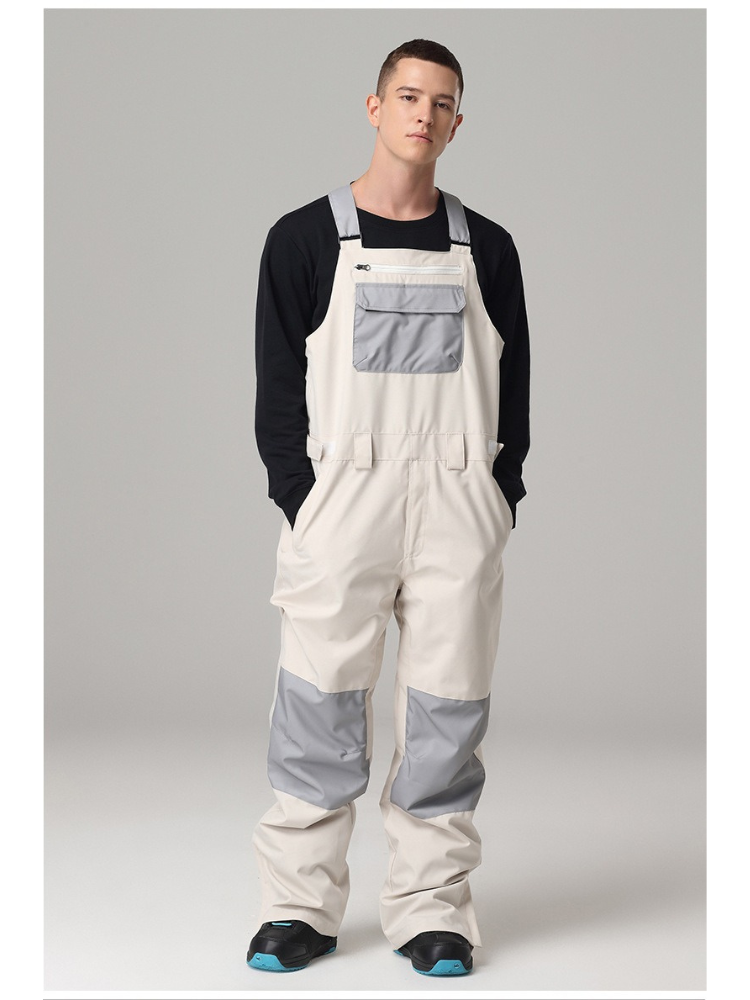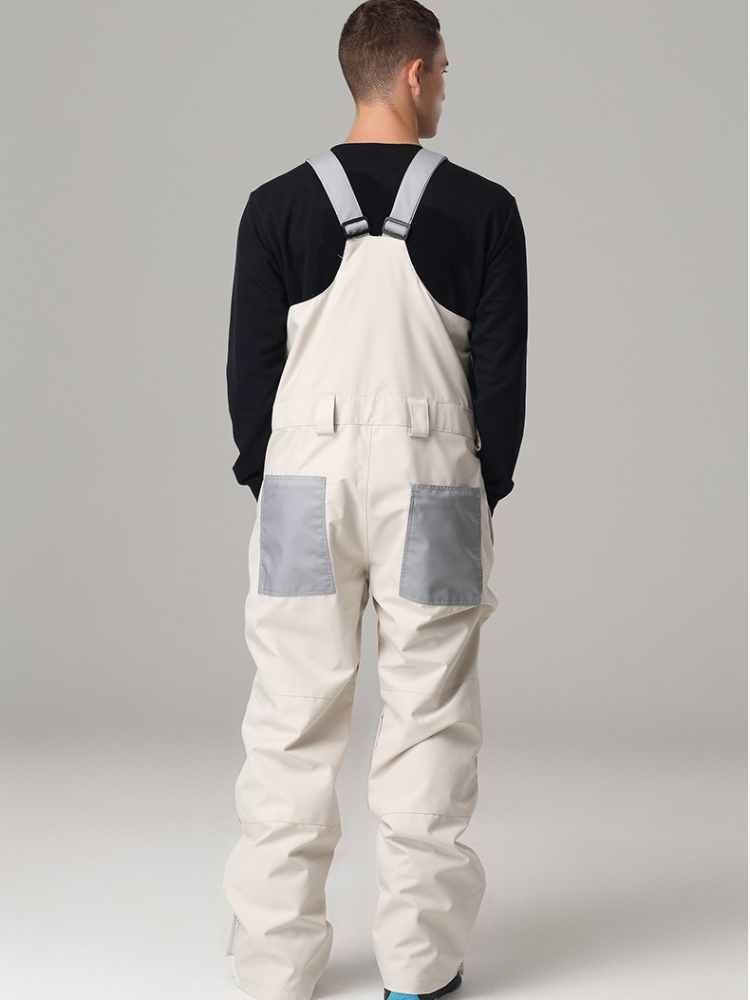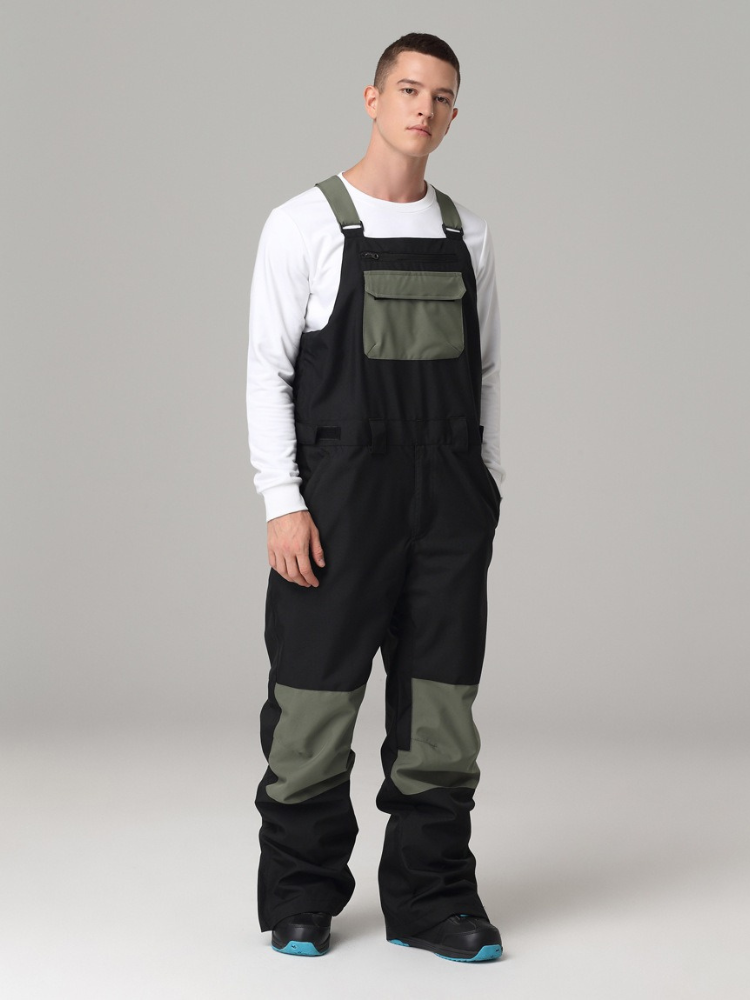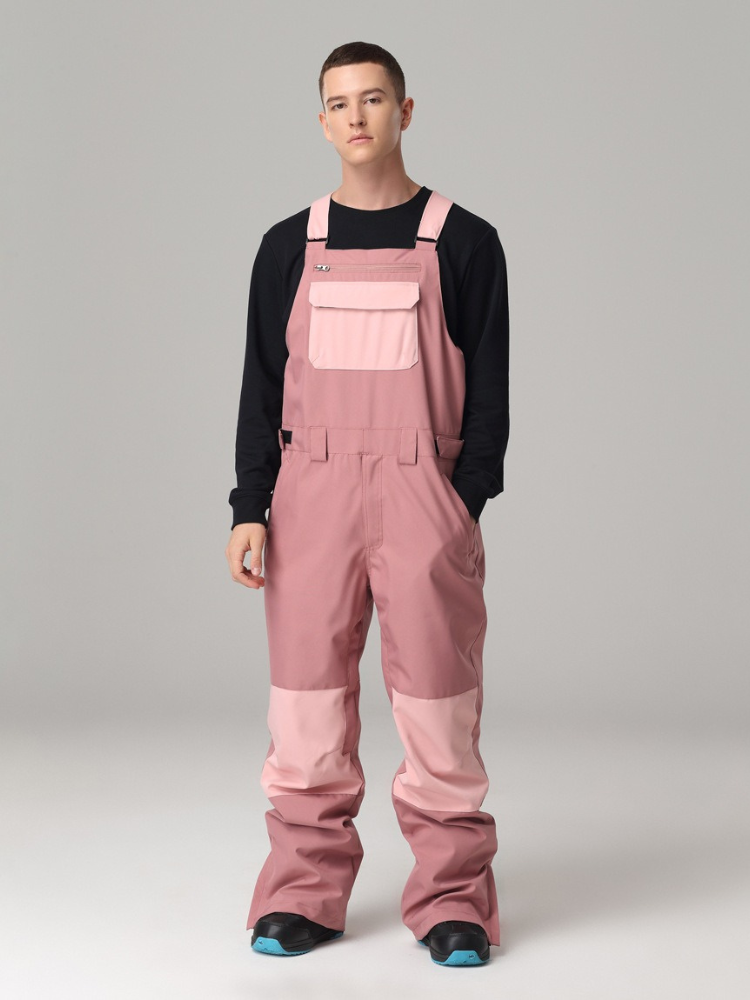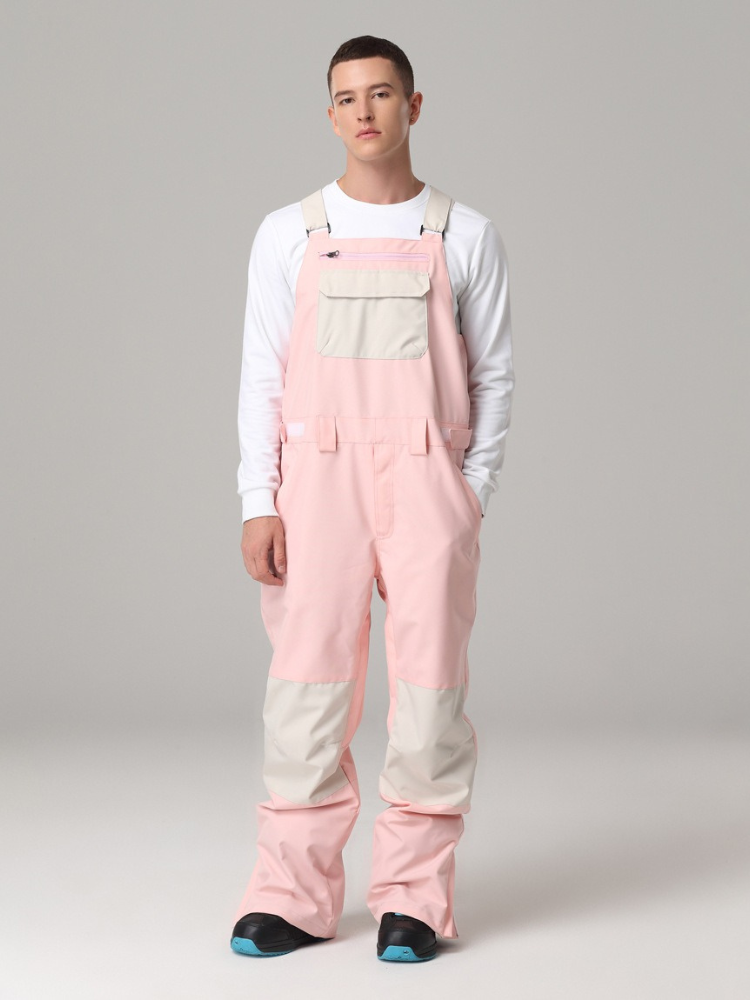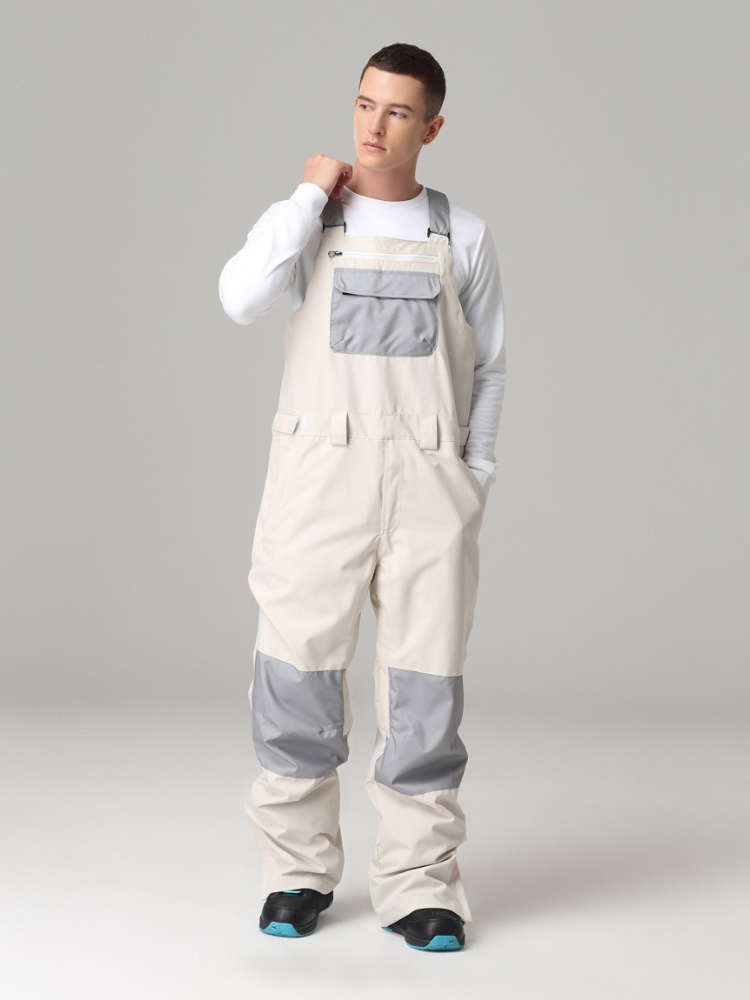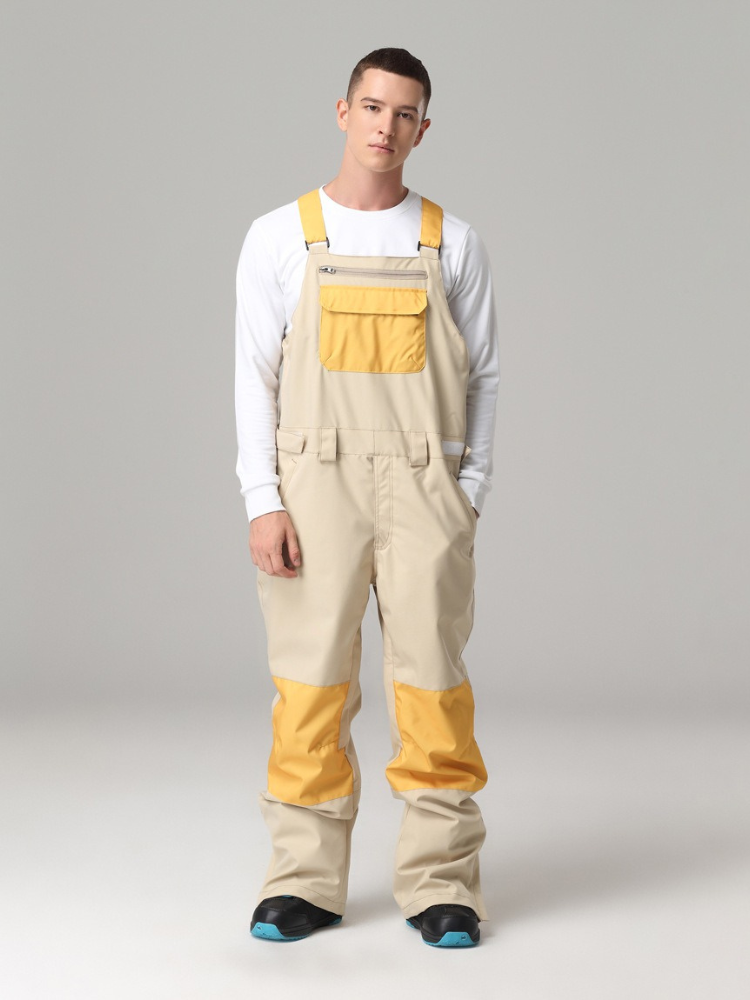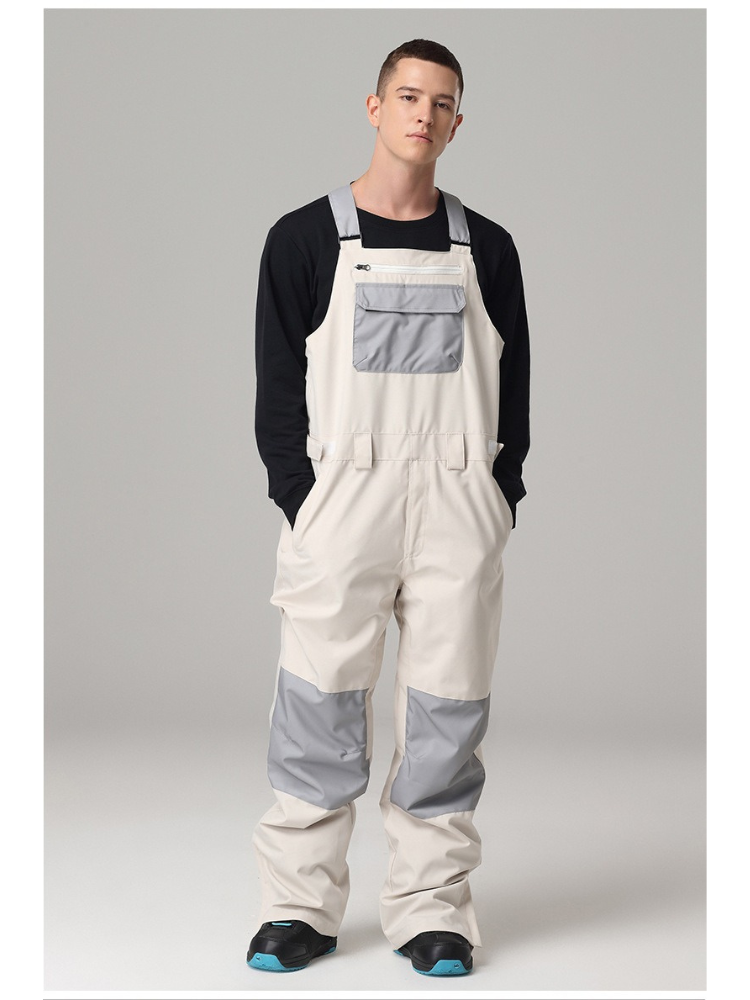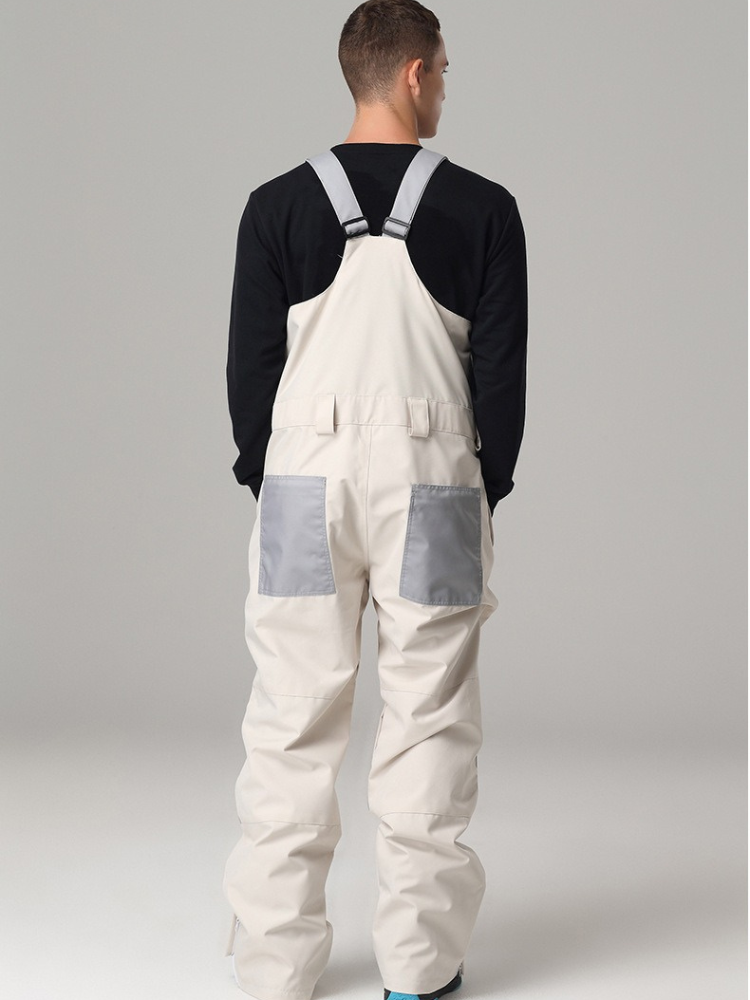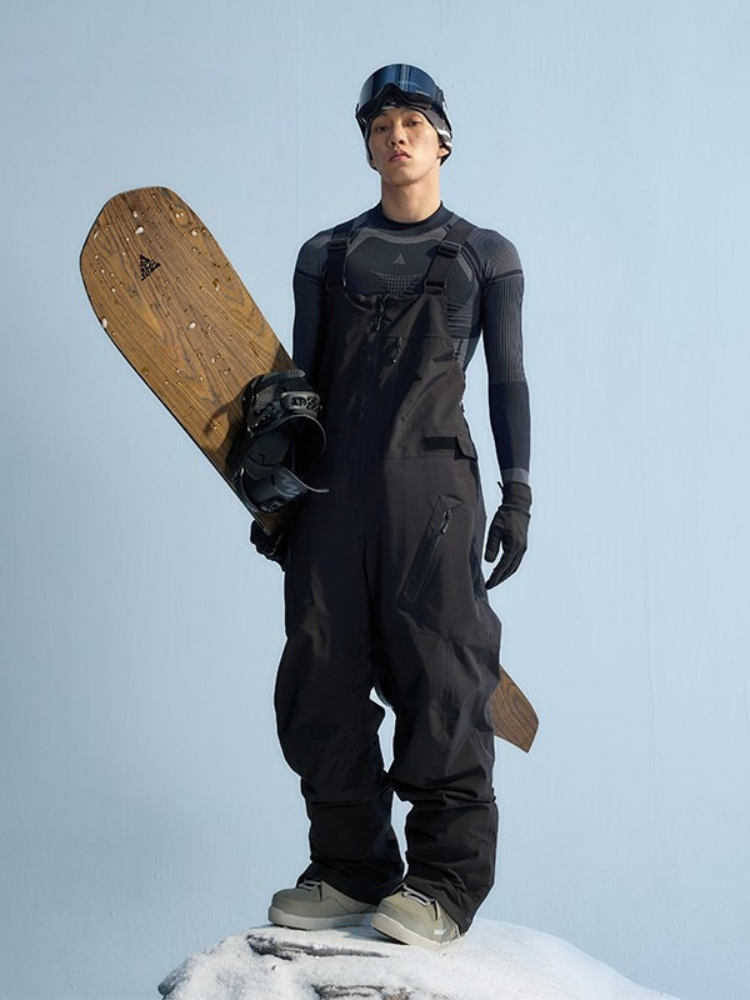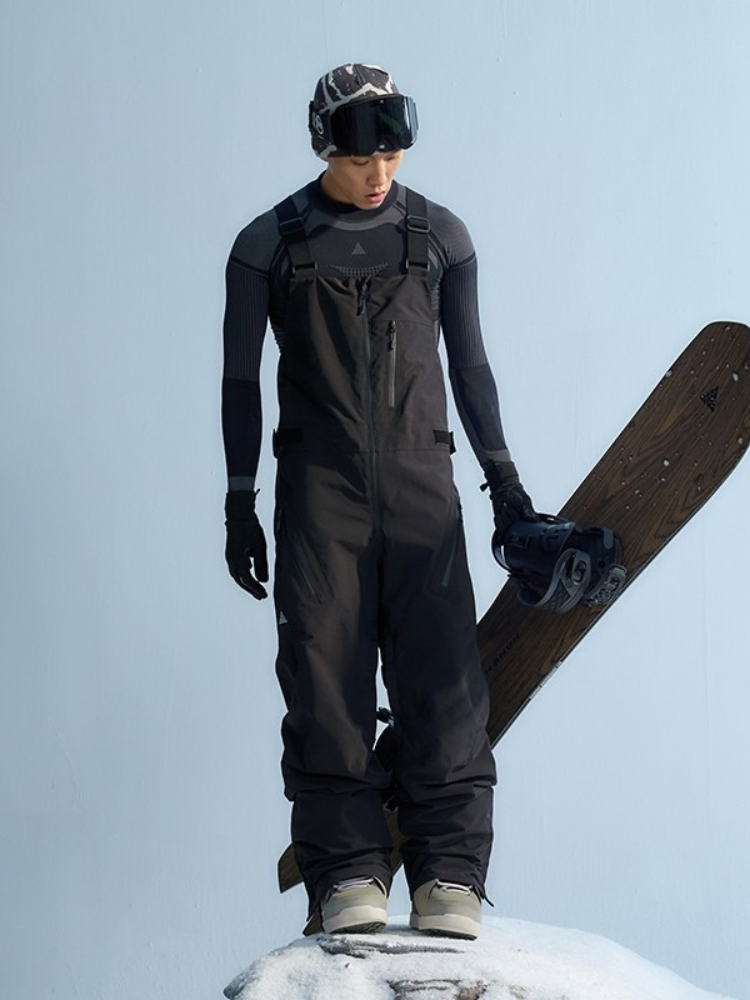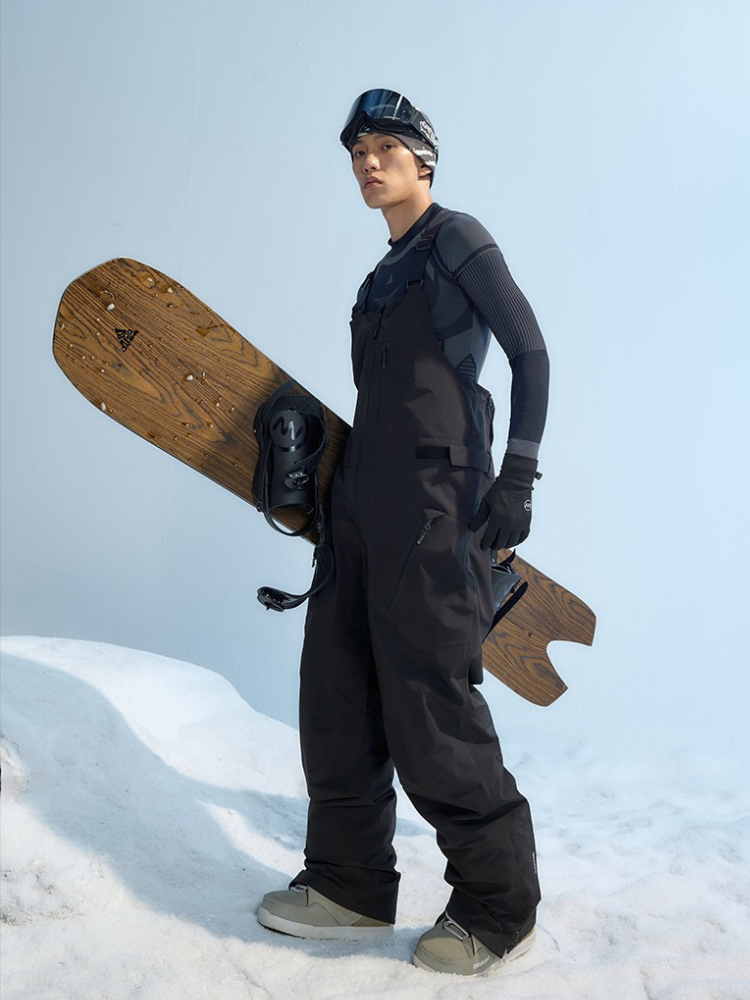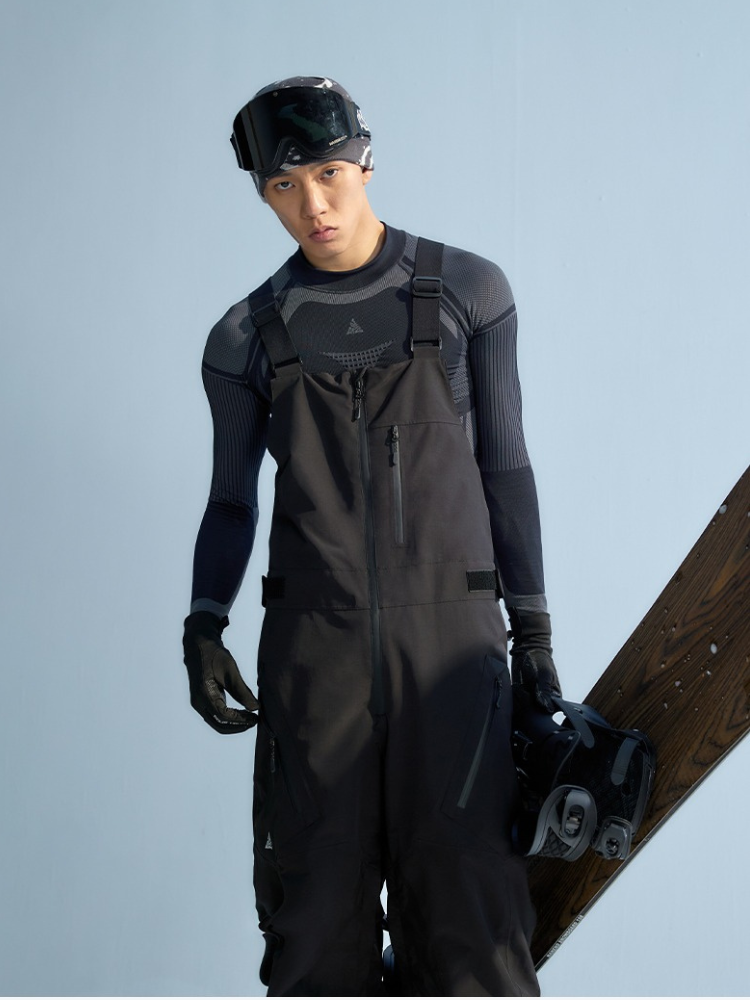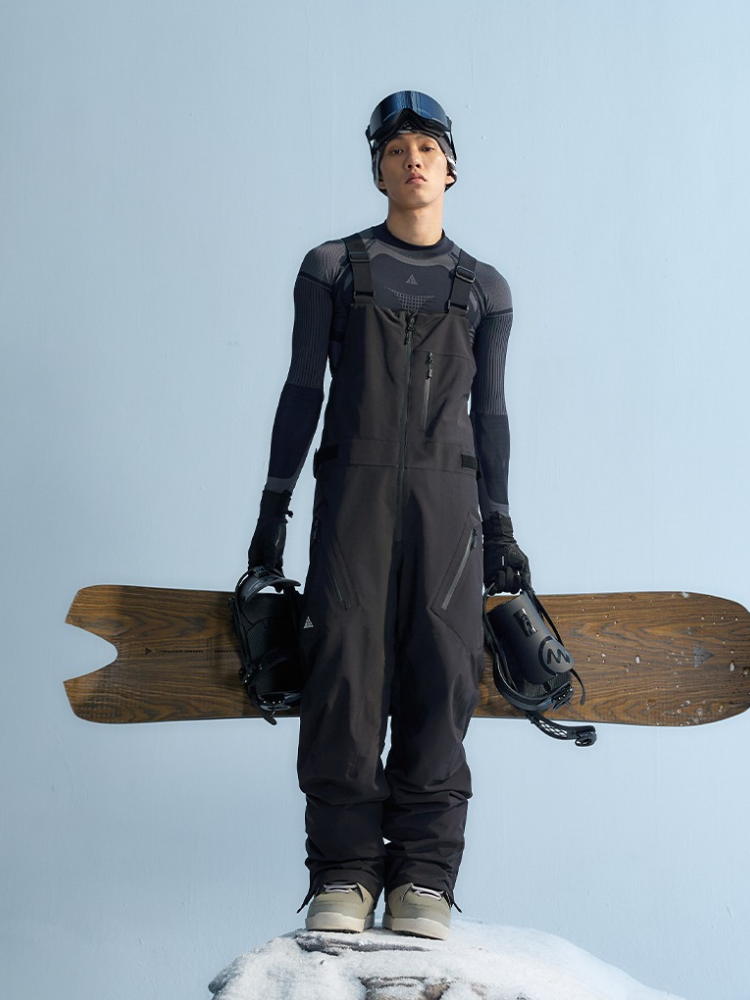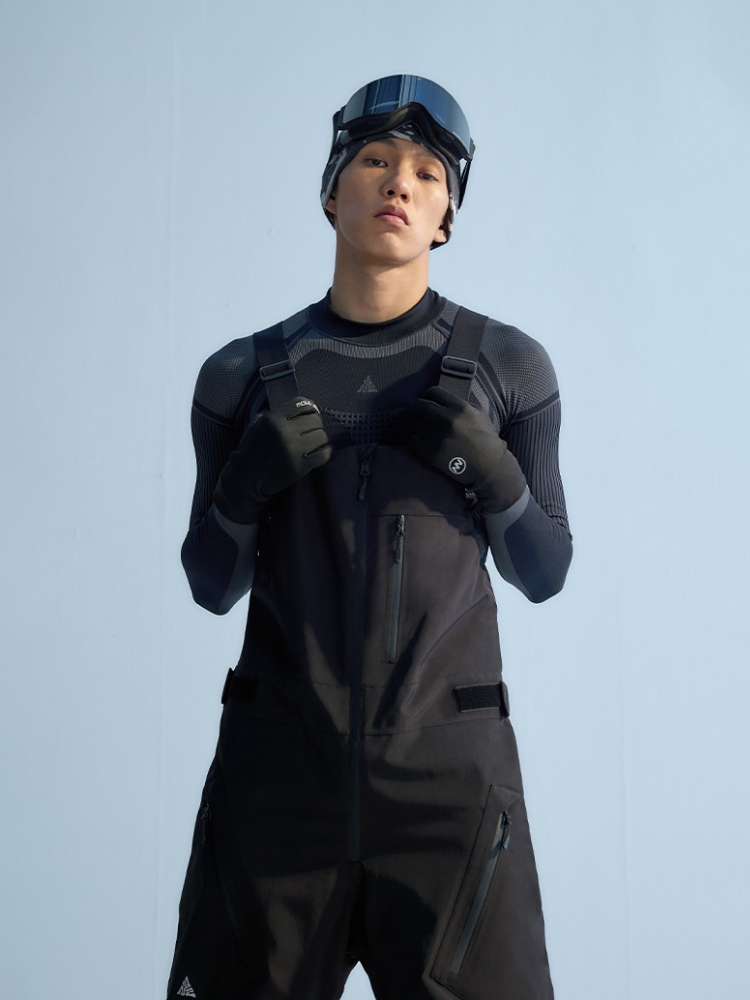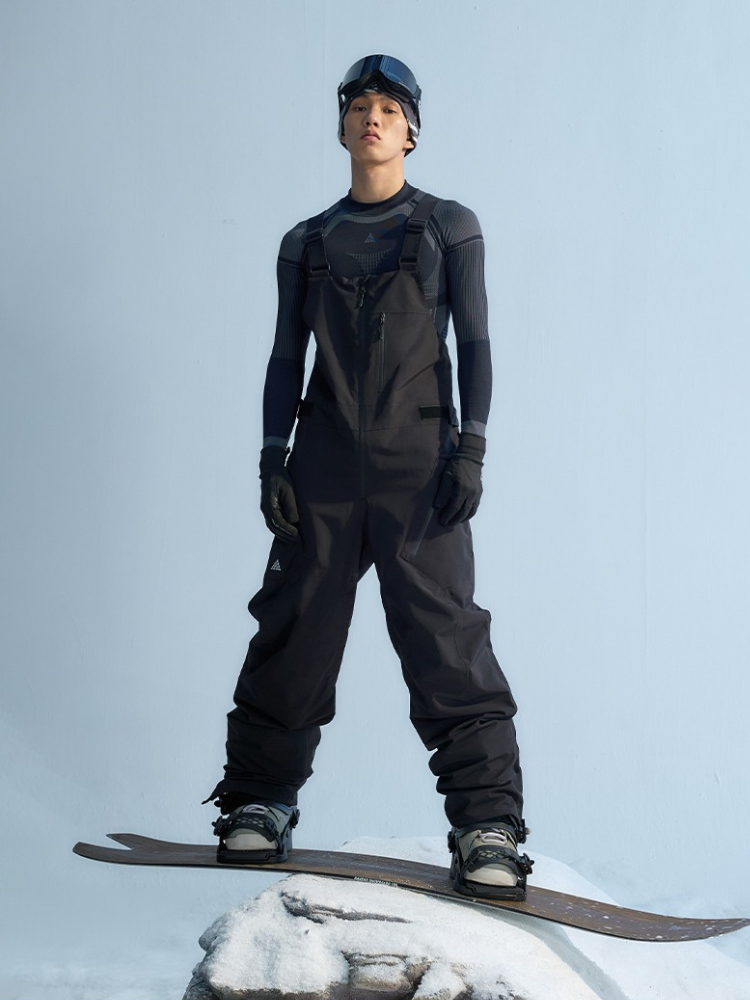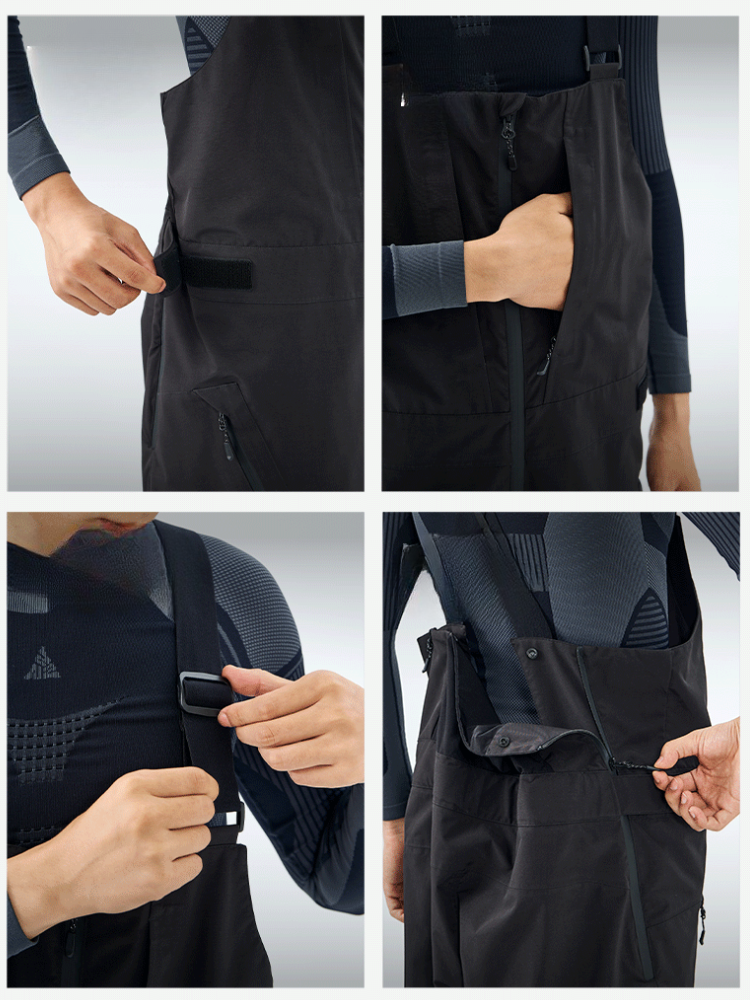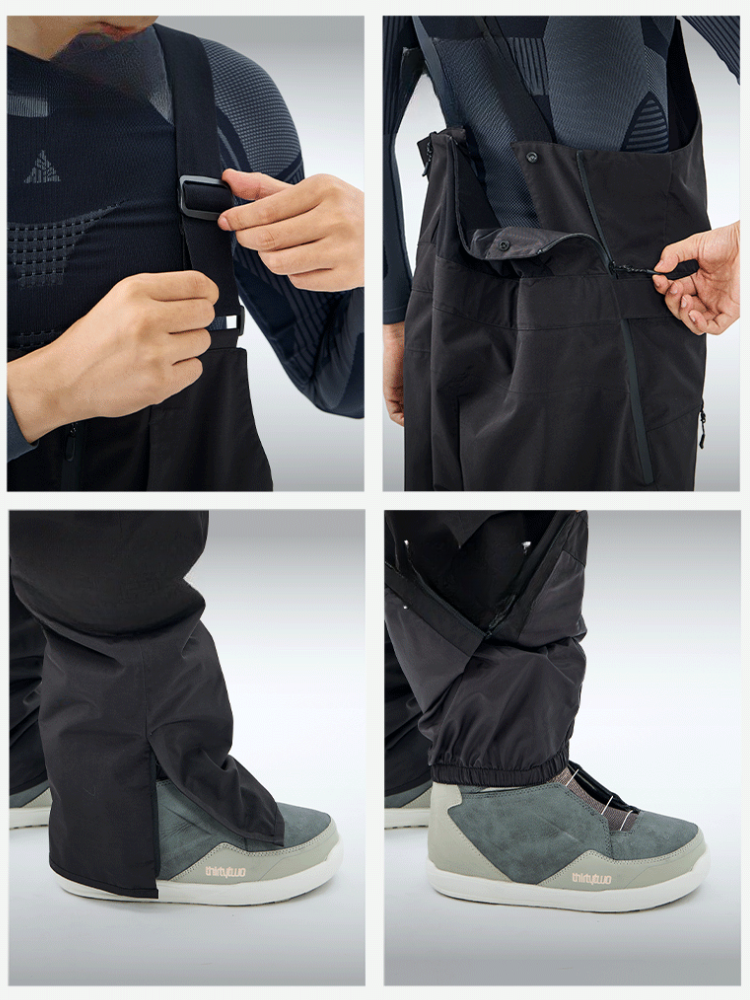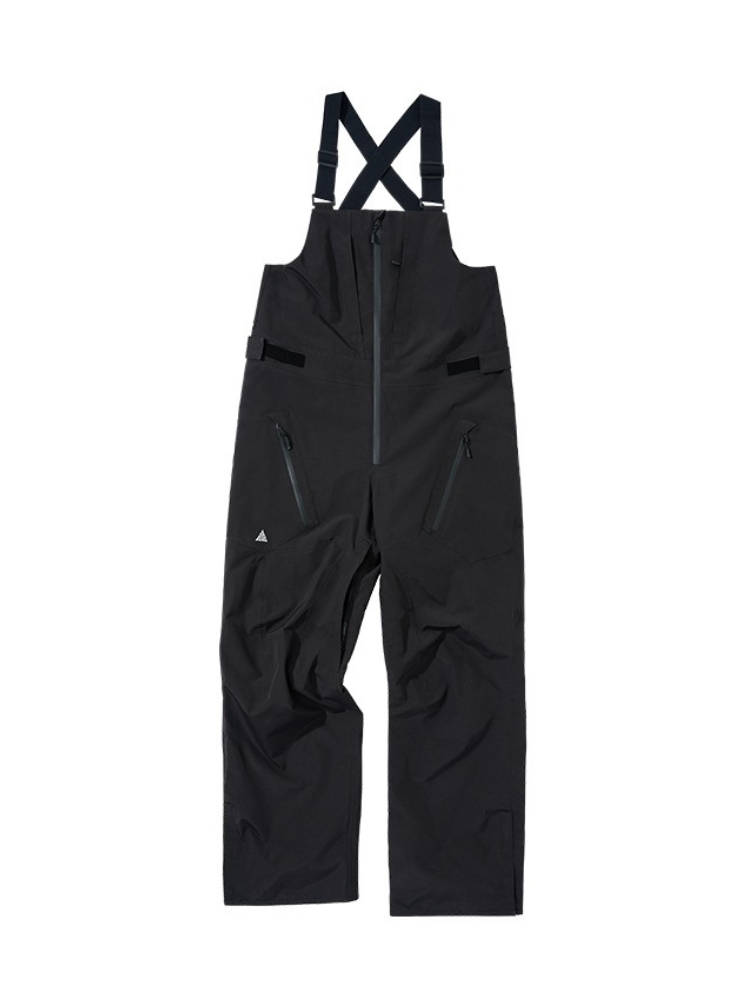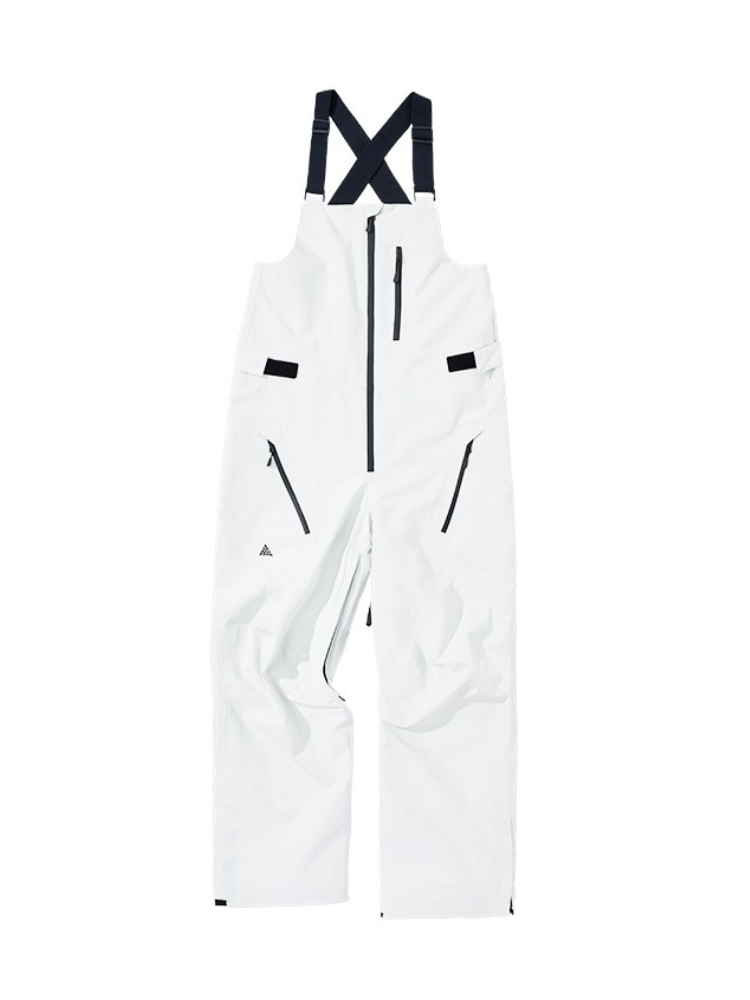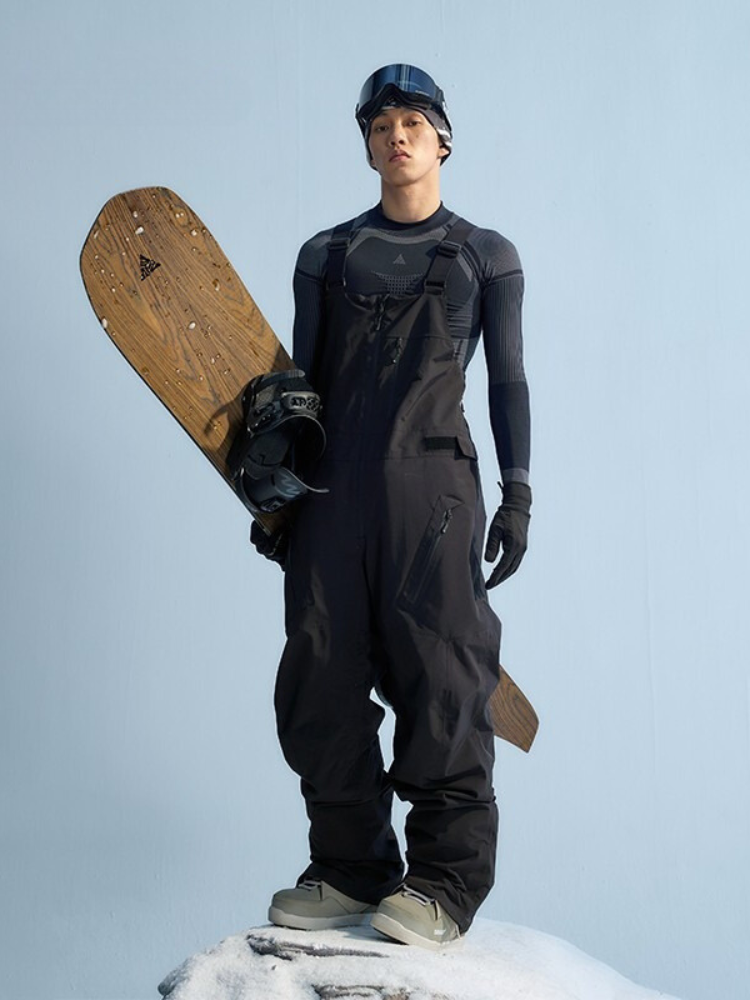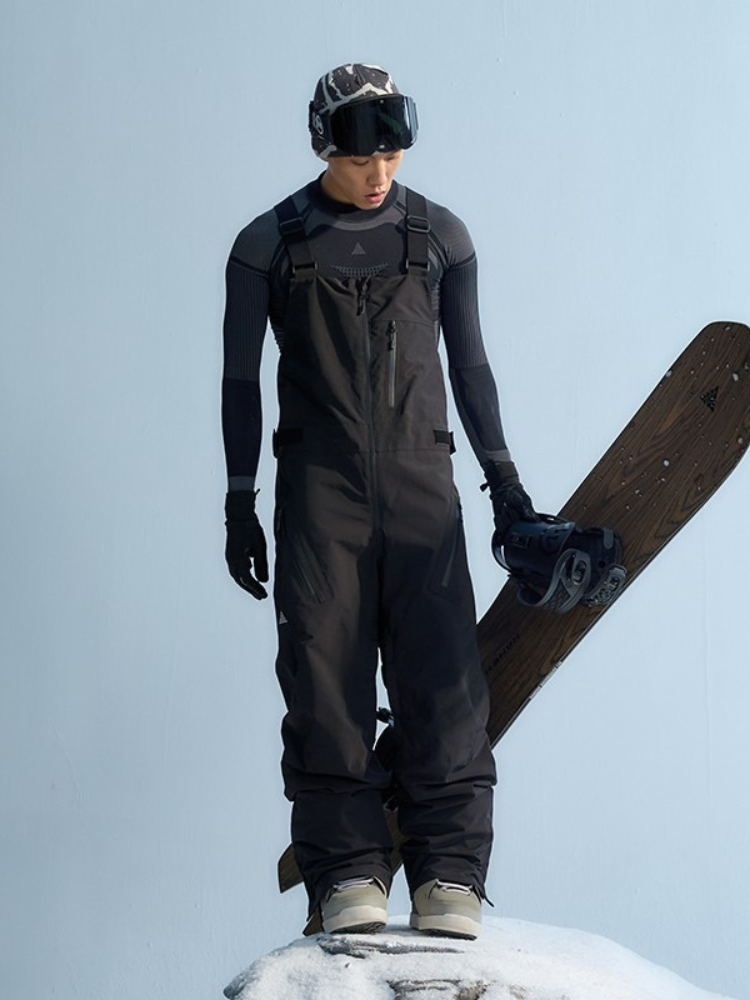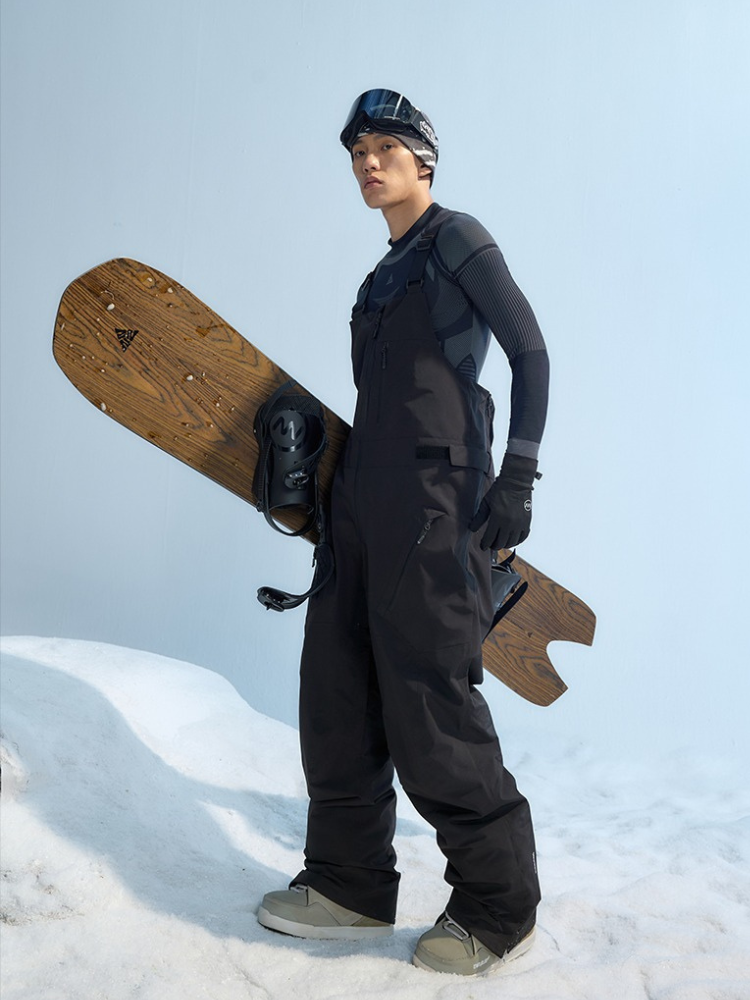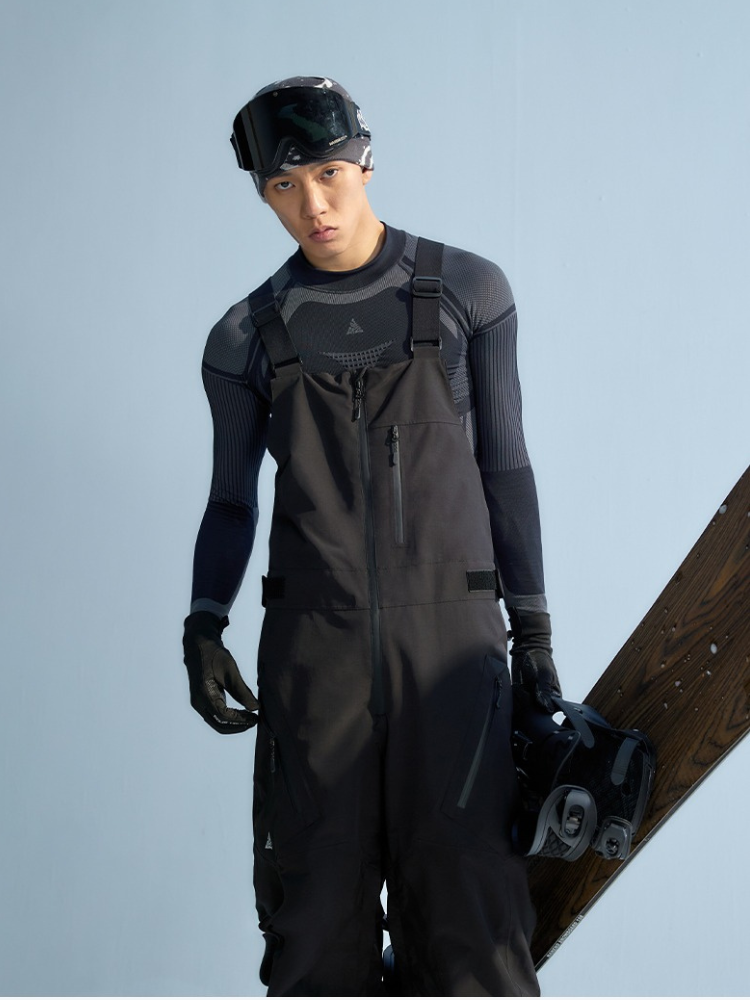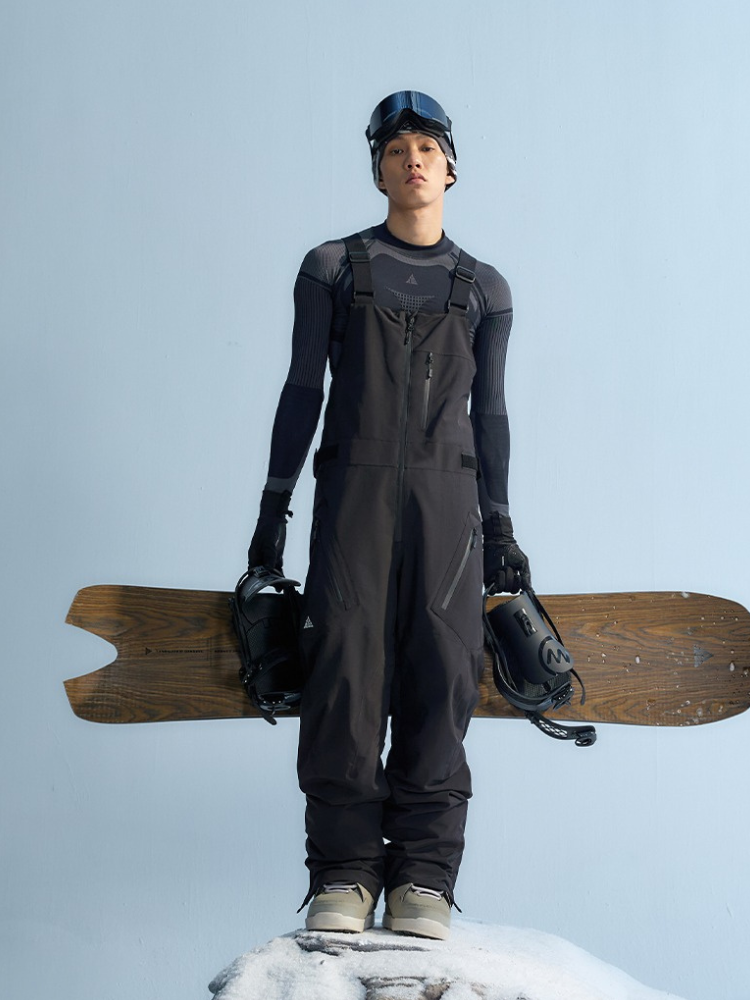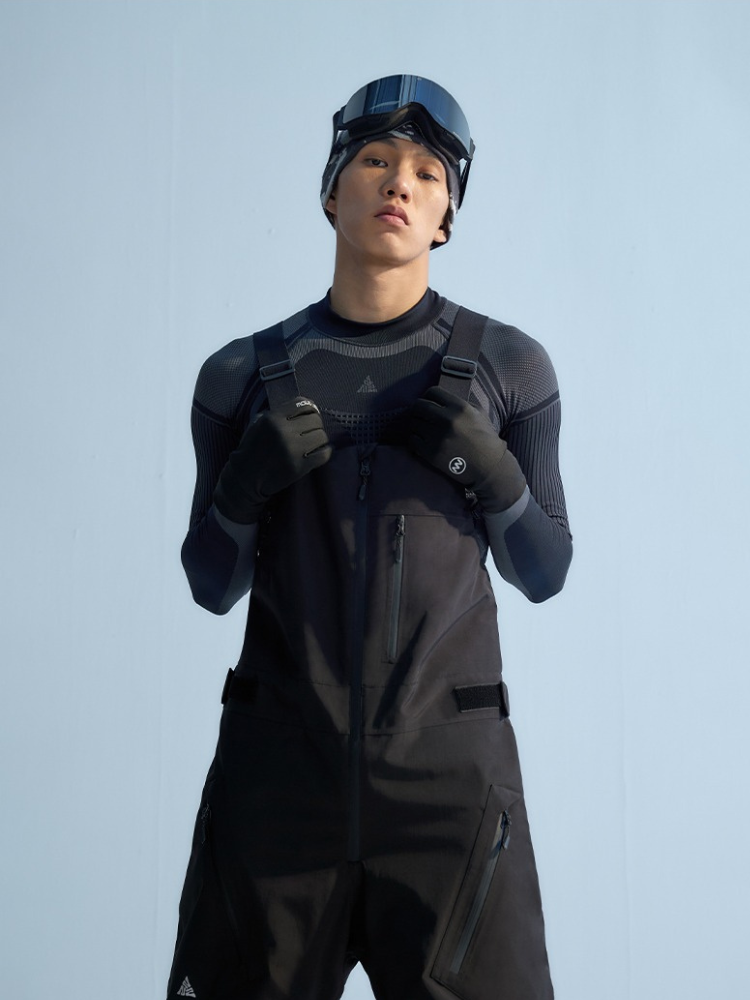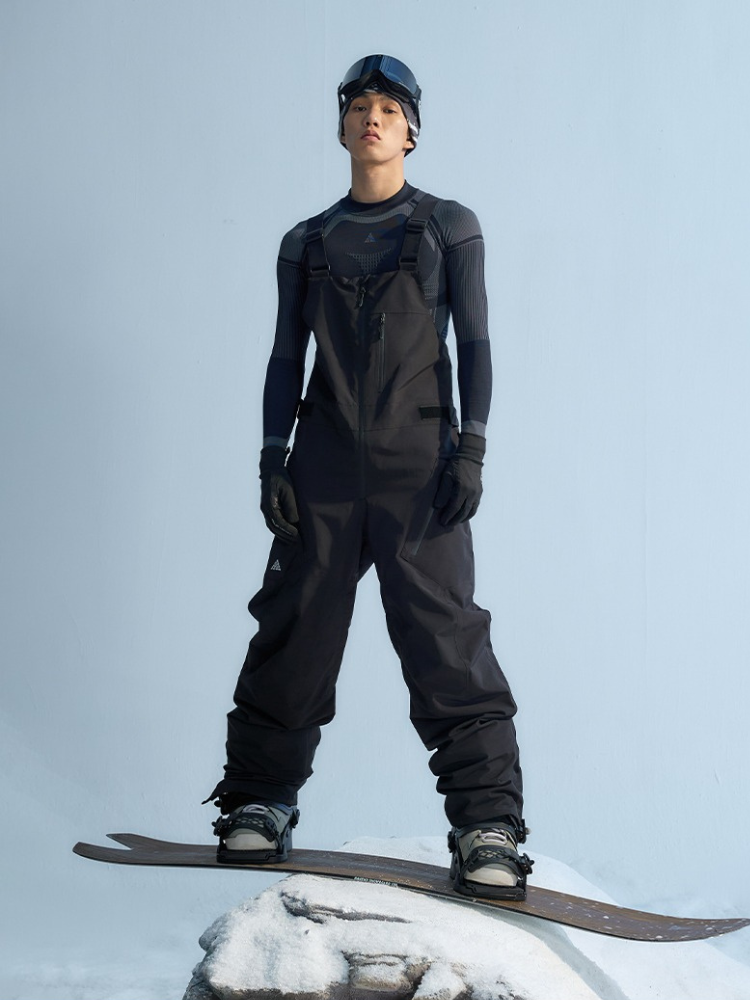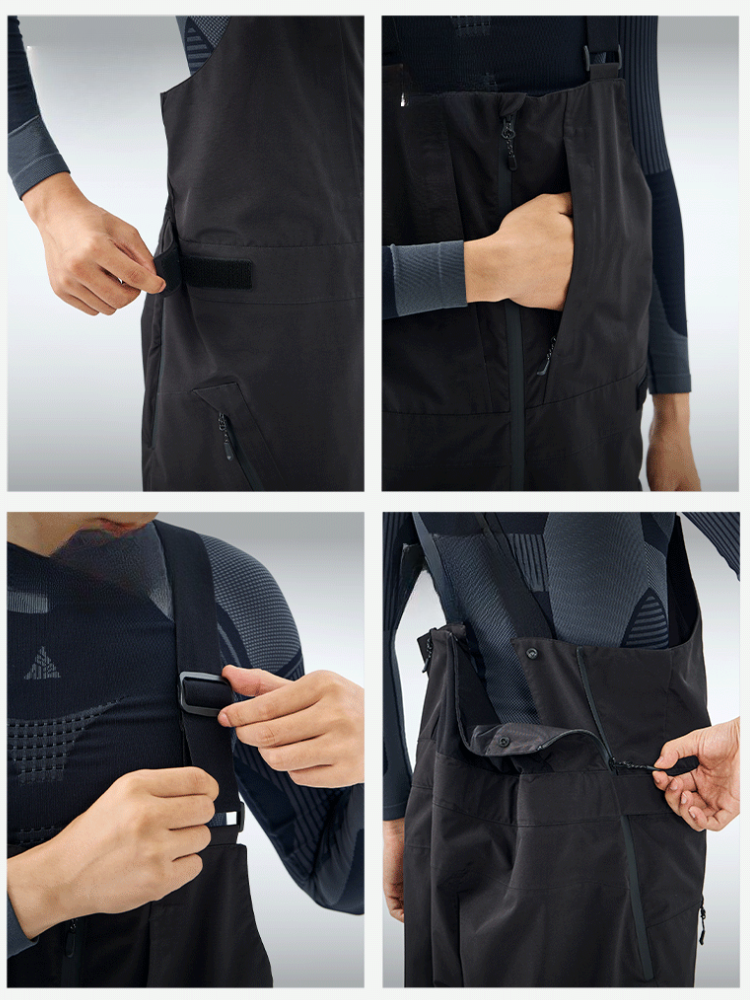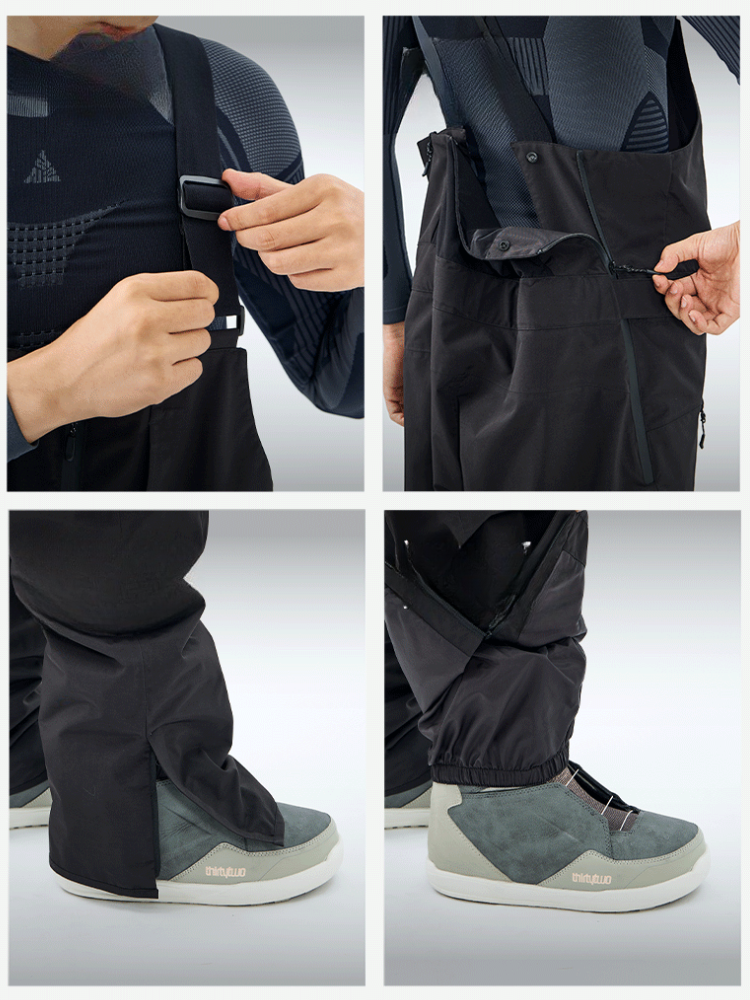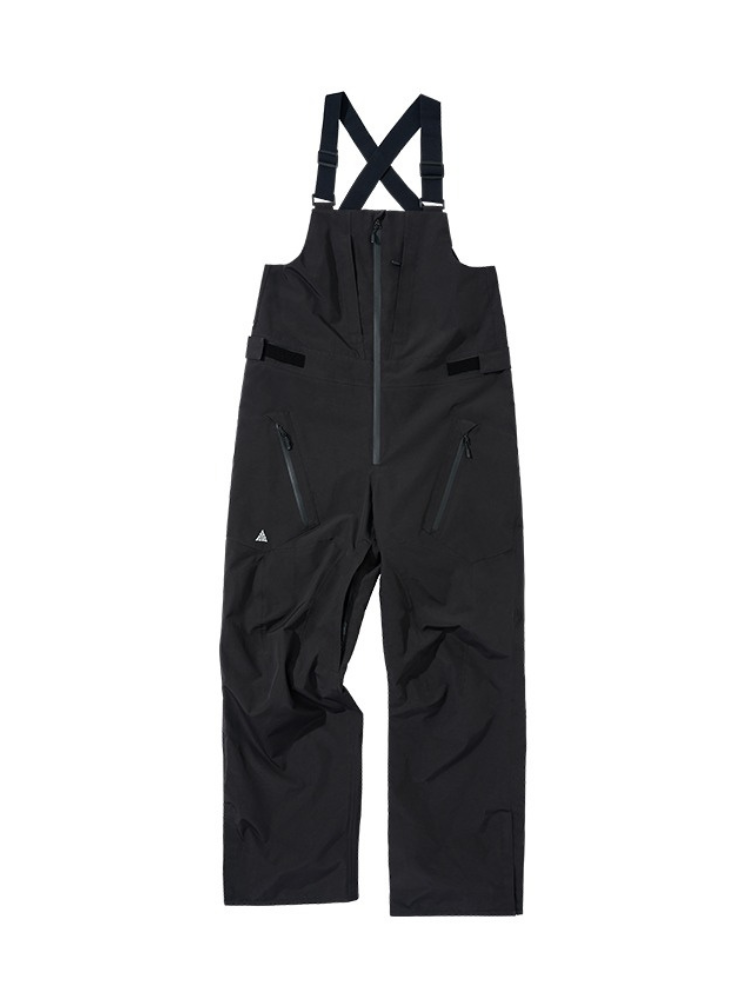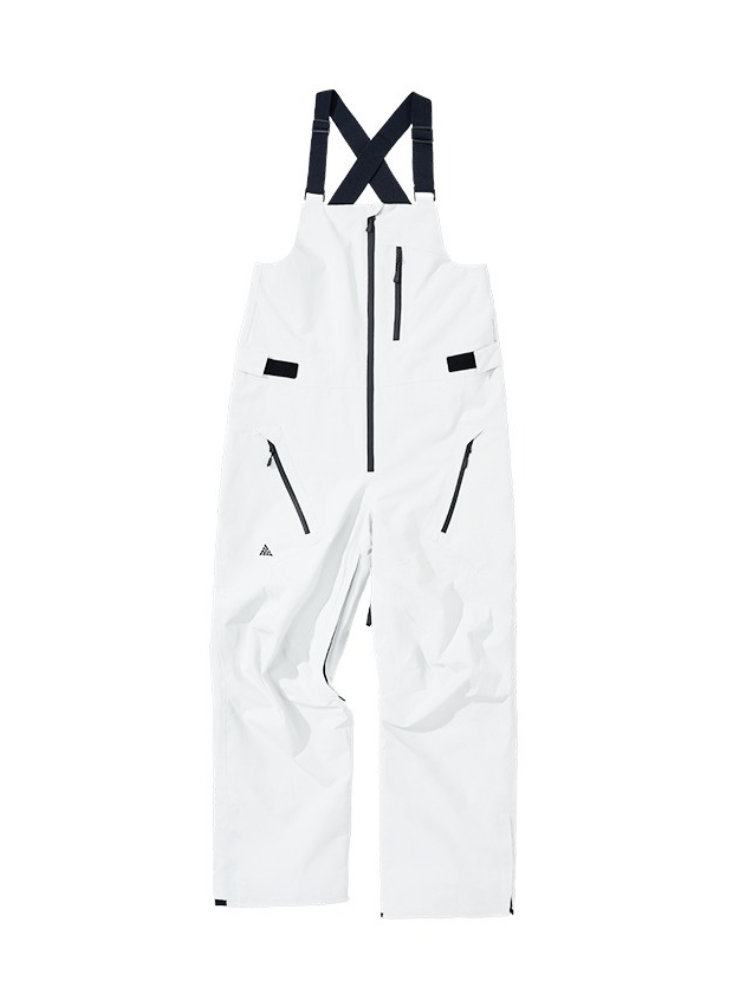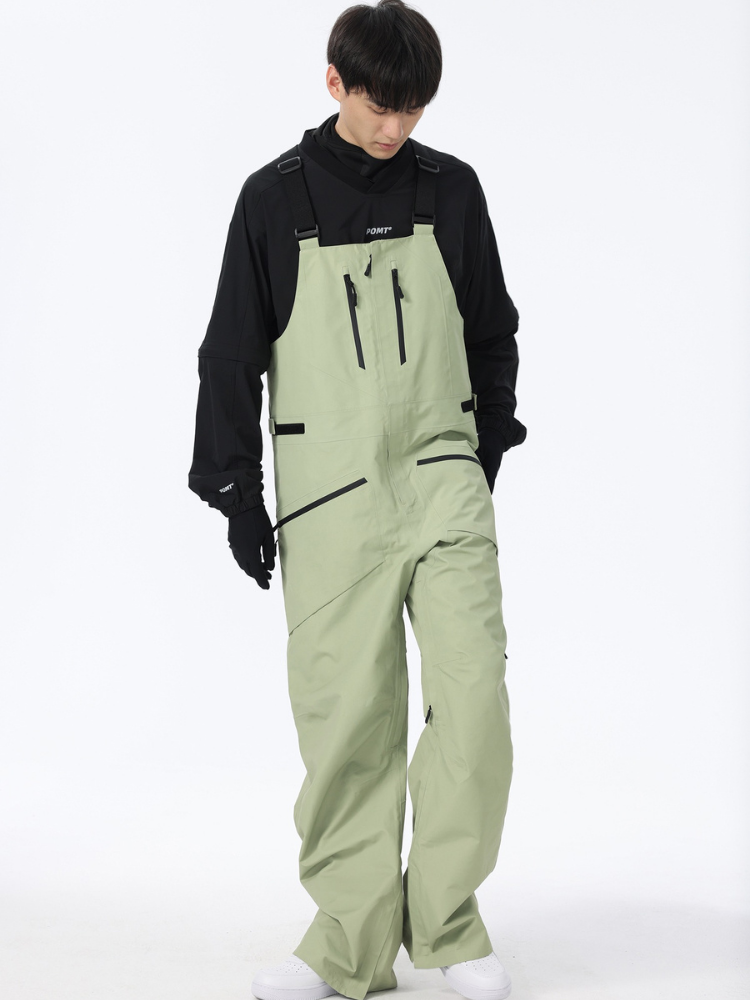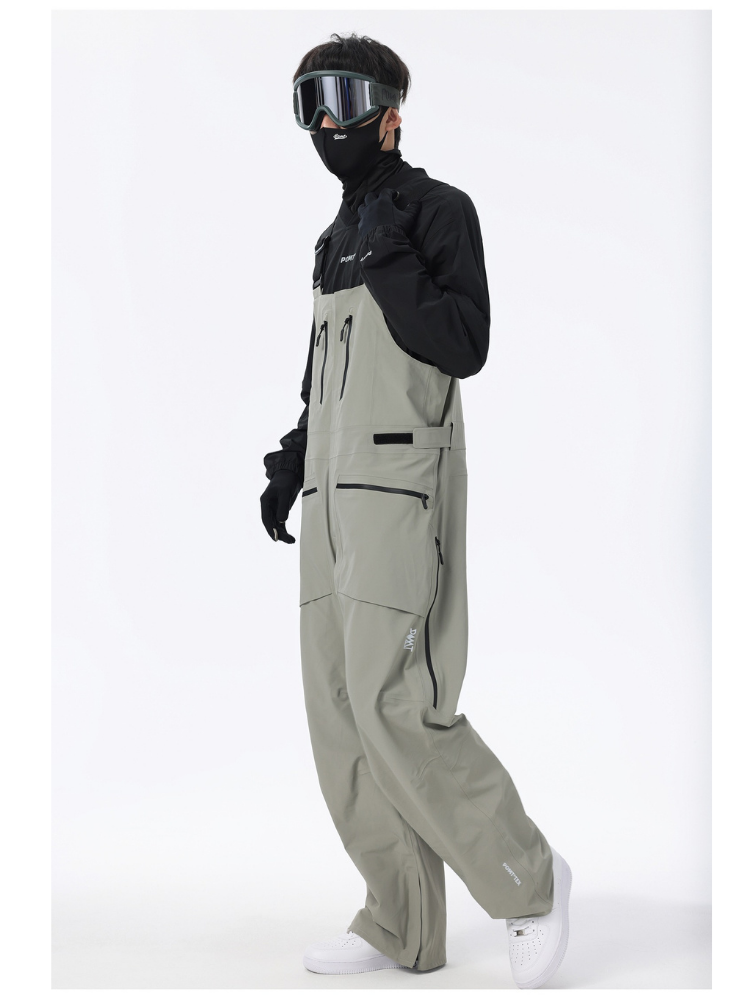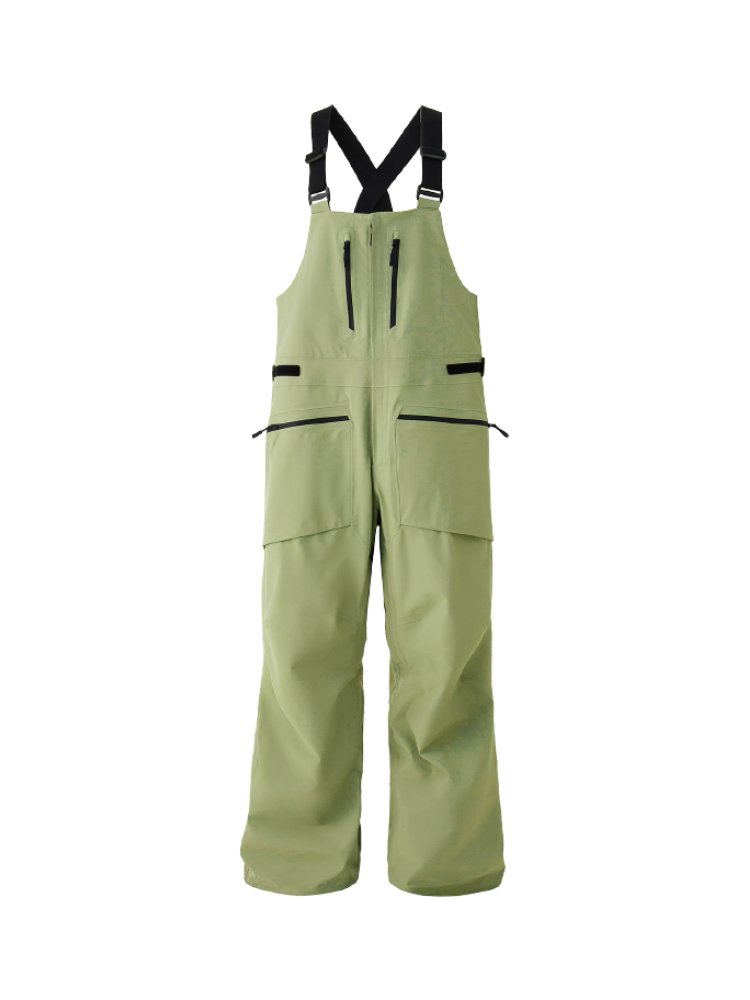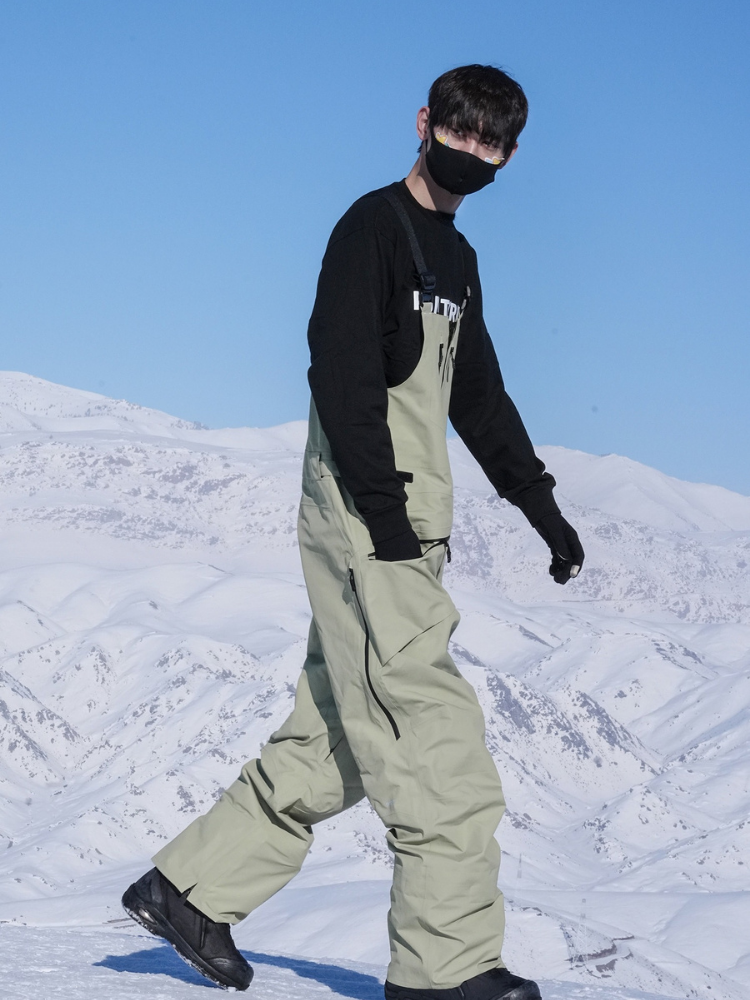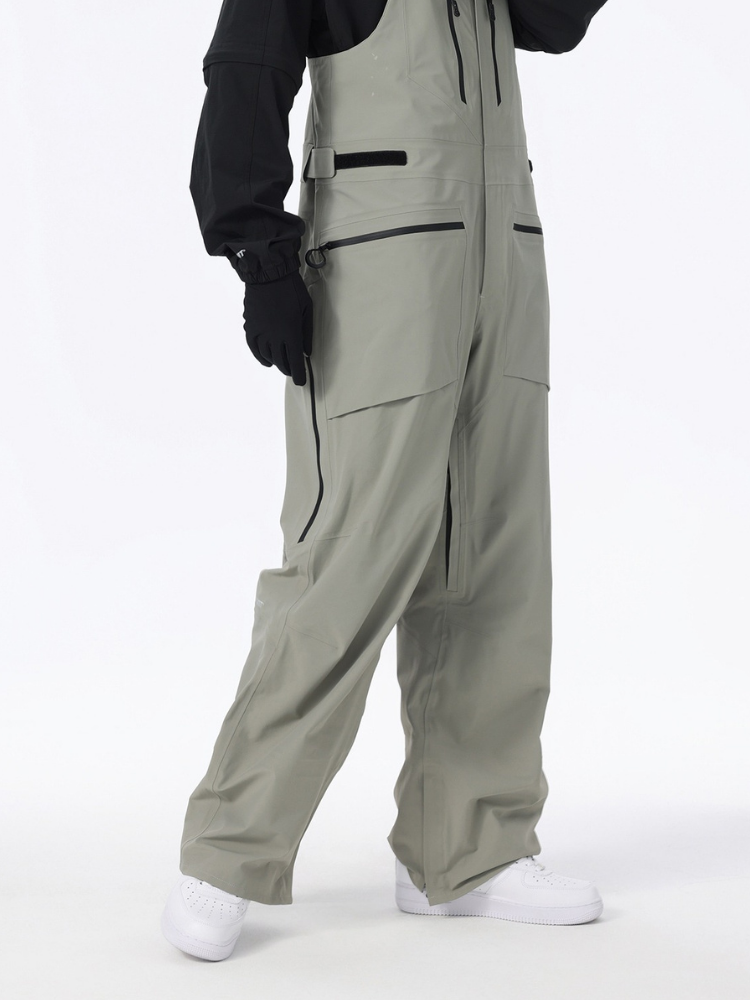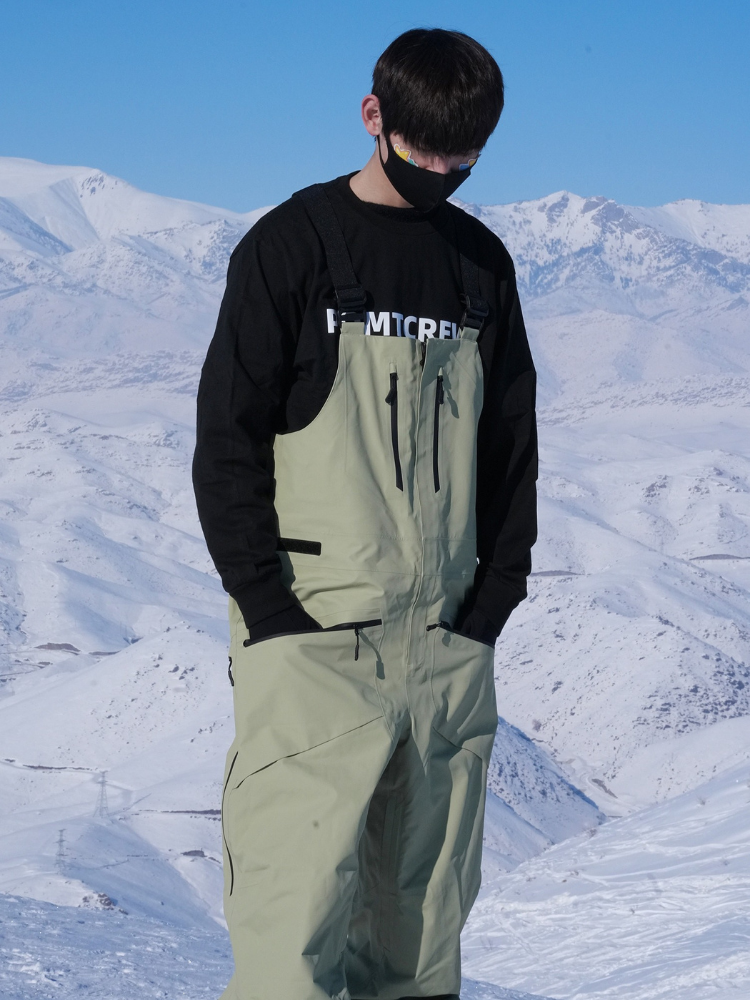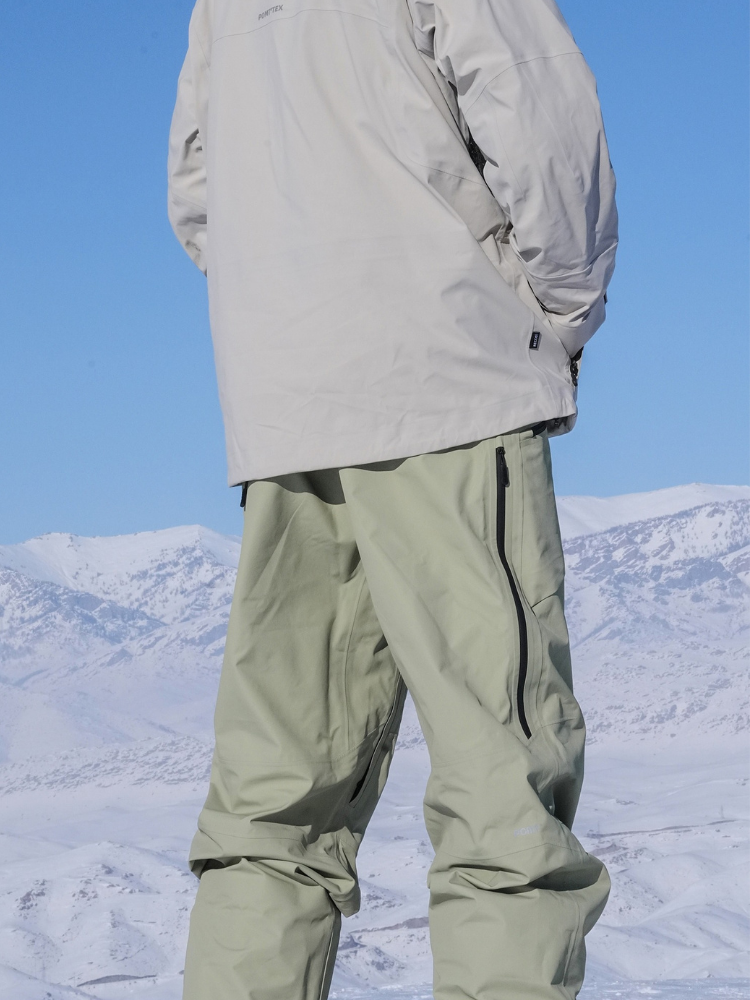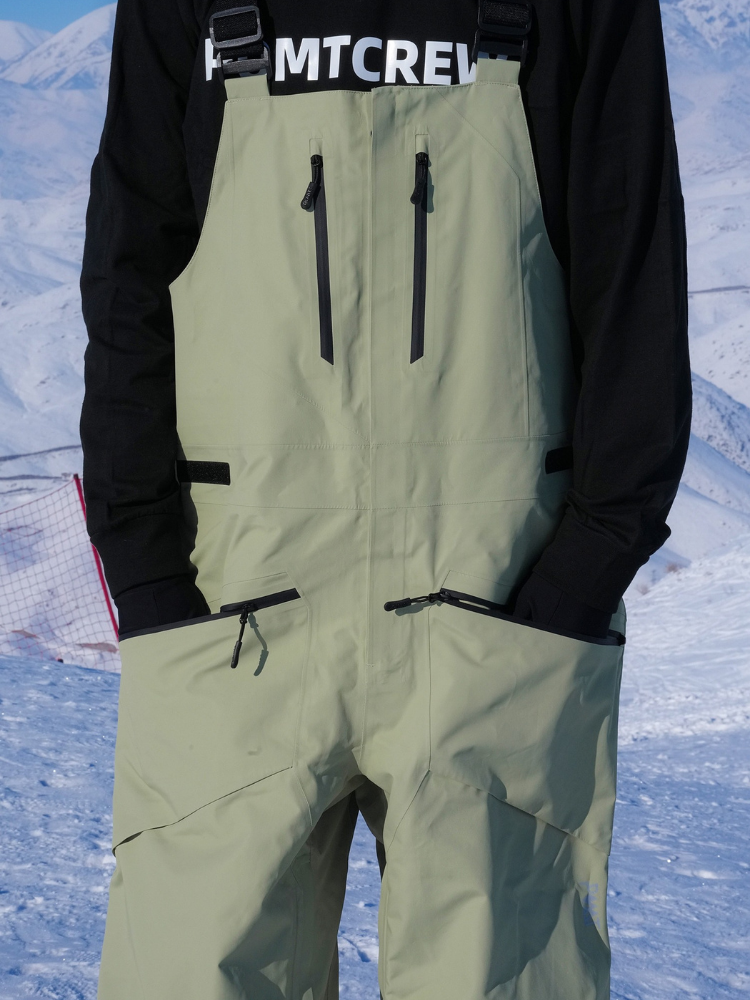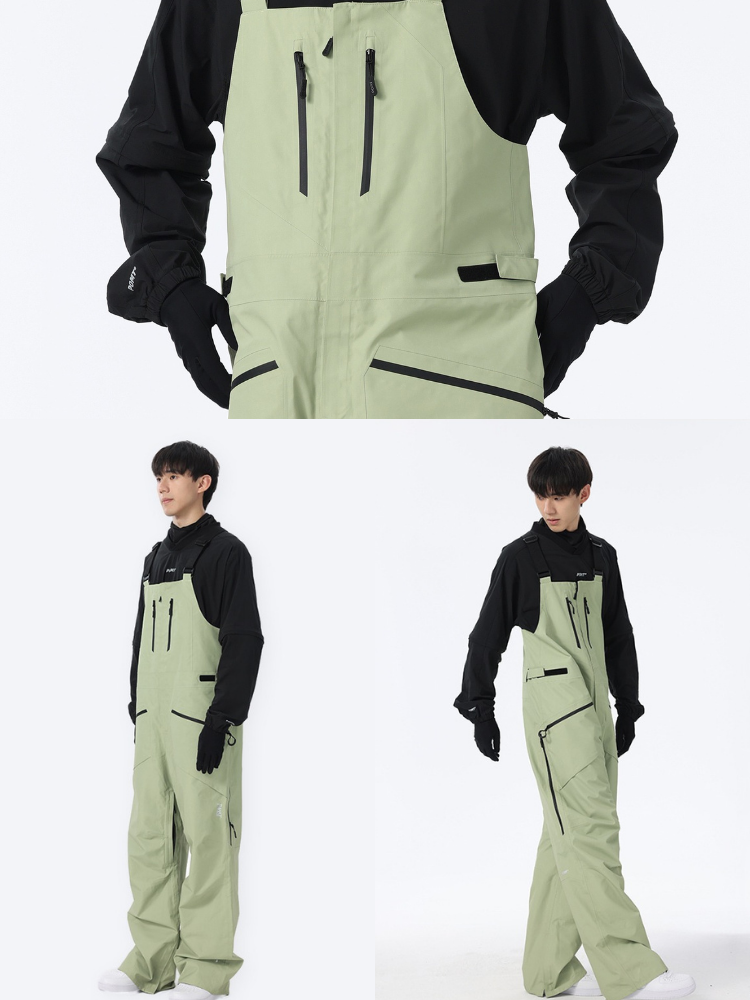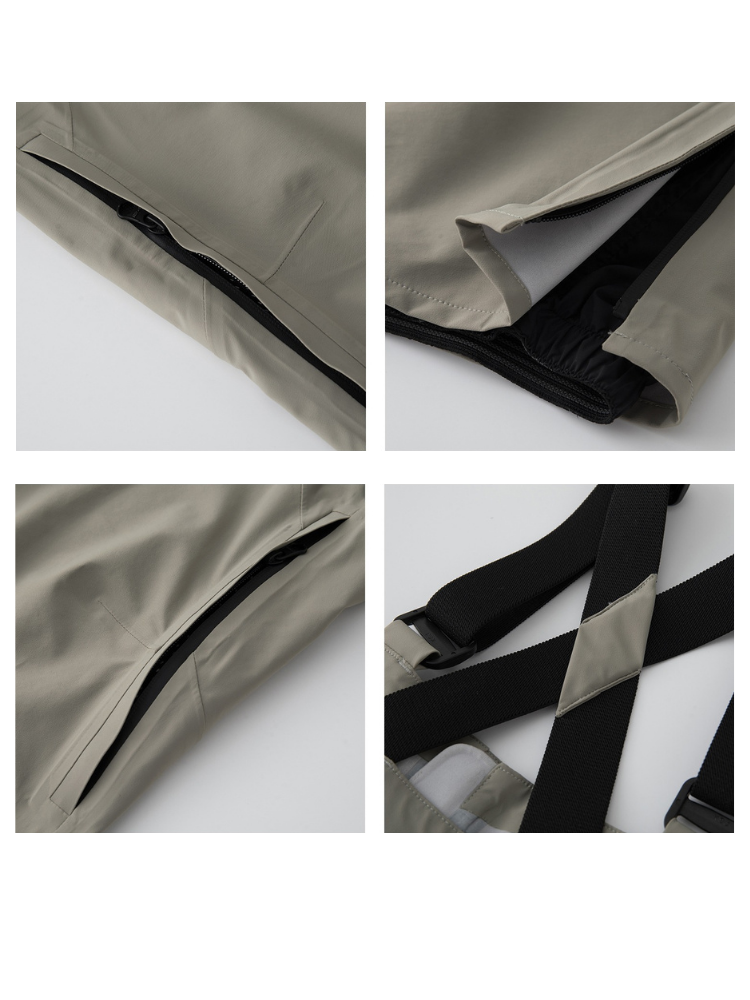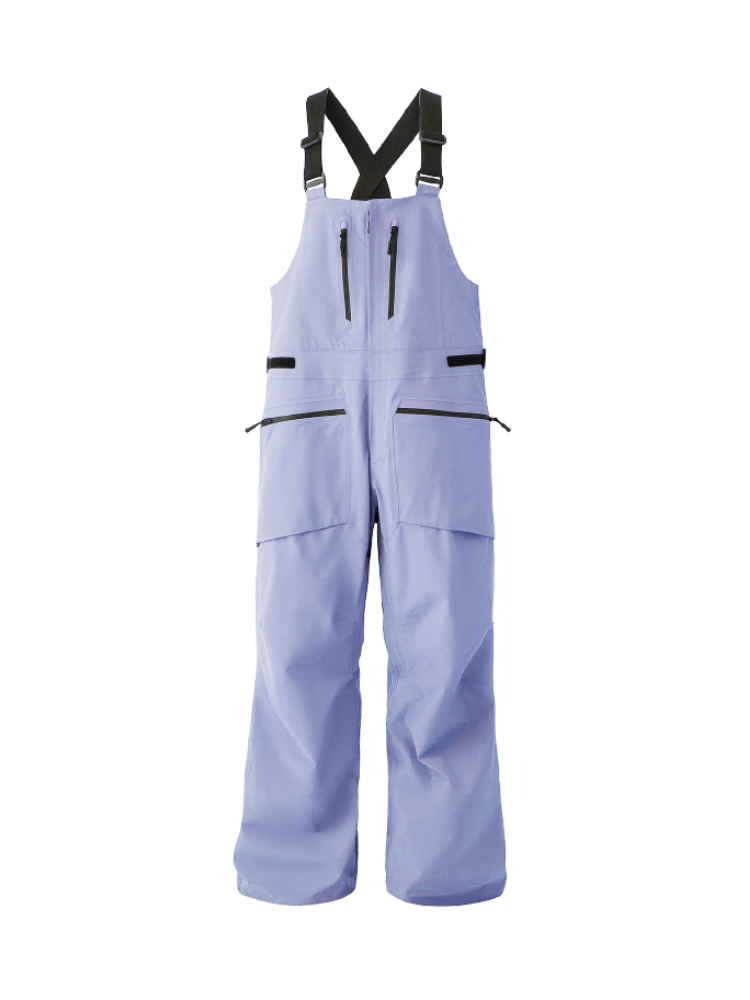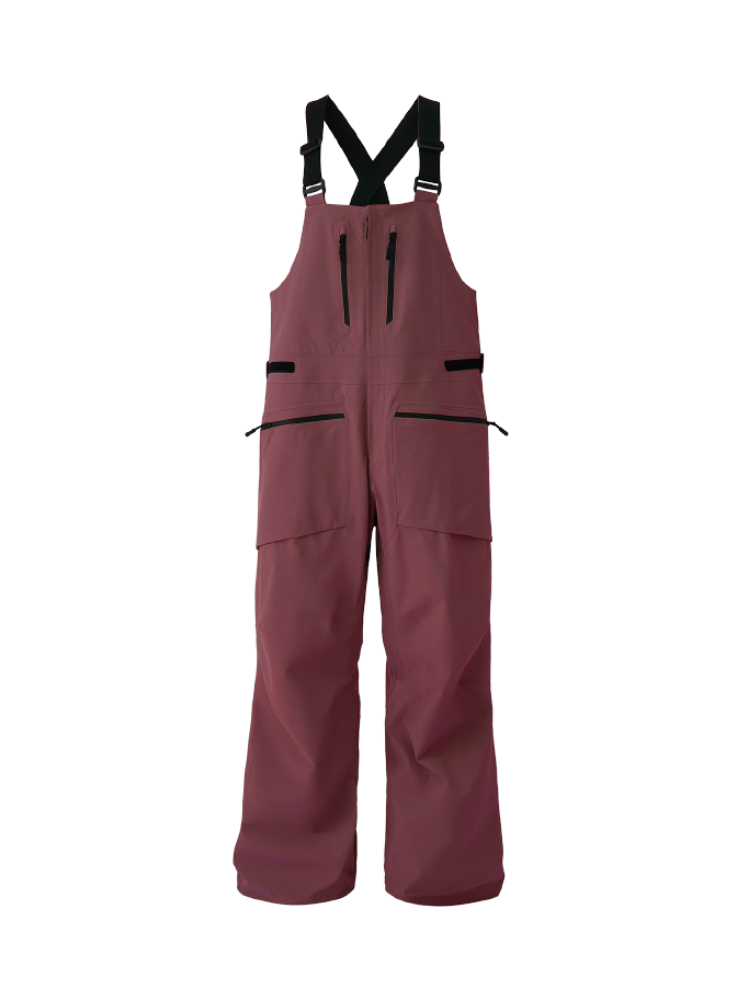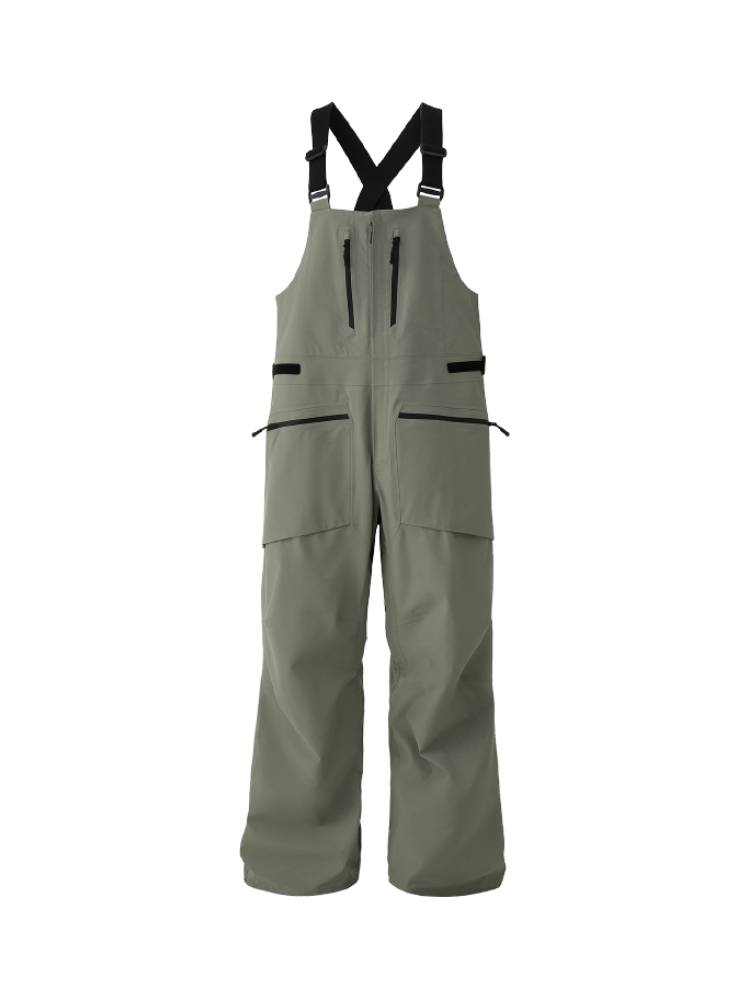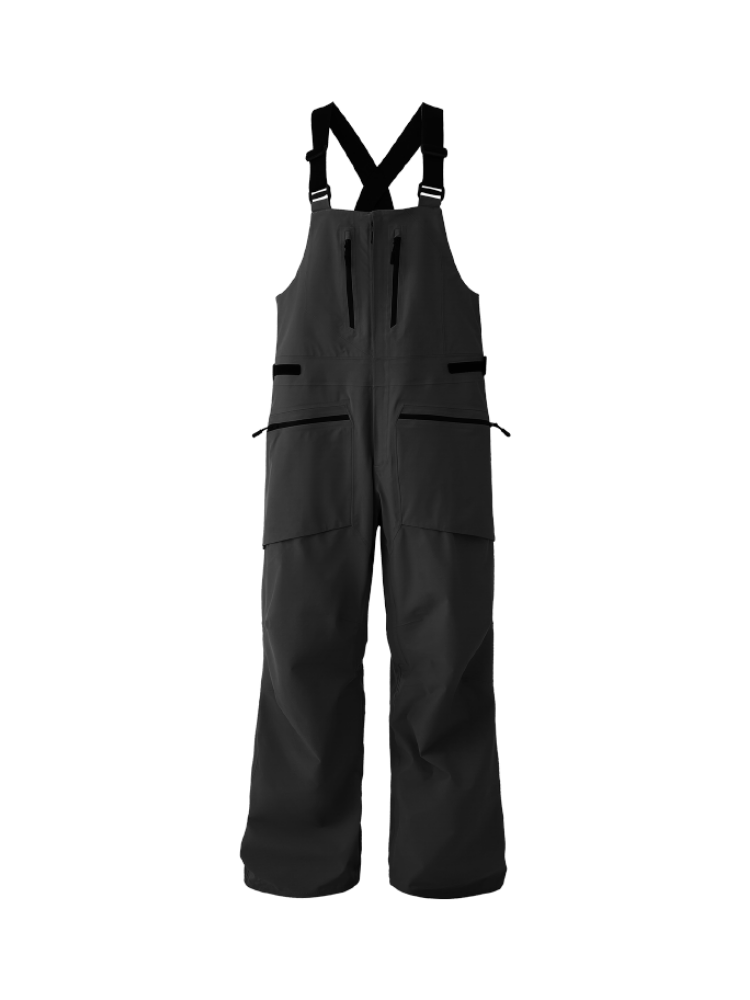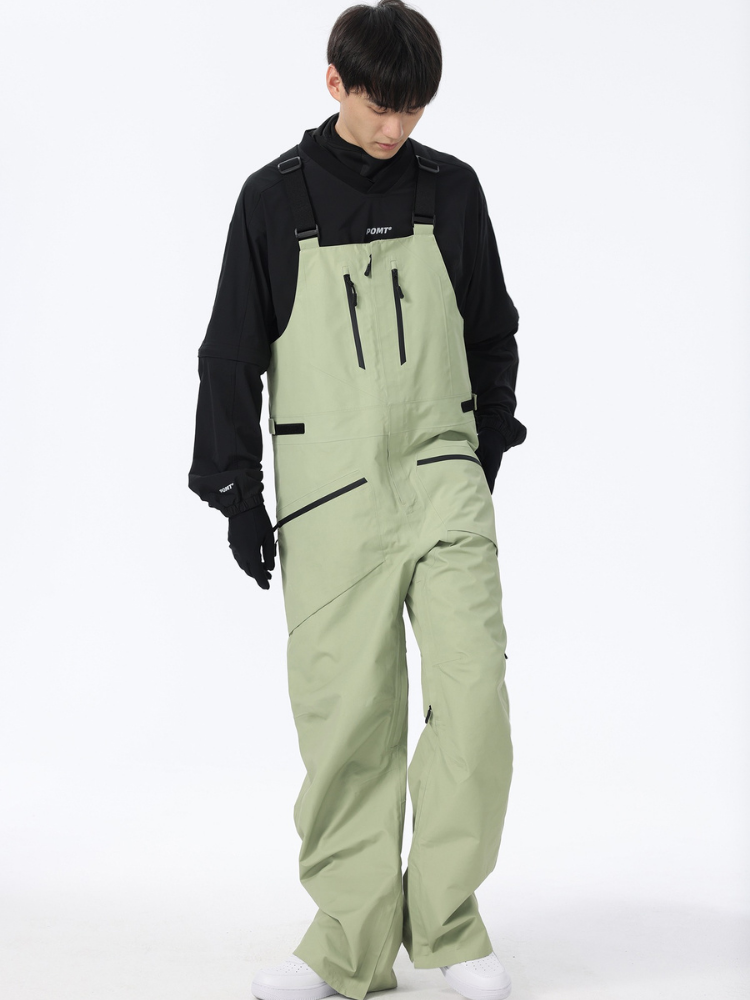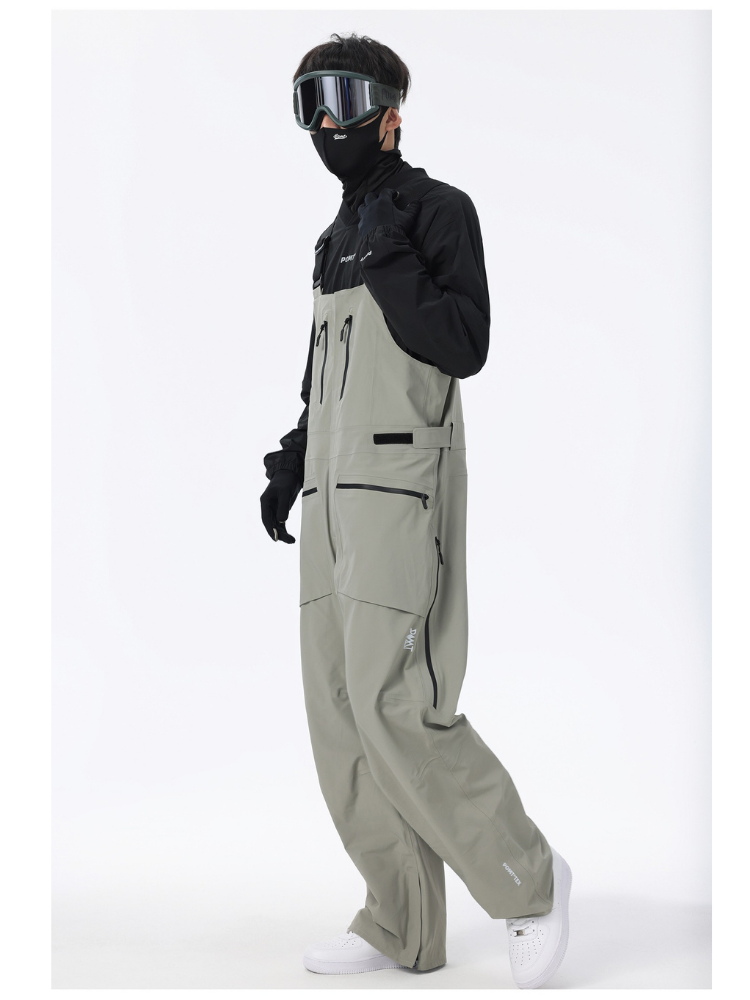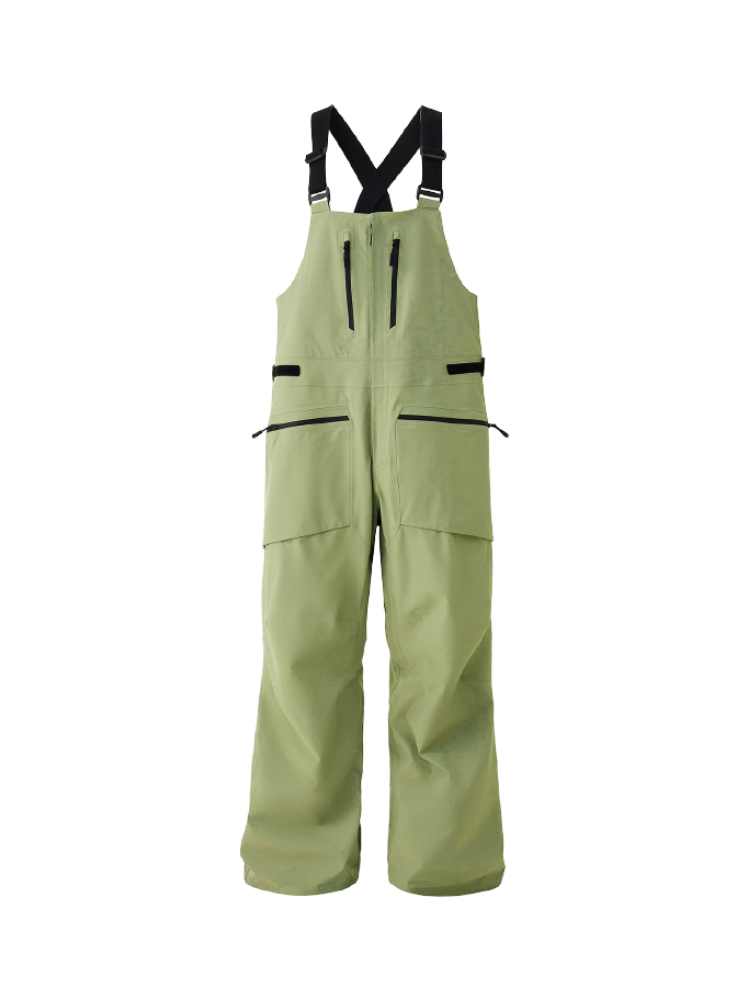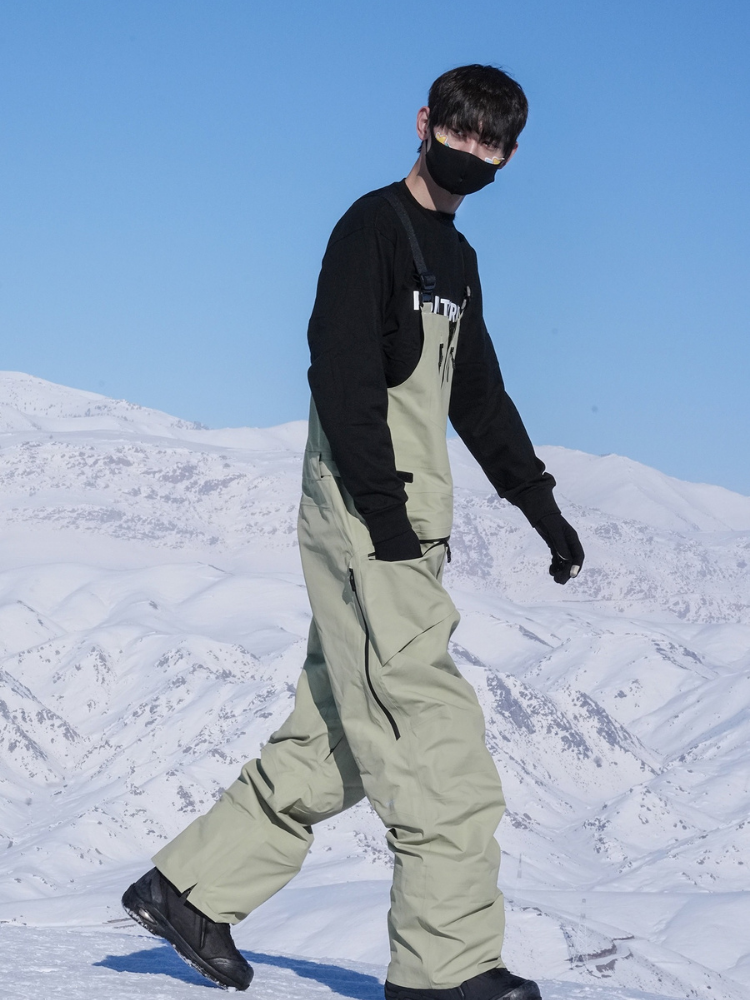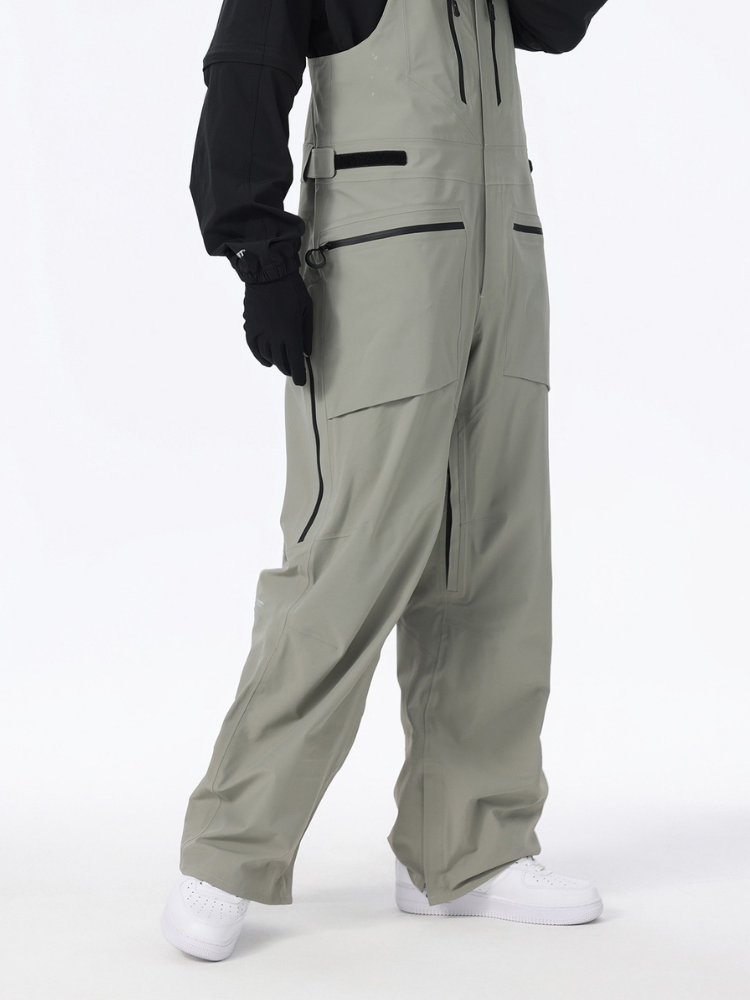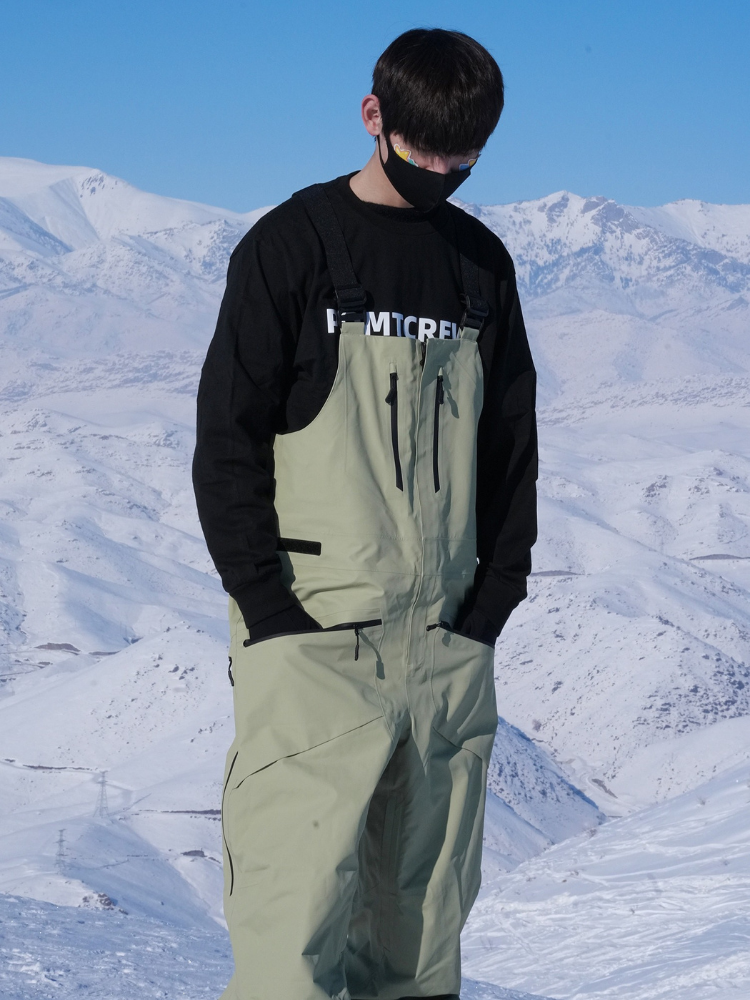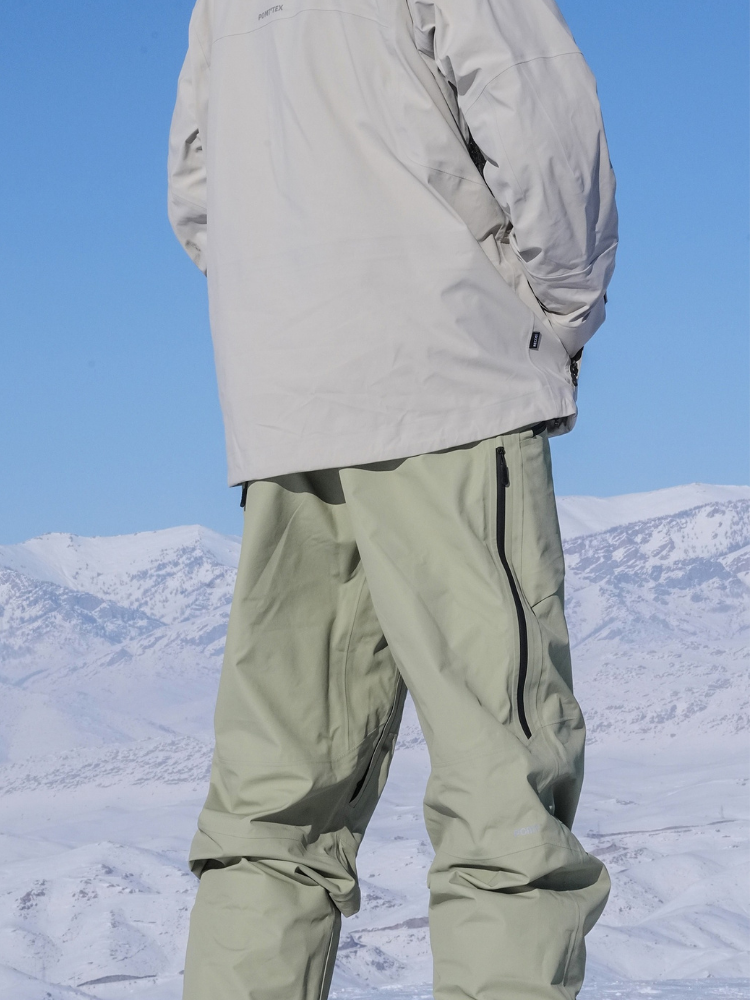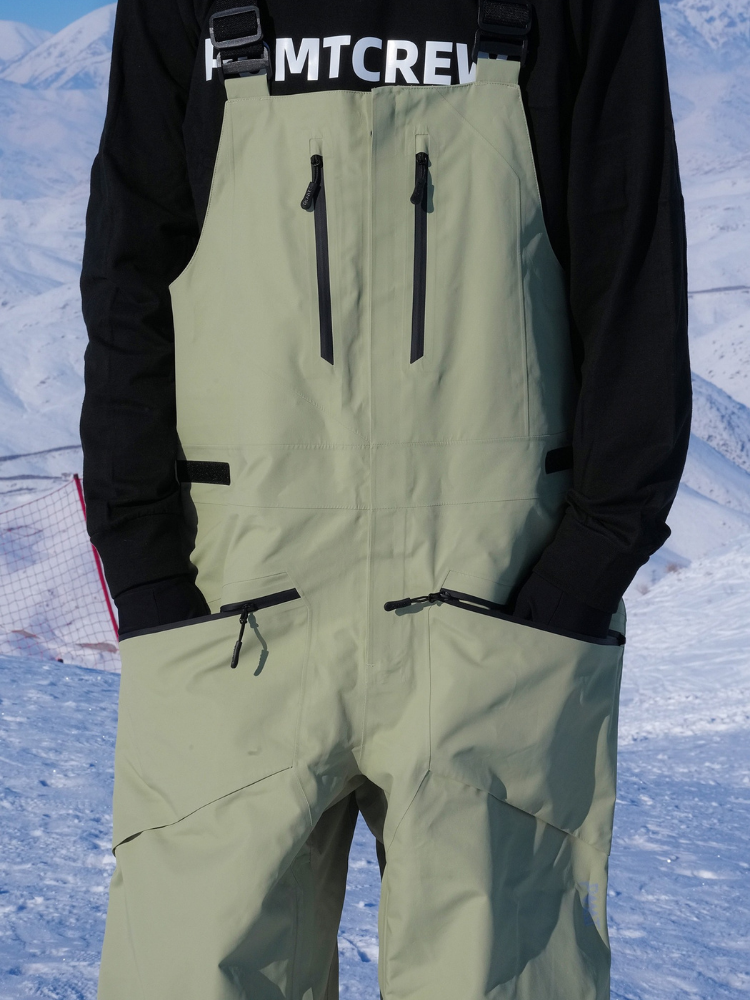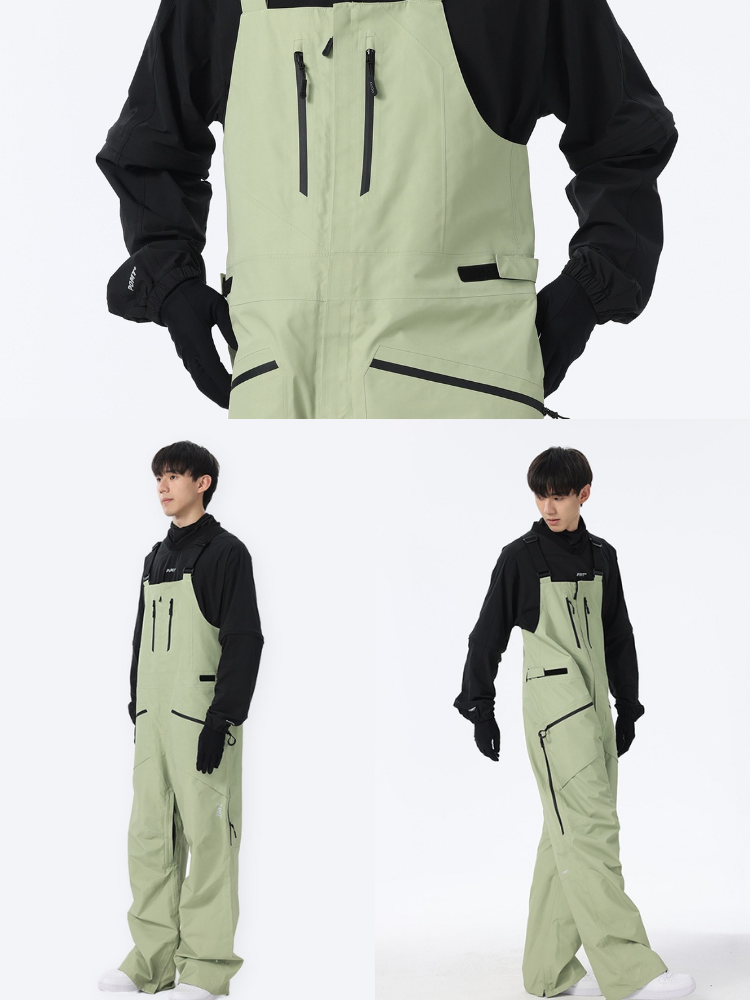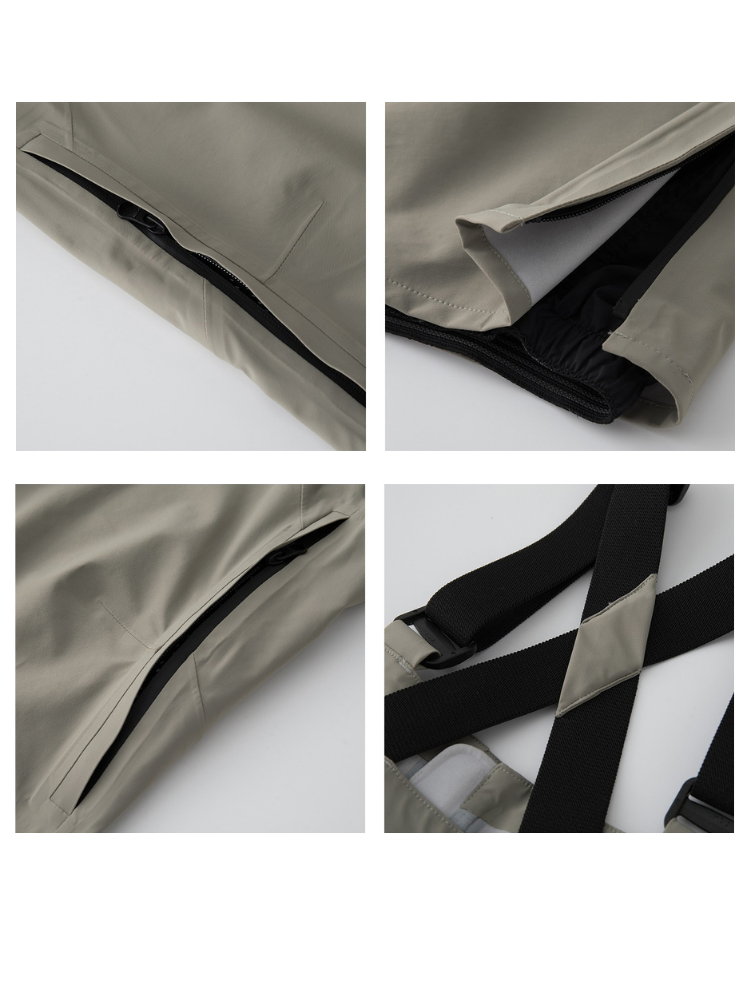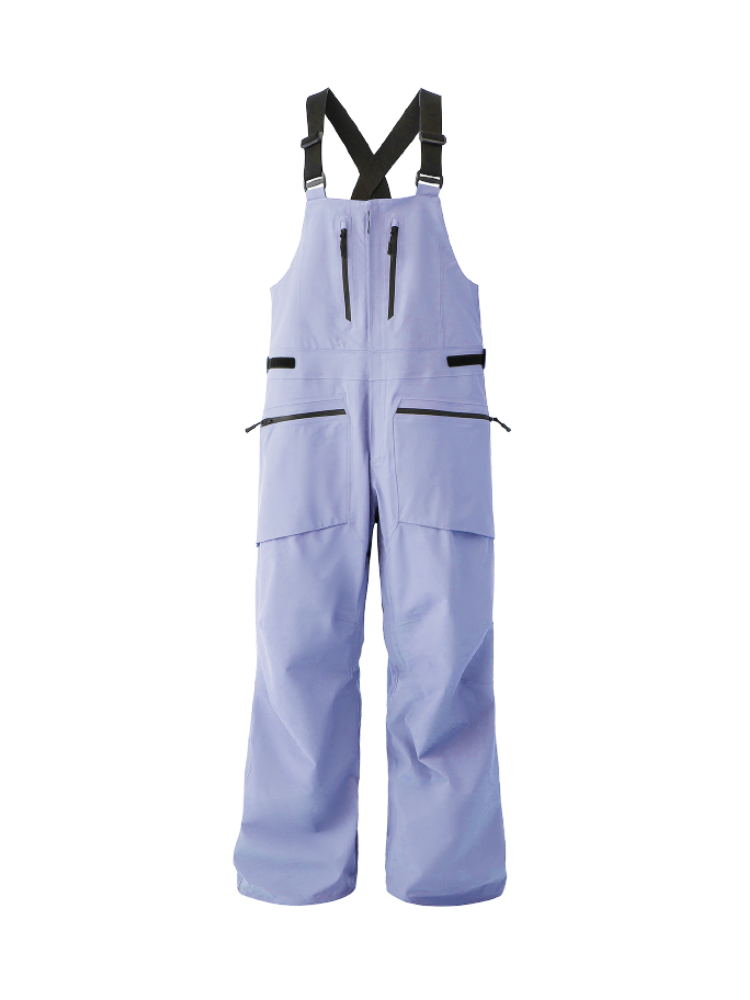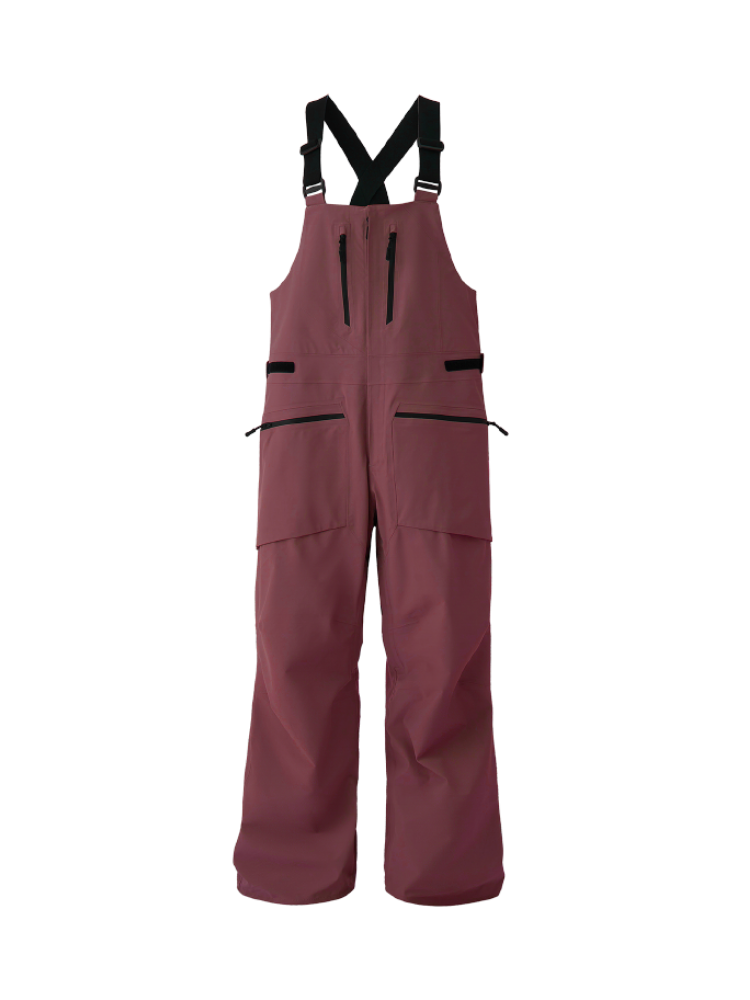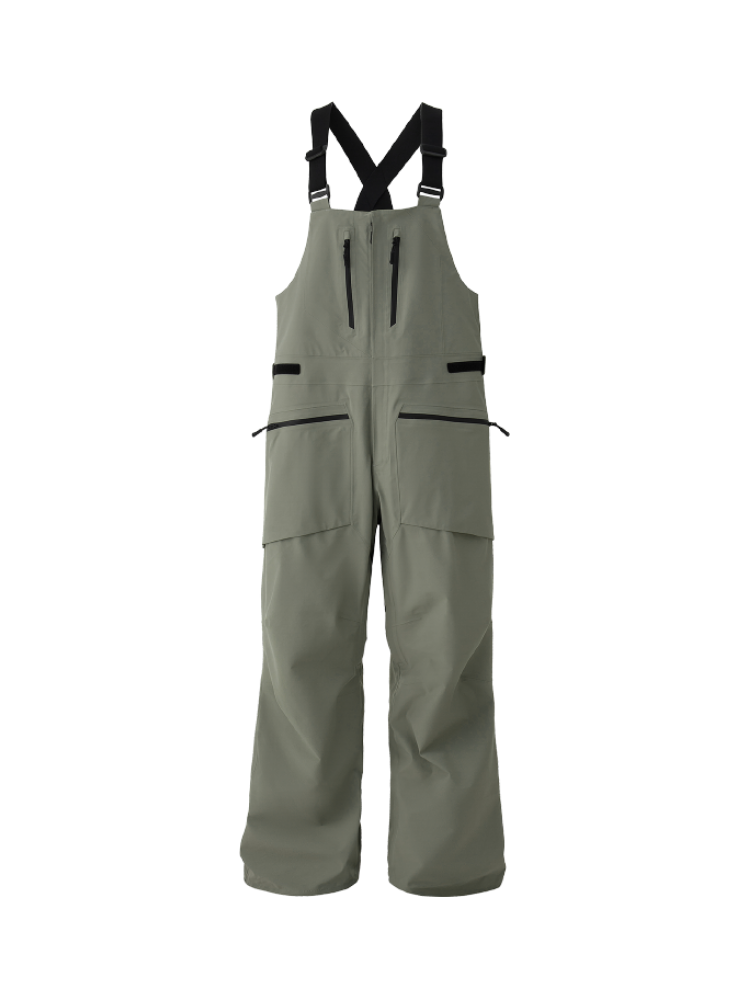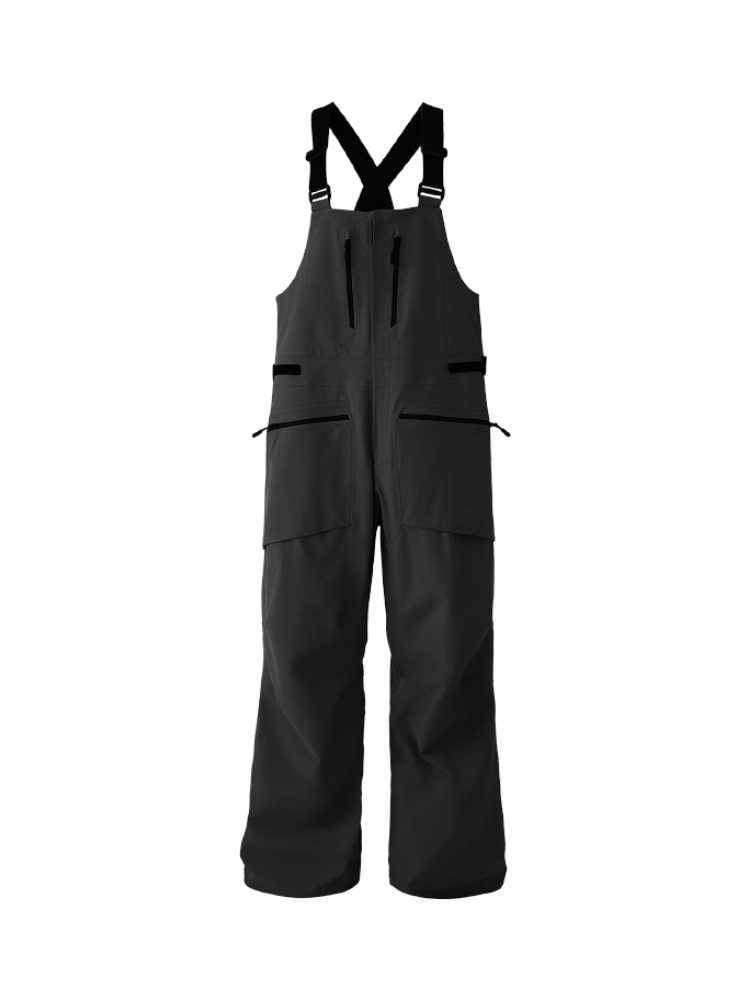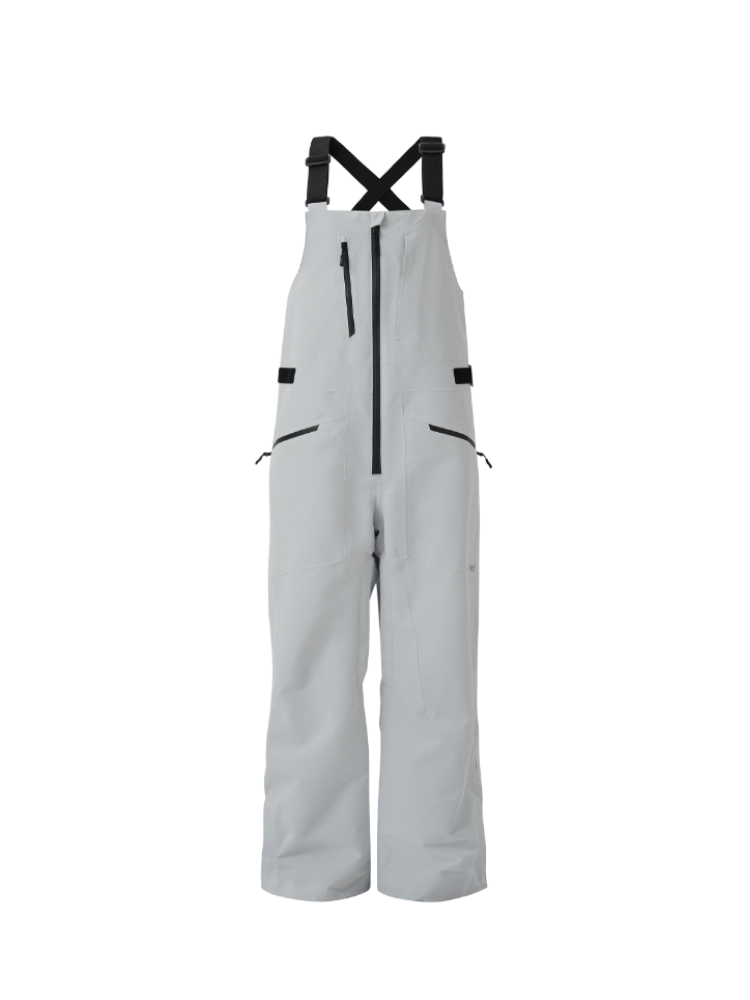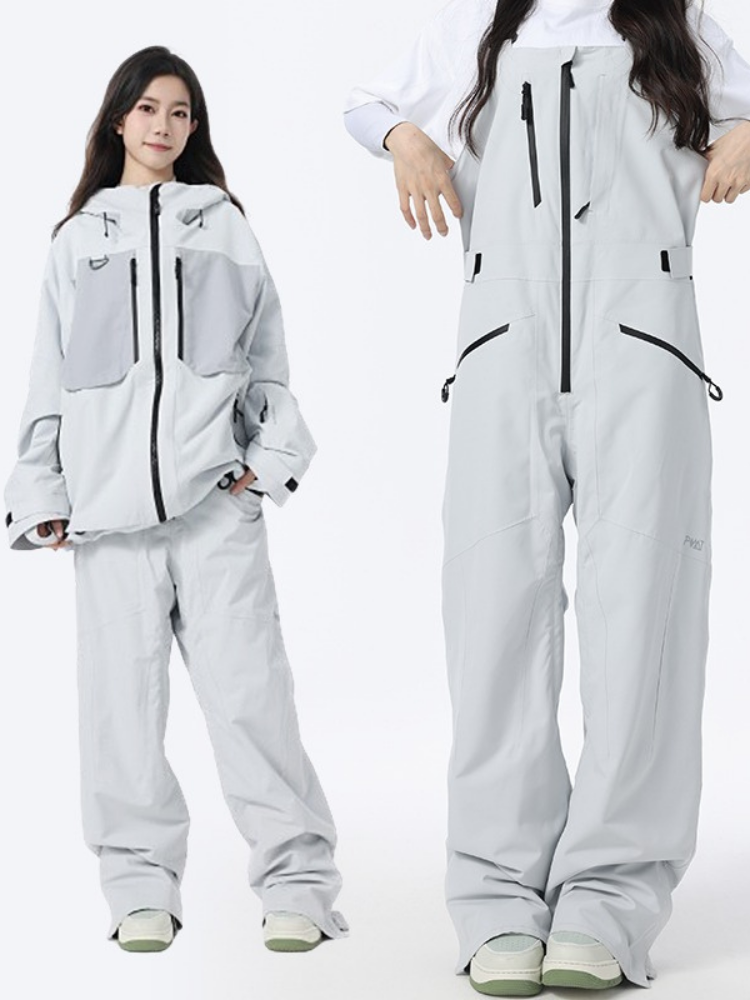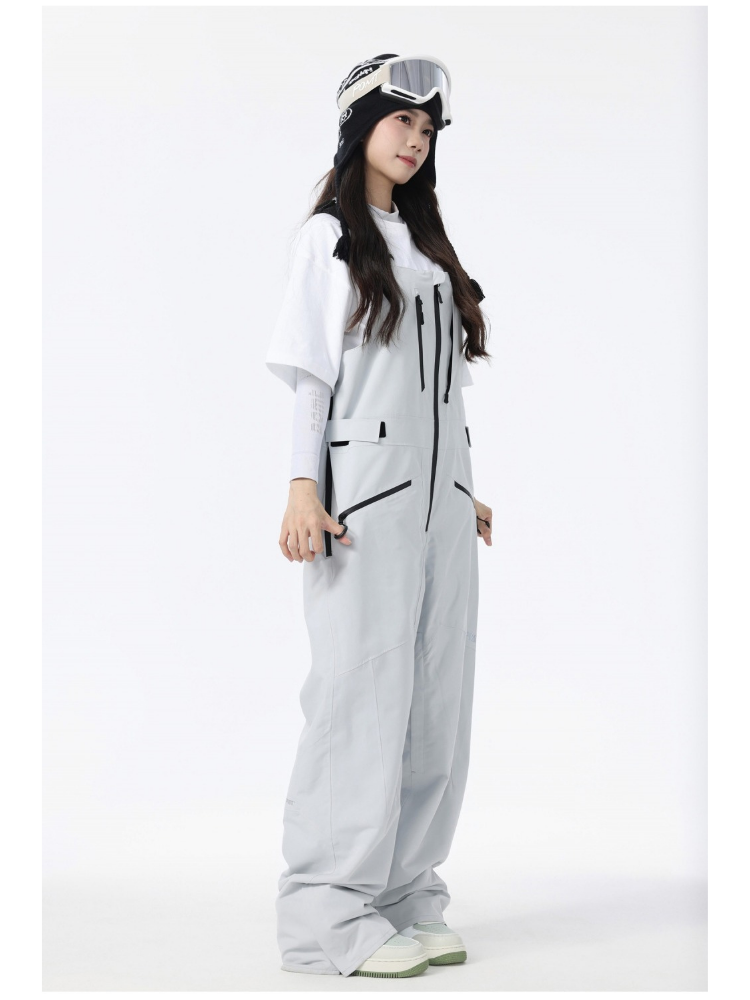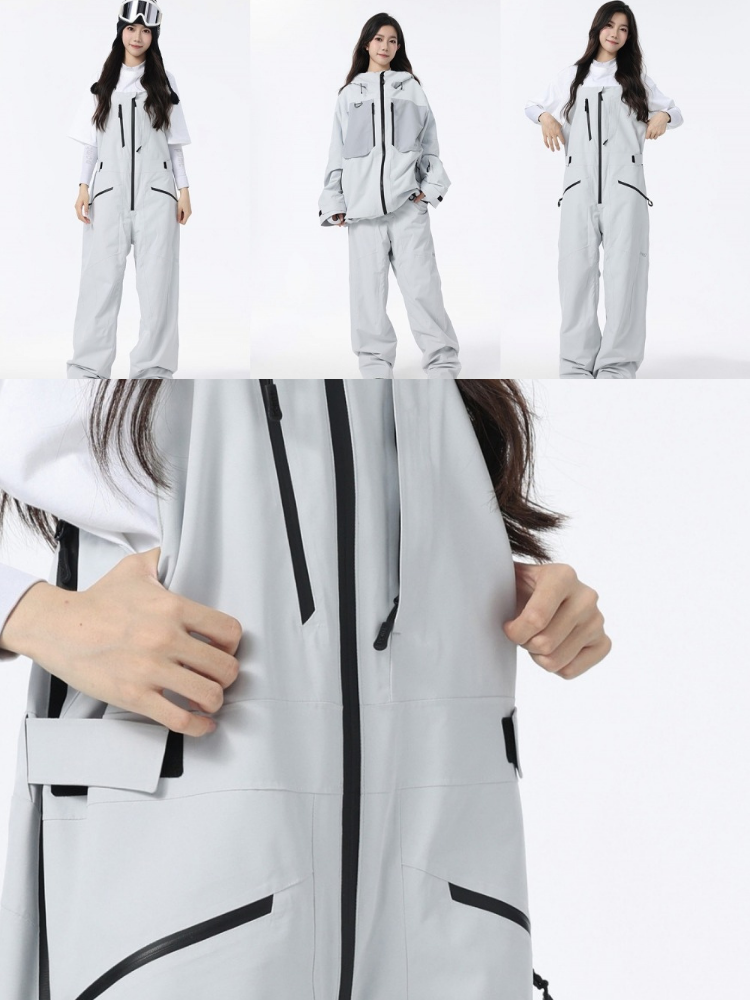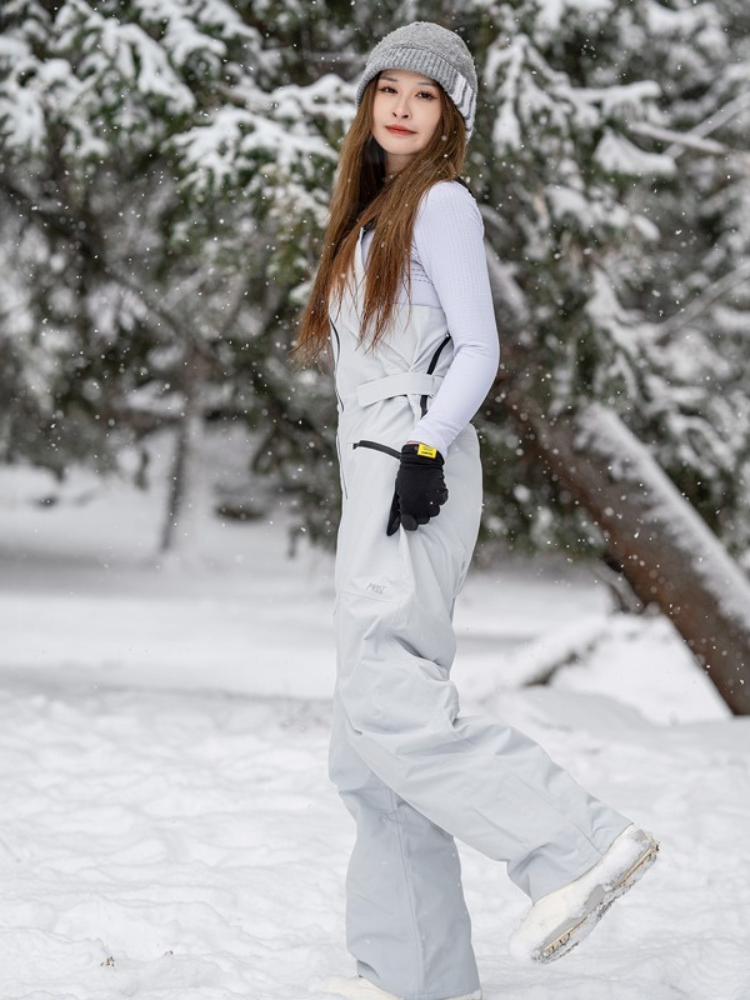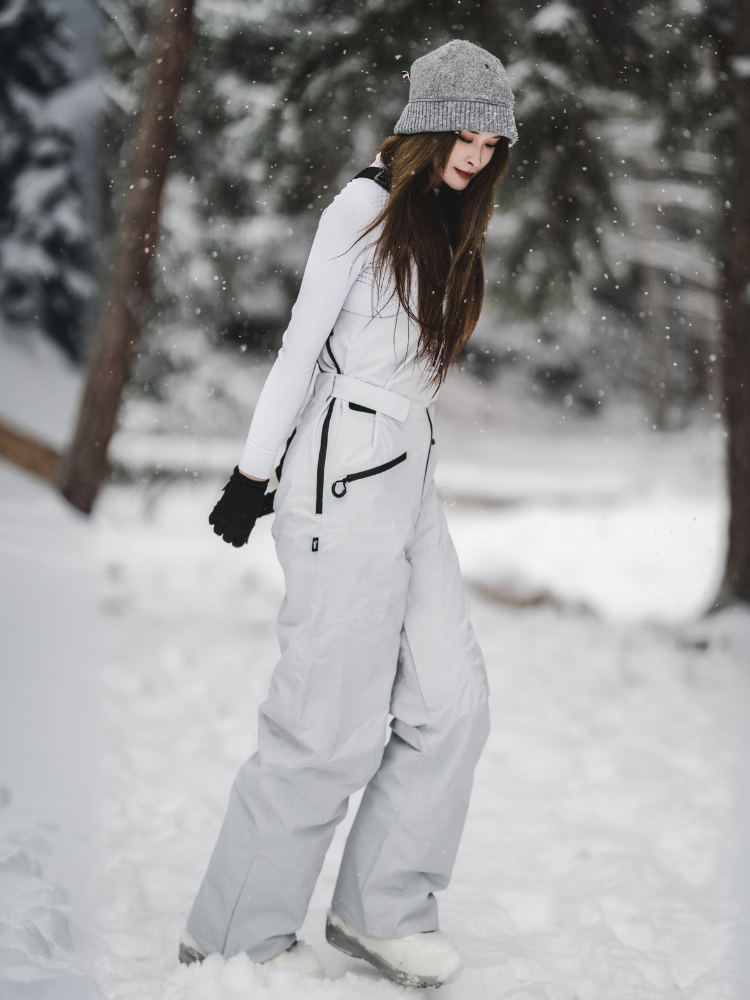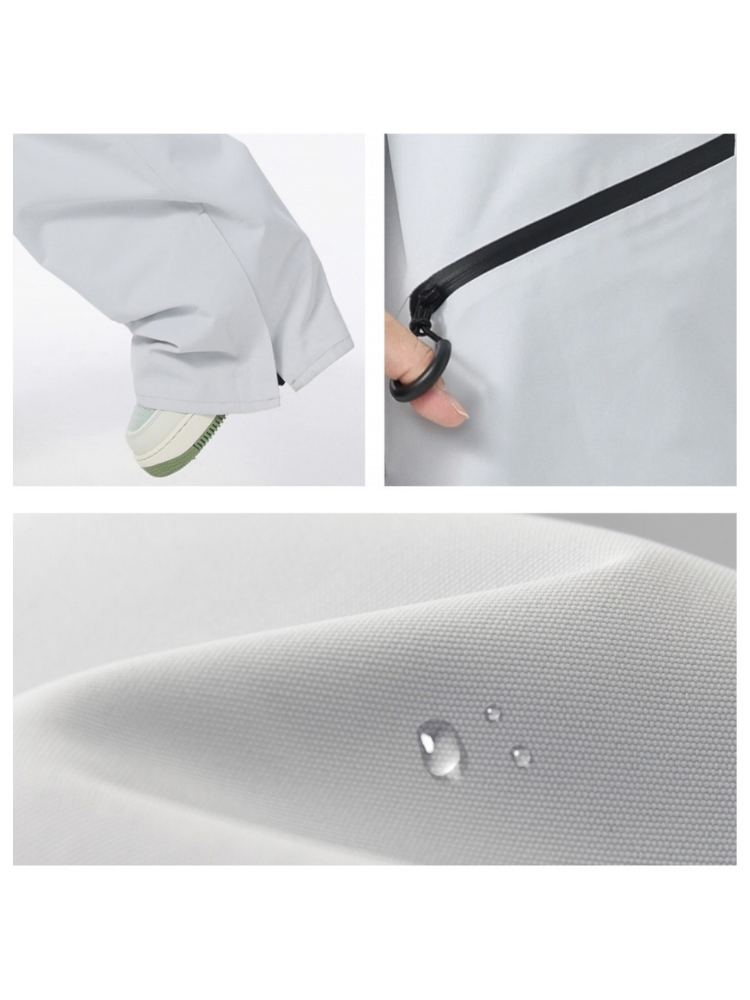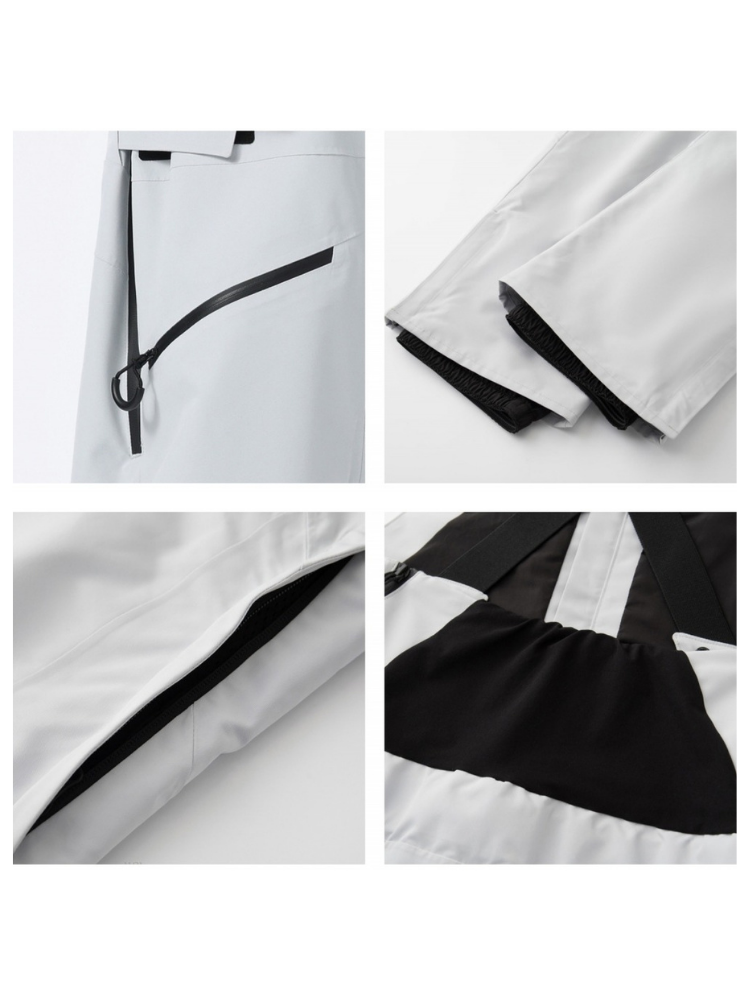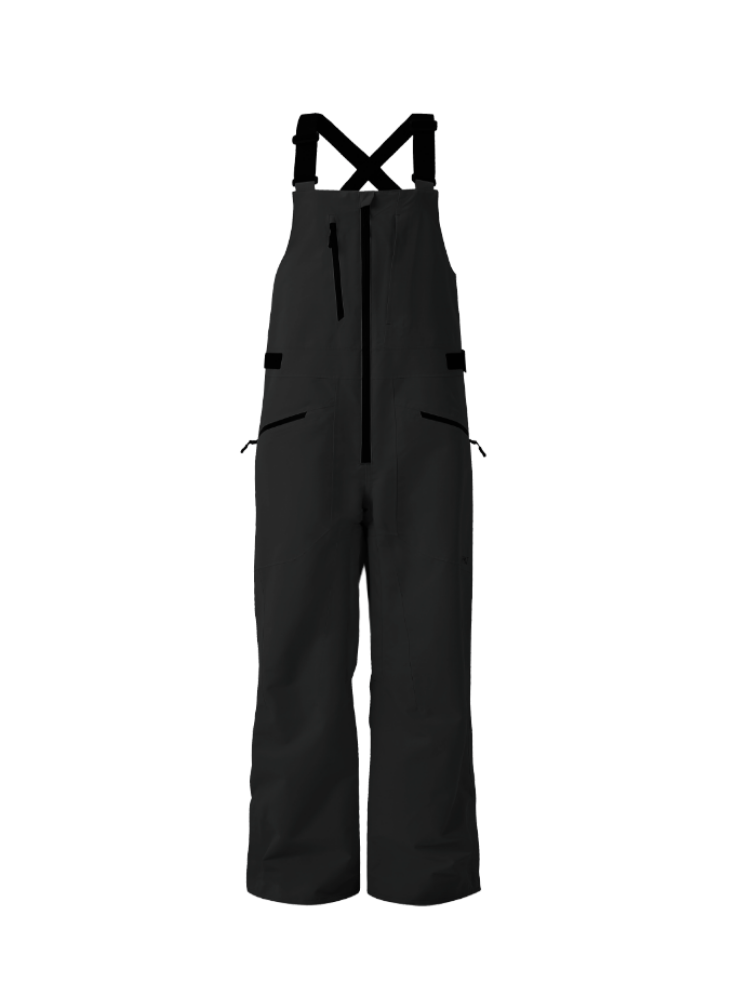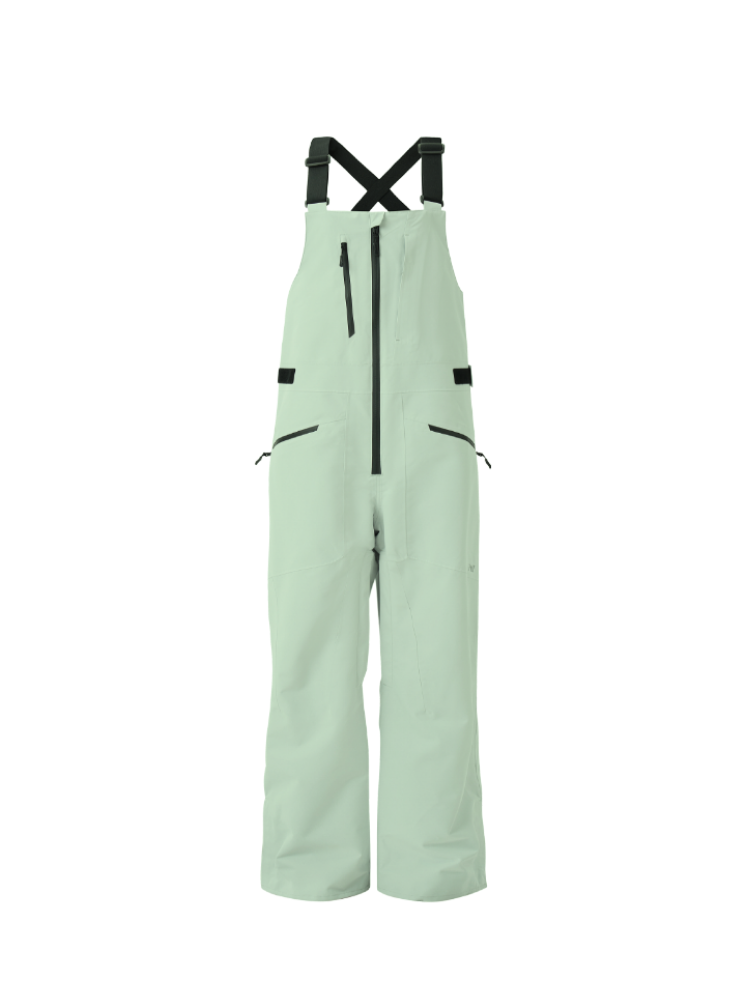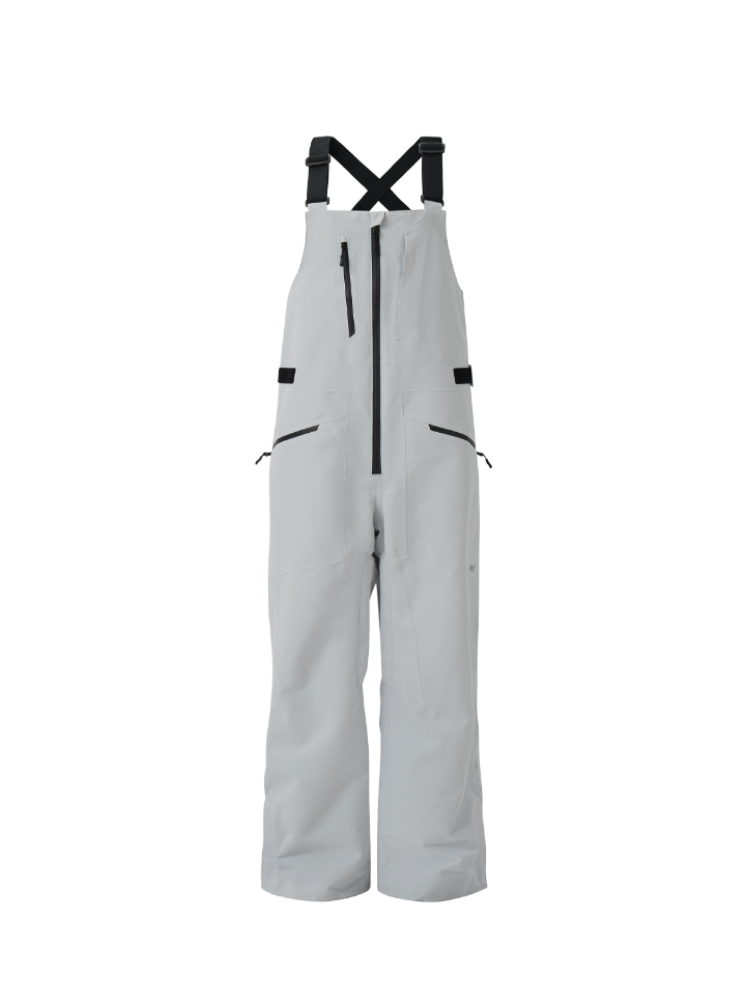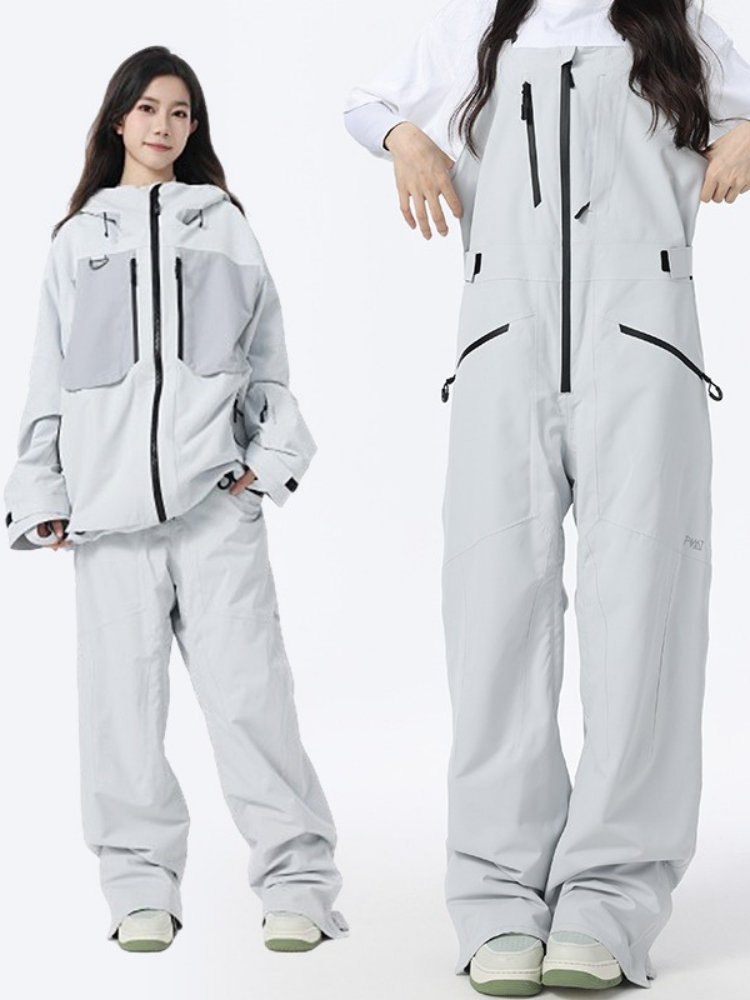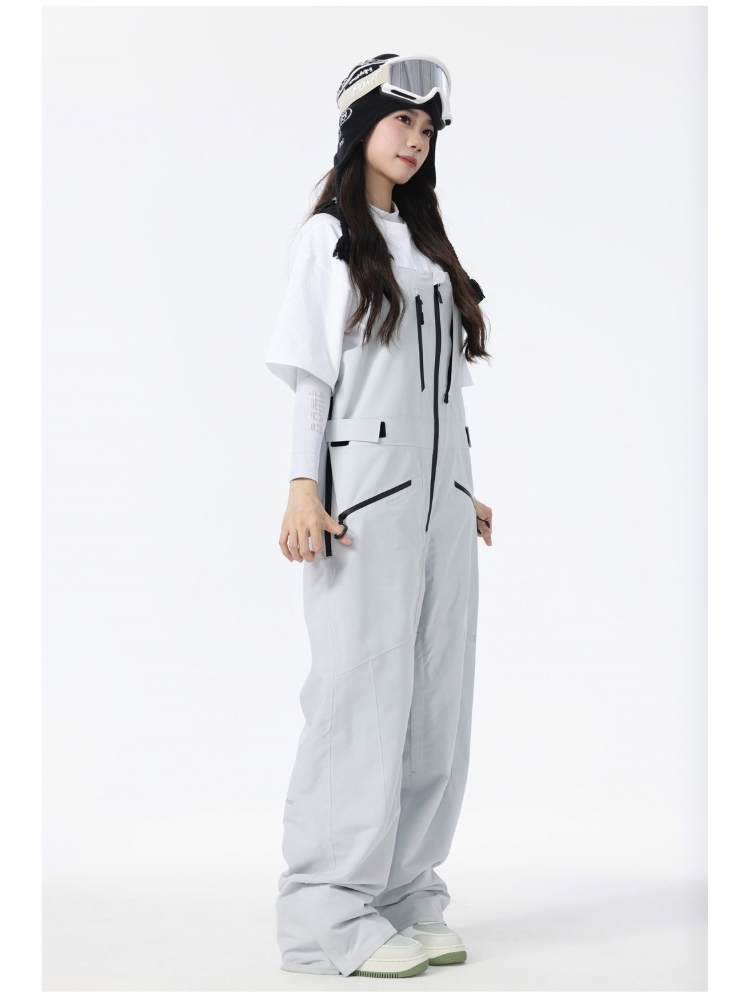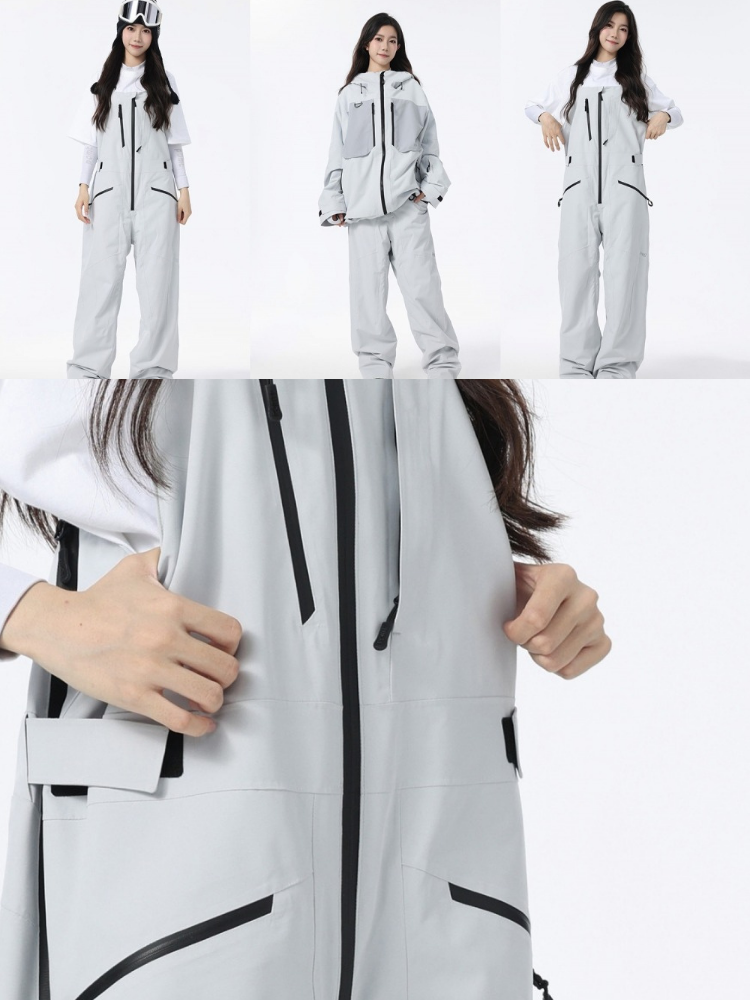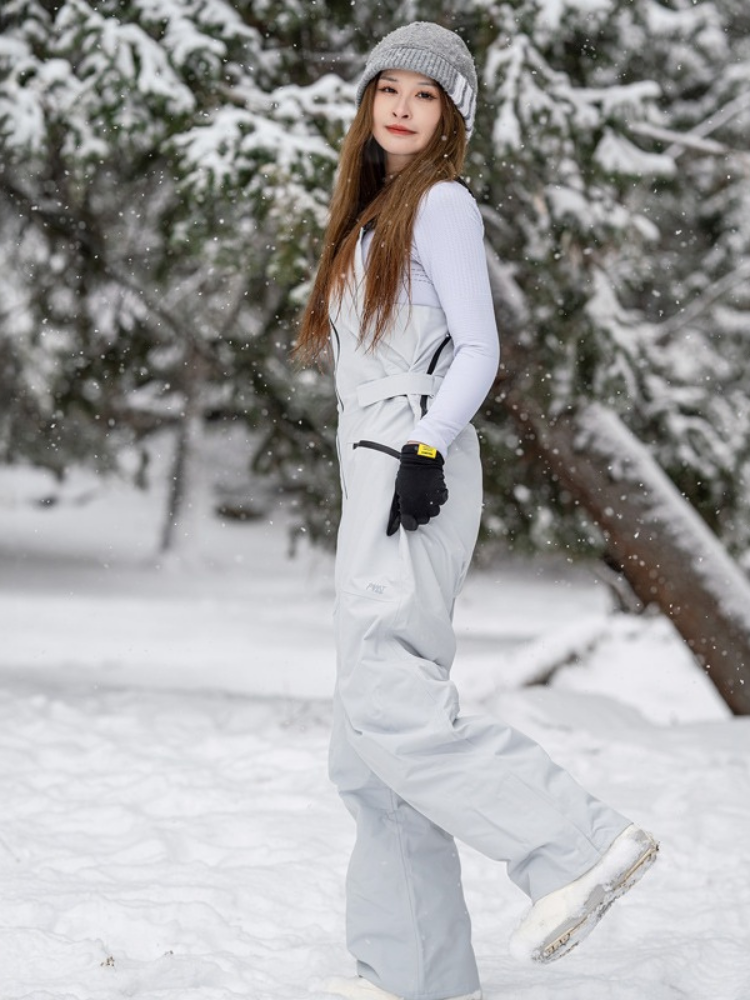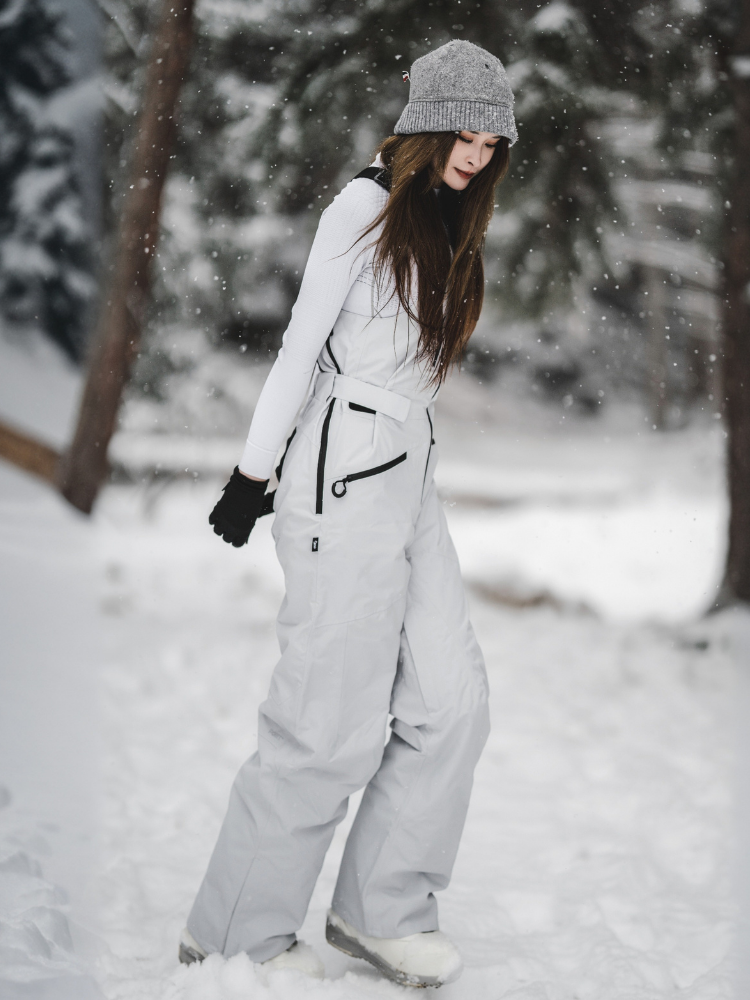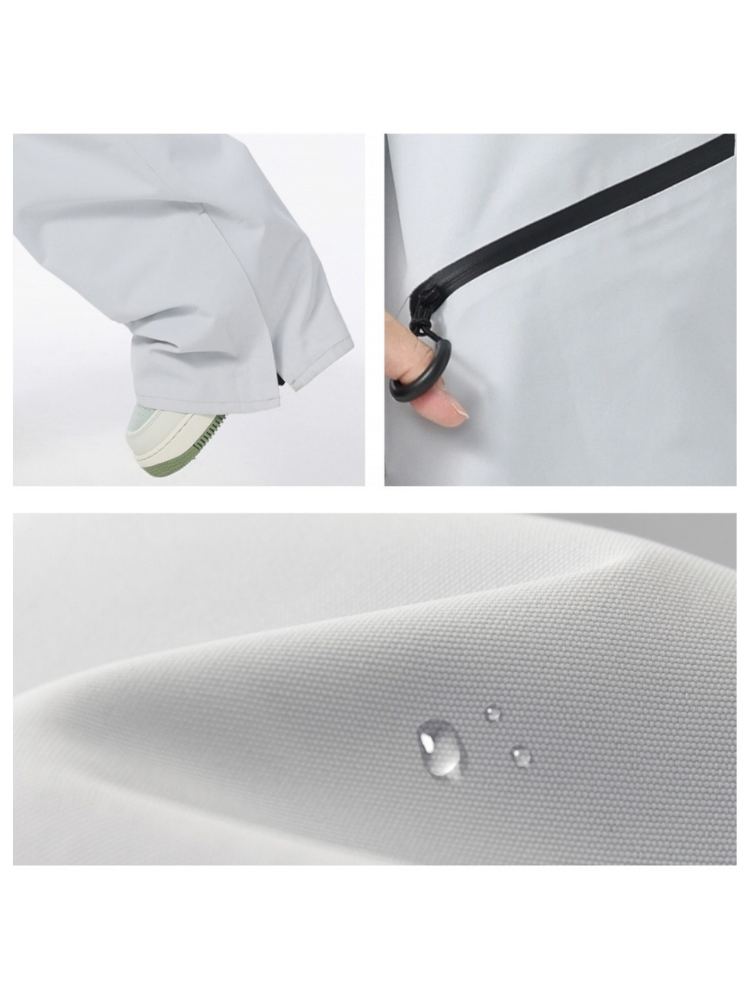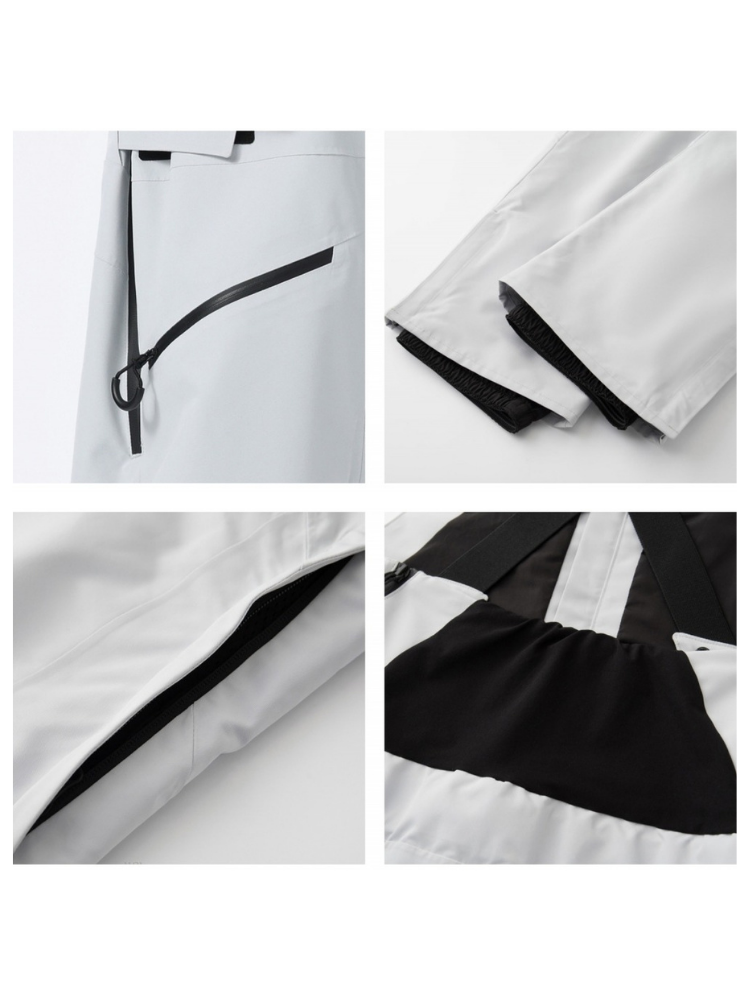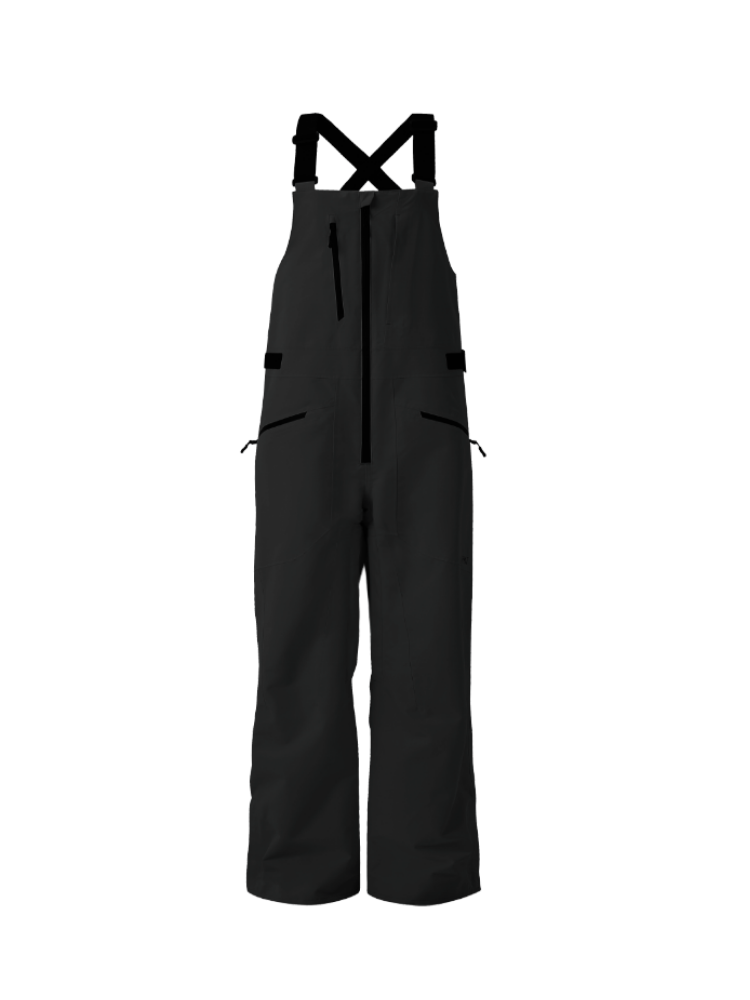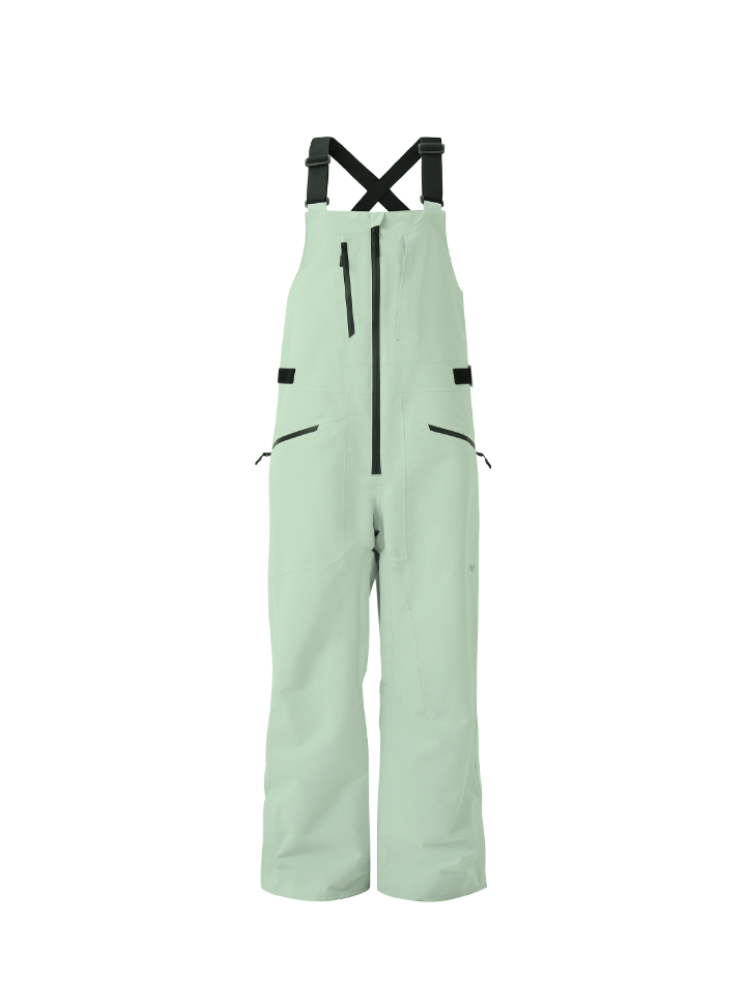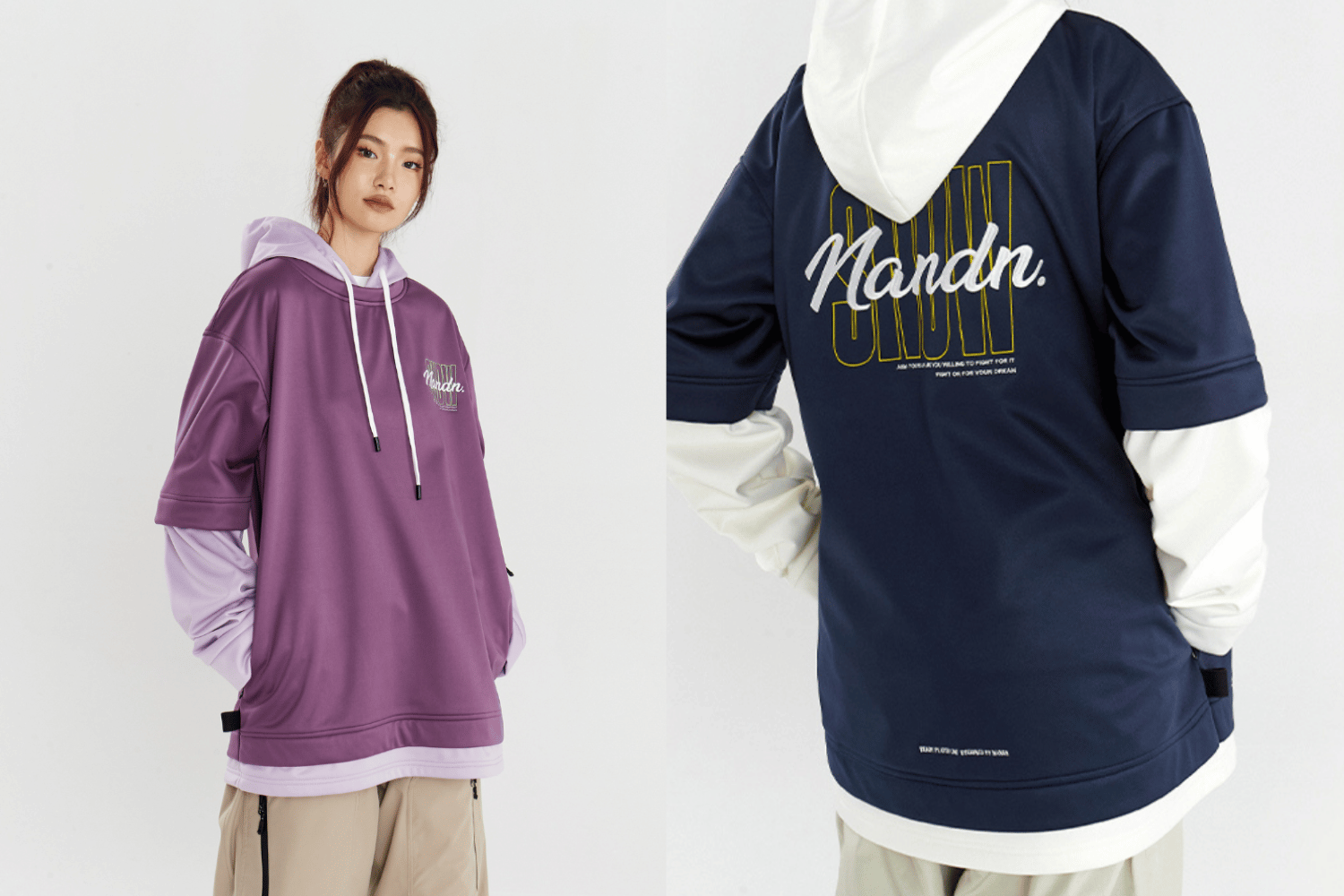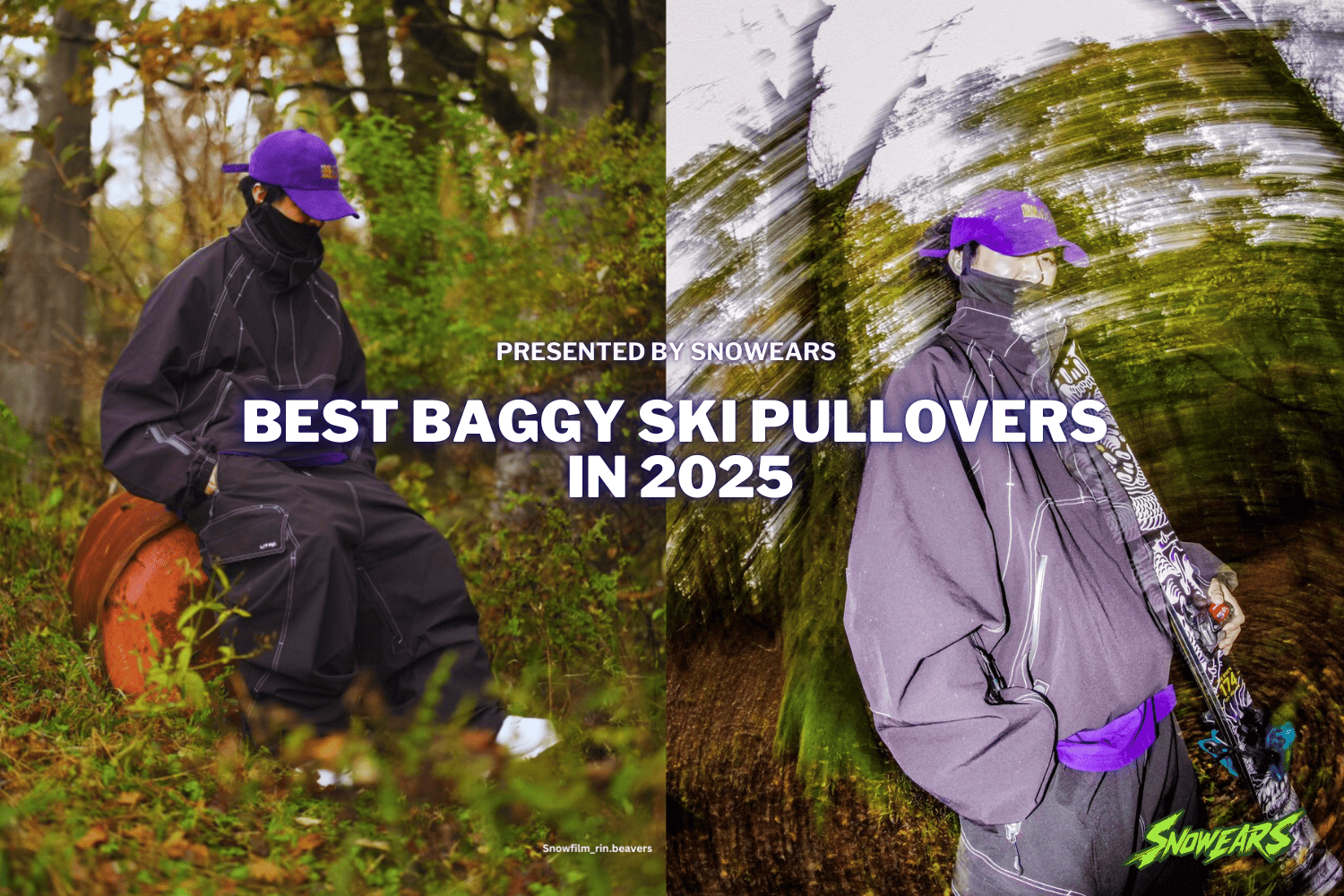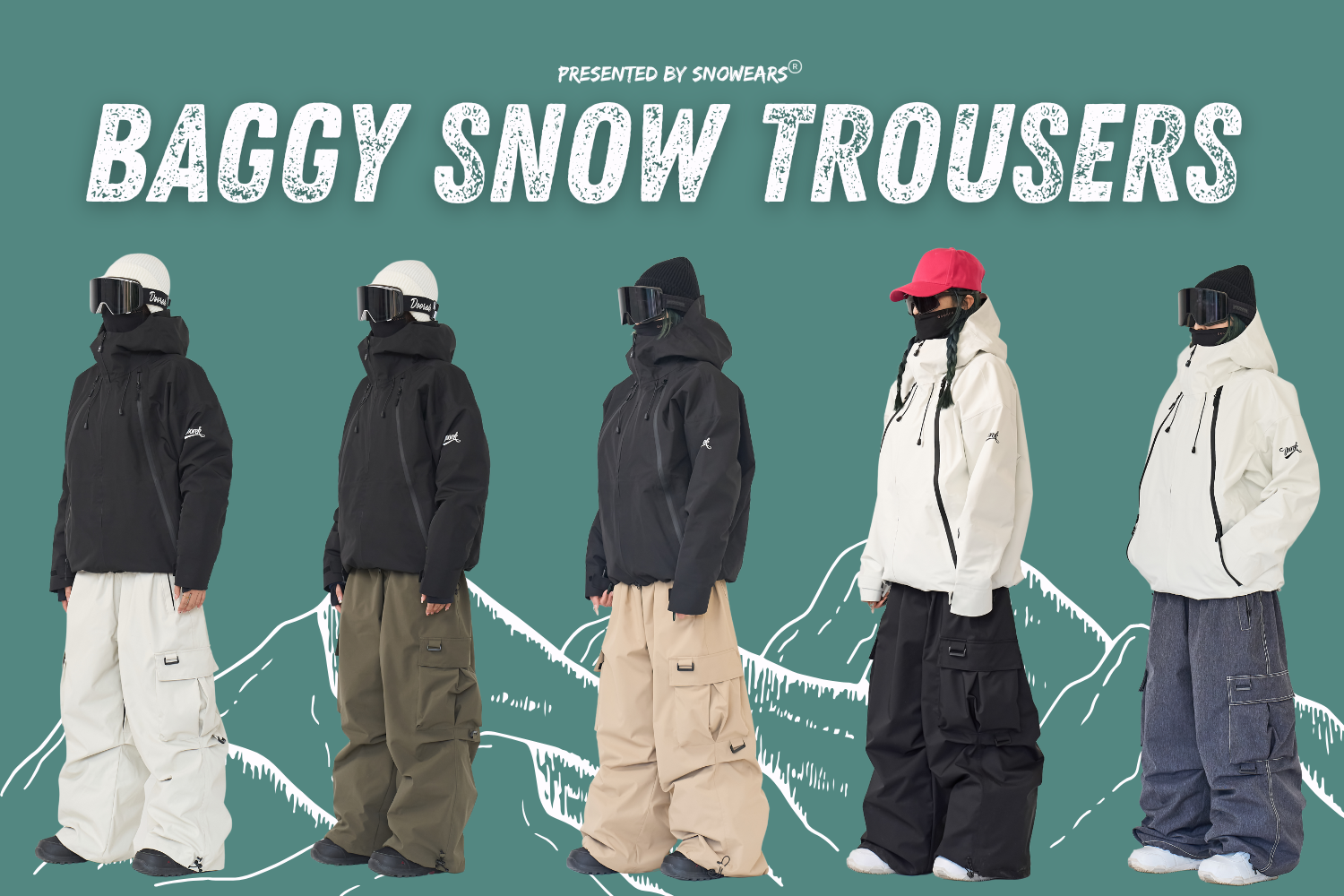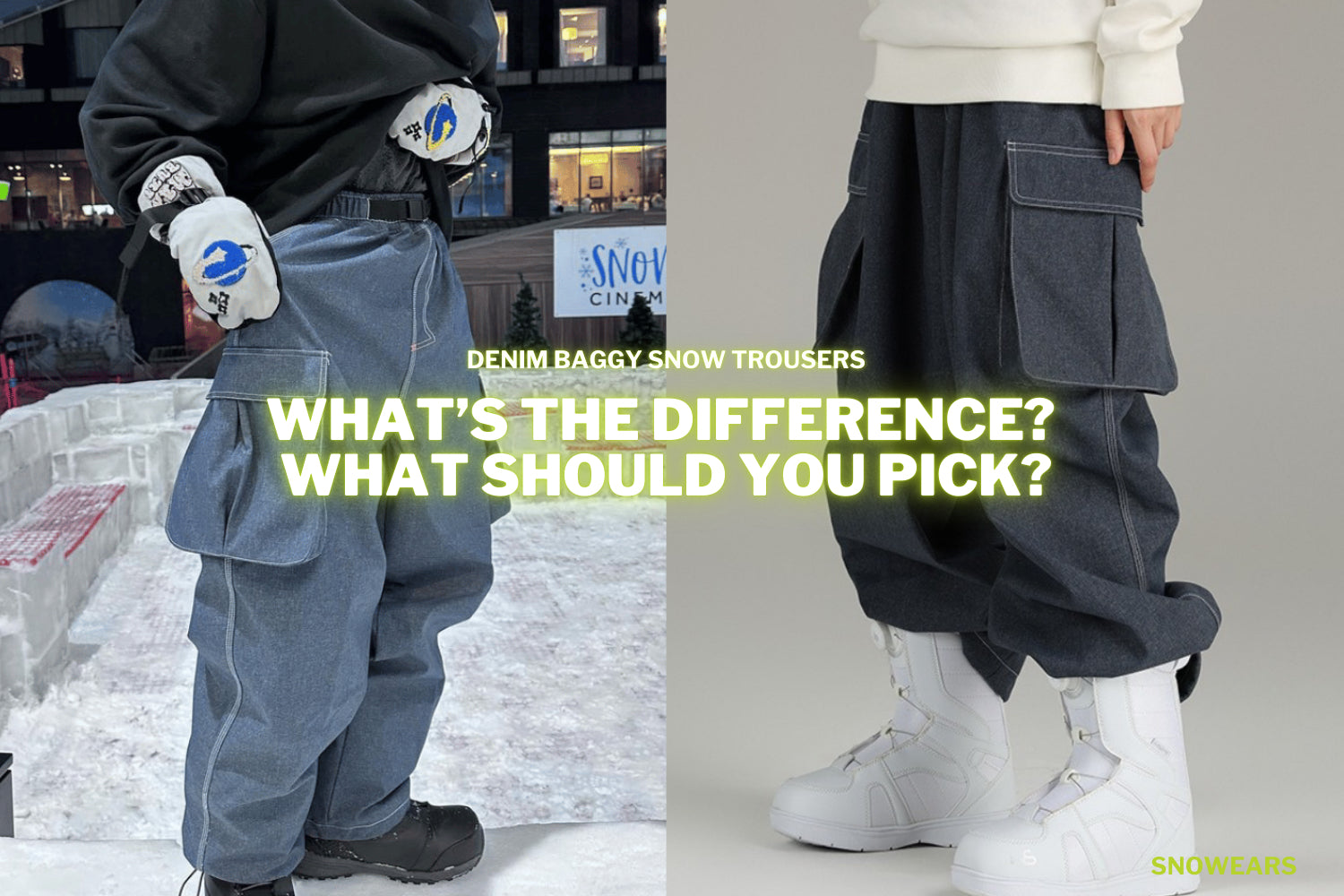Best Men’s Ski Bibs 2025 – Top Picks for Warmth, Comfort & Performance
Cecilia Wong
August 20, 2025
Best Men's Ski Bibs of 2025 | Snowears
Pre-intro
I tested 8 products and found Molocoster Freestyle Fleece-Lined Ski Bibs to be the best men's ski bibs
Intro
I’ve tested enough outerwear to know what separates good gear from the best ski bibs. That’s why you can trust these picks—they’re based on real-world rides, not just specs.
My #1 choice is the Molocoster Freestyle Fleece-Lined Ski Bibs. They deliver the rare combo of warmth, mobility, and durability. On storm days, they seal out snow; on warmer laps, they breathe without slowing you down. In my testing, they outperformed every other option.
But the best men’s ski bibs aren’t one-size-fits-all. Some riders want lightweight freedom, others prioritize insulation, and many are looking for crossover picks that rival the best women’s ski bibs. The right choice depends on how and where you ride.
Read on to find the ski bibs that match your style and conditions.
- Introduction
- Best Overall Men's Ski Bibs
- Best Budget Men's Ski Bibs
- Best Insulated Ski Bibs
- Best Backcountry
- Best Baggy Men's Ski Bibs
- Best Weatherproof
- Most Breathable
- Best Extended & Plus Sizes
- What To Consider When Buying Men's Ski Bibs?
- Conclusion
Table of Content
#1 - Best Overall Men's Ski Bibs
Molocoster Freestyle Fleece-Lined Ski Bibs
The Molocoster Freestyle Fleece-Lined Ski Bibs deliver impressive protection and comfort for skiers who want reliable gear that can handle changing mountain conditions. With a water-resistant shell, fleece-lined interior, and a cut that balances coverage with mobility, these bibs are built for skiers who spend long hours in cold, snowy terrain.
While they run slightly heavier than minimalist touring bibs, their warmth and durability make them a top choice for resort riders and freeride skiers alike.
Pros
- Fleece lining provides cozy warmth without feeling restrictive
- Waterproof and wind-resistant shell keeps snow and slush out
- Adjustable straps and unisex fit for versatile comfort
- Reinforced seams add durability for high-use seasons
Cons
- Slightly heavier than pure touring bibs
- Warm lining may feel too hot in spring conditions
Detailed review
The Molocoster Freestyle Fleece-Lined Ski Bibs are built for skiers who demand dependable coverage in harsh conditions. The waterproof shell blocks out snow, while the fleece interior adds a layer of insulation that keeps you warm on chairlift rides and windy ridgelines.
Adjustable suspenders and a unisex fit make them adaptable for different body types, and reinforced seams help these bibs hold up after repeated use.
Warm, weatherproof, and versatile enough for both resort laps and deep powder days, though not the lightest choice for long uphill tours.
Score: 4.7/5
While they’re not as light or breathable as dedicated touring bibs, the tradeoff comes in the form of all-day warmth and weather protection. For storm days, cold resorts, and powder hunts, these bibs punch above their weight.
If you’re looking for the best men’s ski bibs that balance comfort and durability with real-world performance, the Molocoster stands out as an easy top pick.
#2 - Best Budget Men's Ski Bibs
Searipe Colorblock Snow Bibs
The Searipe Colorblock Snow Bibs are built for skiers and riders who want standout style without sacrificing function. With waterproof-breathable fabric, fleece-lined insulation, and fully adjustable suspenders, these bibs excel at keeping you dry, warm, and comfortable on the hill.
Their colorblock design turns heads in the lift line, while practical features like reinforced cuffs and large pockets deliver everyday usability. The only downside? They run slightly heavy for extended backcountry missions.
Pros
- Bold colorblock design that stands out on the slopes
- Fleece-lined insulation adds comfort and warmth
- Waterproof-breathable construction keeps you dry in deep snow
- Adjustable suspenders and side zips for easy fit and venting
- Reinforced cuffs withstand ski edges and boot rub
Cons
- Slightly heavier than minimalist touring bibs
- A warmer build may run hot in spring conditions
Detailed review
Searipe’s Colorblock Bibs aren’t just about style—they deliver the performance to back it up. The waterproof-breathable shell holds its own in storm conditions, while fleece lining keeps you warm on lift rides and during powder days.
Adjustable suspenders and side zips help you fine-tune the fit and dump heat when the sun comes out. Pockets are spacious and well-placed, making it easy to stash gloves, snacks, or a pass without slowing down.
Eye-catching style meets dependable mountain performance. Great for resort laps and powder days, but a bit warm for long uphill tours.
Score: 4.6/5
Durability is solid thanks to reinforced cuffs that protect against ski edges and boot wear. While the bibs perform well across most resort conditions, they can feel a little heavy and warm if you’re skinning uphill or riding during late-season slush.
For skiers who prioritize comfort, warmth, and standout style inbounds, these bibs are a strong contender—and easily one of the best options in their class.
#3 - Best Insulated Ski Bibs
NANEND Pro 3L Fleece Ski Bib Pants
The NANEND Pro 3L Fleece Ski Bib Pants combine a waterproof 3-layer shell with a cozy fleece lining for protection and comfort in harsh conditions. Reinforced cuffs and smart pocketing add durability and function, while full-length zips handle venting. Their only weakness? They’re slightly heavy for uphill missions.
Pros
- 3L waterproof shell + fleece lining
- Full-length side zips for venting
- Durable reinforced cuffs
- Comfortable, warm fit
Cons
- Runs hot in mild weather
- Heavier than minimalist shells
Detailed review
The NANEND Pro 3L Fleece Ski Bib Pants strike a rare balance between technical performance and cozy comfort. The 3-layer shell keeps out snow, sleet, and wind with ease, while the fleece lining makes them feel less like armor and more like a trusted winter layer.
That combination is ideal for skiers who split time between storm laps inbounds and the occasional backcountry push. Full-length zippers are a thoughtful inclusion, making it easy to vent heat on the skin track or slip the bibs on and off without removing boots.
Pockets are large and well-placed, with enough storage for snacks, tools, or a pass. Reinforced kick panels guard against edge cuts, extending their lifespan season after season.
Weatherproof, fleece-lined comfort that thrives in storms and resort laps. Runs a little warm for spring tours.
Score: 4.6/5
While they excel in harsh weather, these bibs do run warm in late-season or uphill-intensive days. They’re better suited to resort riders and storm chasers than weight-conscious backcountry minimalists.
But if you want bibs that protect like a shell, feel like fleece, and last through heavy use, the NANEND Pro 3L are one of the best options out there.
#4 - Best Backcountry
Outdoor Research Hemispheres II GORE-TEX Bibs
The Outdoor Research Hemispheres II GORE-TEX Bibs are built with backcountry skiers in mind. Featuring GORE-TEX waterproofing and innovative stretch panels, they combine reliable weather protection with impressive freedom of movement.
These bibs excel on skin tracks, sled laps, and stormy descents, but the narrow fit and streamlined pocket layout make them less versatile for all-day resort riders.

Pros
- Exceptional mobility from integrated stretch panels
- Full GORE-TEX protection with sealed seams
- Smart side zips double as vents and a drop seat
Cons
- Slim fit may not work for all body types
- Fewer storage pockets than some competitors
Detailed review
Outdoor Research designed the Hemispheres II GORE-TEX Bibs for skiers who prioritize efficiency in the backcountry. Stretch panels in the lower back and thighs make these bibs far more flexible than typical hardshells, allowing for natural movement when skinning or bootpacking.
Despite this added mobility, they remain fully waterproof thanks to GORE-TEX fabric, taped seams, and weather-sealed zippers. Side zips run from waist to knee, venting heat on the climb and converting to a drop seat when needed.
Outstanding mobility and storm protection for long backcountry tours, but a slim fit and limited storage won’t suit everyone.
Score: 4/5
Storage is simplified, with four total pockets including a secure beacon pocket near the chest. While useful, the slim cut and smaller compartments won’t accommodate as much gear as other options.
Durability is solid, with testers reporting minimal wear even after heavy use compared to lighter competitors. For backcountry skiers who want reliable weather protection without sacrificing mobility, the Hemispheres II are a standout choice.
#5 - Best Baggy Men's Ski Bibs
Stio Men’s Figment Bib
The Stio Men’s Figment Bib is built for freestyle and freeride skiers who want a loose, stylish fit without sacrificing toughness. With a high-rise entry zipper, drop-seat system, and recycled 3-layer shell, it’s versatile and durable for resort laps. Still, the off-center waist strap and oversized cut limit its comfort for some skiers.

Pros
- Burly 3-layer recycled fabric with PFAS-free DWR
- High-rise center zipper and rear drop seat for convenience
- Five functional pockets, including a large chest pocket
Cons
- Runs large, even for a freeride fit
- Chest pocket design limits storage space
- An off-center waist strap can cause fabric bunching
Detailed review
Stio’s Figment Bibs combine a relaxed fit with serious construction. The 3-layer recycled polyester shell shrugs off wear, while taped seams, gaiters, and kick patches keep snow and abrasion at bay.
Venting is effective with inner leg zips that run knee to the groin, making them manageable on warmer days. Pocket layout is practical, with two thigh pockets, two hand pockets, and a chest pocket, though the center zipper eats into torso storage.
Durable, warm, and freeride-ready, though the fit runs large and the waist strap can shift.
Score: 3.8/5
Fit is where opinions split. The freeride cut runs big, and the off-center waist strap can pull fabric awkwardly for slimmer builds. Weight comes in heavier than backcountry-oriented bibs, so breathability lags behind lighter competitors.
That said, in cold, stormy resort conditions, the Figment thrives. They’re tough, comfortable for long laps, and stylish enough to last multiple seasons.
#6 - Best Weatherproof
POMT 3L Dope Bibs
The POMT 3L Dope Bibs combine 3-layer waterproofing, taped seams, and reinforced cuffs with a modern, baggy fit. Built for storm skiing and park laps, they balance durability and comfort while turning heads with bold freeride style. A bit heavy for uphill missions, but unbeatable for inbounds riders.
Pros
- Storm-ready 3L waterproof shell
- Baggy, unisex cut for comfort and style
- Reinforced cuffs and venting zips
- Spacious storage pockets
Cons
- Too heavy for long tours
- Loose fit may not suit everyone
Detailed review
The POMT 3L Dope Bibs blur the line between functional outerwear and modern street style. Their 3-layer waterproof-breathable shell and fully taped seams give them the chops to handle storm skiing, while the freeride cut and unisex design make them versatile across a range of body types. The fit is intentionally baggy, giving you room to layer on frigid days and freedom of movement in the park.
Practical touches like ventilation zippers, large storage pockets, and reinforced cuffs make them equally at home on pow days and in the terrain park. They feel sturdy in hand, with a shell built for repeated abuse season after season.
Freeride style with storm-proof 3L protection. Great for resort laps and powder days, less ideal for long tours.
Score: 4.5/5
The trade-off is weight and bulk—they’re not your go-to for multi-hour skins into the backcountry. But for skiers and riders who want protection, style, and a bit of attitude in their outerwear, the POMT 3L Dope Bibs deliver in spades.
#7 - Most Breathable
POMT 2L Iceventure Bibs
The POMT 2L IceVenture Bibs strike a balance between rugged protection and approachable comfort. Built with a two-layer waterproof shell, they keep snow and wind at bay while offering a softer, less rigid feel than 3L technical bibs.
Adjustable suspenders, practical storage, and reinforced cuffs make them reliable companions for skiers and riders who want durability without overcomplication. Their unisex fit broadens appeal, though they run warmer and heavier than pure touring designs.
Pros
- 2L waterproof shell delivers dependable weather protection
- Softer and more flexible feel than 3L technical bibs
- Unisex fit with adjustable suspenders for versatility
- Reinforced cuffs improve longevity against ski edges
- Pockets are well-placed for on-mountain essentials
Cons
- Less breathable than 3L shells during uphill pushes
- Slightly heavier than minimalist options for touring
Detailed review
The POMT 2L IceVenture Bibs are designed for skiers and snowboarders who want reliability without overengineering. The two-layer shell blocks out wet snow and gusts while maintaining a softer, more forgiving feel than stiffer 3L constructions.
That makes these bibs especially comfortable for long resort days when freedom of movement matters as much as weather protection.Ventilation is adequate but not as efficient as technical touring shells, so they can feel warm on uphill treks. On the flip side, the added insulation is a welcome feature for chairlift rides in frigid conditions. Reinforced cuffs show thoughtful design, extending the bibs’ lifespan against ski edges and boots. Pockets are practical and easy to access, giving you room for essentials without feeling bulky.
All-day comfort with dependable weather protection. The POMT 2L IceVenture Bibs are versatile enough for resort laps and storm days, though less breathable than ultralight shells.
Score: 4.5/5
Style-wise, the unisex cut is flattering across builds, while adjustable suspenders make it easy to find the right fit. These bibs aren’t built for gram-counting backcountry missions, but for skiers and riders chasing comfort, durability, and solid storm protection. The IceVenture Bibs deliver where it counts.
#8 - Best Extended & Plus Sizes
TREW Gear TREWth Primo Bib
The TREW Gear TREWth Primo Bib is built for powder hounds who value performance and sustainability. Made from 100% recycled nylon with a 3-layer, PFAS-free Primo fabric, these bibs deliver 20,000 mm waterproofing while remaining breathable.
Tested on resort laps, backcountry adventures, and snowmobile excursions, the TREWth kept riders dry, mobile, and comfortable.

Pros
- Heavy-duty, waterproof 3-layer Primo fabric
- Inclusive sizing: Short, Regular, Tall, plus 3XL–5XL
- Durable build with SuperFabric cuffs and reinforced kick patches
Cons
- Chest pockets are too tight for modern phones
- Non-removable shoulder straps
Detailed review
TREW Gear TREWth Primo Bib, inclusive sizing, stands out. The Primo Bib comes in multiple inseams and plus sizes, all built with the same high-performance material. Side zippers simplify entry and bathroom breaks, and also serve as vents, while a front fly zipper adds convenience.
The bib’s fit is roomy yet fully seam-taped for maximum weather resistance. While not insulated, it retains heat well for resort use. Storage is generous with three chest and four leg pockets, though ergonomics aren’t perfect.
Top-tier waterproofing and eco-conscious design, ideal for resort and backcountry, but not insulated for extreme cold.
Score: 4.2/5
Tested through powder, backcountry laps, and snowmobile days, the TREWth kept us warm, dry, and moving freely. SuperFabric reinforcements and a dedicated beacon pocket provide practical protection and safety. Overall, the TREW Gear TREWth Primo Bib delivers premium performance for riders of all sizes, making it one of the top choices.
What To Consider When Buying Men's Ski Bibs?
Buying men’s ski bibs can feel a little overwhelming at first. Styles vary, insulation levels differ, and the fabrics come with plenty of tech jargon. Some bibs are designed for lightweight touring missions, others for deep powder days at the resort, and many strike a balance somewhere in between. The challenge is knowing which details actually matter for the type of skiing you do most.
While we always recommend trying bibs on and checking the fit in person, it helps to know what features to prioritize before you start shopping. Should you go with a breathable shell or an insulated model? Do you need a freeride-style cut, or something streamlined for backcountry laps? What about pocket layouts, ventilation, and reinforcement zones?
To simplify the process, we’ve outlined the key considerations below — so you can head into your next purchase confident and ready to choose the right bibs.
How to Layer: Ski Bibs
Base Layer
Most men’s ski bibs are shells without built-in insulation. The best way to stay comfortable is layering with a moisture-wicking base layer. On frigid days—well below freezing at the resort—you can add an insulated midlayer, like lightweight puffy pants. This layering system keeps you dry, regulates heat, and provides adaptable warmth.
Outer Layer
On top, wear either an insulated ski jacket or a shell. For extremely cold conditions, pair your bibs with a puffy jacket—either under your shell or over your bibs. Down tends to trap heat more efficiently when worn closer to your body, beneath the bibs.

Avalanche Safety Gear: Wearing Your Beacon
If you’re heading into the backcountry, beacon placement is critical. Keep your avalanche transceiver easily accessible and away from electronics like phones and radios. The Utah Avalanche Center recommends at least 20 cm (8 inches) of separation while transmitting, and 50 cm (20 inches) when searching.
Many bibs feature pockets on the chest, thighs, or midsection designed for larger devices. Some riders prefer storing a beacon here with a tether system, especially since certain bib pockets include zippers and lanyards. That said, most avalanche transceiver manufacturers still recommend using the supplied chest harness. The harness protects the unit, prevents accidental switching, and ensures the beacon stays secure and close to your airway in an emergency.
Resort vs. Backcountry Ski Bibs
Most ski bibs can handle both resort laps and backcountry tours, but not all are designed for the demands of long uphill days. Backcountry-specific bibs often cost more, and if you mainly ride lifts, a simpler, less expensive option may suit you better.
Baggy freeride fits look great inbounds, but can feel clunky when paired with a backpack or while skinning uphill. Slimmer, lighter cuts tend to perform better in the backcountry.
Drop Seat, Insulation, Vents
Insulated bibs shine at the resort but aren’t ideal for touring. For uphill travel, prioritize vents. Some vents also double as drop seats for bathroom breaks, which is a practical detail worth checking.

Waterproofing & Breathability
Backcountry riders face constant exposure, so high waterproofing—and often windproofing—is critical. These bibs are also built with lighter, more breathable fabrics to manage heat during climbs. Resort-focused riders, on the other hand, can usually get by with 10K/10K ratings, especially in mild conditions.
Durability
Backcountry bibs tend to be reinforced at the cuffs and inner legs to resist damage from ski edges, crampons, and kick turns. This durability adds cost but extends lifespan.
Storage & Beacon Carry
Extra storage is essential since you may shed your jacket on the skin track. Look for pockets that keep your phone away from your beacon. Some brands now design beacon-specific bib pockets with zippers and tethers, offering a safer alternative to harnesses.
Drop Seat
Nature calls no matter where you are, and bibs can complicate things without the right design. Thankfully, most modern ski bibs solve the problem with a drop seat or front fly, sparing you from peeling off layers in a cramped bathroom or snowy ridge.

The process is simple: tighten your jacket, unzip the side or back access, and the rear panel drops out of the way. For quick stops, a front fly handles the essentials without fuss.
Waterproofness
Waterproofing is one of the most important specs to weigh when choosing ski bibs.
For riders in the Pacific Northwest or other coastal zones, 20,000 to 30,000mm of waterproofing is ideal for keeping pace with heavy, wet snow. In drier climates or on bluebird resort days, 10,000mm often does the job and keeps costs lower. The higher the waterproofing, the bigger the investment.
Waterproof ratings measure how much liquid pressure a fabric can resist before leaking. Using a one-inch column test, the fabric is stretched tight and exposed to water for 24 hours to determine its millimeter rating.

Snow conditions vary across the country. In the U.S., four primary snow climates exist: coastal, transitional, intermountain, and continental. Coastal snow is wetter and denser, while continental powder is lighter and drier, like in much of Colorado. The Intermountain ranges fall in between, and the transitional areas blend coastal traits with less precipitation.
Breathability
Alongside waterproofing, most bibs list a second spec: breathability. This rating measures how many grams of moisture vapor can move through a square meter of fabric in 24 hours, allowing sweat to escape instead of building up inside.

For casual resort laps, moderate breathability works fine. But for ski touring, breathability becomes critical. Aim for 20K or higher to stay dry on the skin track, where uphill climbs generate constant heat and moisture.
Chemical-Free Waterproofness
In the past, brands relied on chemical coatings to repel moisture. These treatments altered the fabric’s surface so snow and rain would bead up and slide away.

Today, the industry is moving toward cleaner solutions. Most ski bibs now feature PFC-free DWR finishes and construction, with only a handful still using older formulas
Leg Ventilation
Good bibs should have leg vents — they’re your best tool for cooling down when the climb or spring sun heats things. Depending on the brand, zippers may run along the inside, the outside, or both sides of the legs, giving you options for airflow.Two-way zippers are especially handy. With dual sliders, you can lock the top in place and crack open the bottom for a controlled stream of air.

Not every zipper is fully waterproof, so keep that in mind. Some vents use mesh backing to block snow while adding a layer of protection against skin exposure. Others skip mesh entirely to avoid snags in the zipper teeth.
Length and hardware matter too. Longer vents let you dump more heat or double as a drop seat. Oversized zipper pulls are easier to grab with gloves on, which can make all the difference in freezing conditions.
Bib Straps & Belt Loops
Shoulder straps are what set bibs apart from pants, replacing a waist belt with suspenders that keep everything in place. At the resort, belts are manageable, but in the backcountry, they can rub and restrict movement. Suspenders let you move freely and stride comfortably on the skin track.
Most straps adjust with a plastic slider on elastic webbing, letting you raise or lower the bib’s height. Others use Velcro adjustments that double as a quick-release for easy entry. Strap width, padding, and density all vary by design, and those details make a noticeable difference in comfort.

Some brands keep straps straight over the shoulders, while others cross them in the back. Certain models lock straps in permanently, while others allow for removable suspenders.
Fit: Style, Upper Bib & Inseam
Fit comes down to personal style and performance needs. Slim, athletic cuts work well for ski touring and technical ascents. Roomier freeride silhouettes give you more movement and a laid-back look, though the added bulk can feel heavy on long climbs — better for inbounds riding.
Snowboarders often prefer extra space in the torso for bending to adjust bindings. Wider leg openings are also key for snowboard boots, while ski boots fit best with slimmer cuffs.

A too-tight fit can cause chafing on the skin track. Look for designs with tapered, reinforced cuffs that won’t catch on crampons. Overly baggy legs can become a hazard in steep terrain and shred quickly against metal edges.
Sustainability
More brands are weaving sustainability into their bibs with recycled fabrics, PFC-free finishes, and climate-neutral programs. Many now carry third-party certifications for environmental responsibility and workplace health.

People Also Read
Conclusion
After testing and comparing the best ski bibs, one option clearly rose above the rest: the Molocoster Freestyle Fleece-Lined Ski Bibs. They strike the ideal balance between warmth, mobility, and durability, making them a standout whether you’re charging through storm days, lapping the park, or cruising groomers. The fleece lining adds a level of comfort you’ll actually notice on long days, while the freestyle-inspired fit keeps things modern without sacrificing performance.
Other bibs on this list have their strengths—lightweight shells for touring, budget-friendly picks for casual skiers—but none delivered the same all-around versatility and rider-focused design. If you want one pair of bibs that can handle nearly every condition and still look sharp, the Molocoster Freestyle Bibs are the clear winner.
Ready to upgrade your kit? Click below to grab the Molocoster Freestyle Fleece-Lined Ski Bibs and lock in all-day comfort, protection, and style this season.
FAQs
Have Any Questions?
We are here to answer all of your queries



